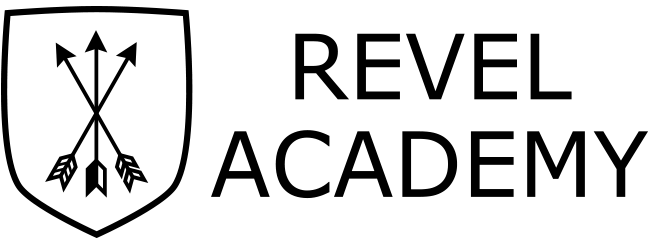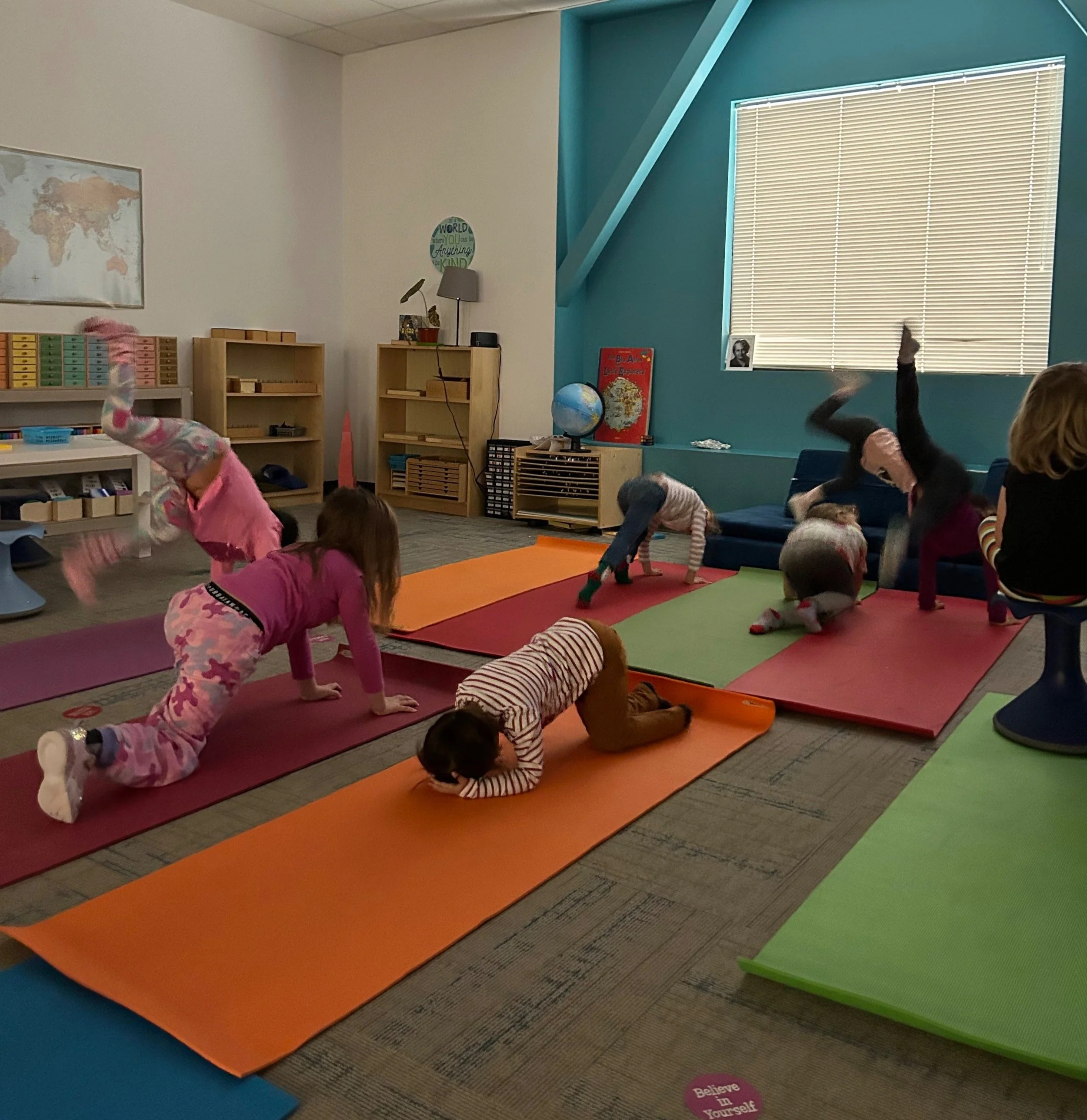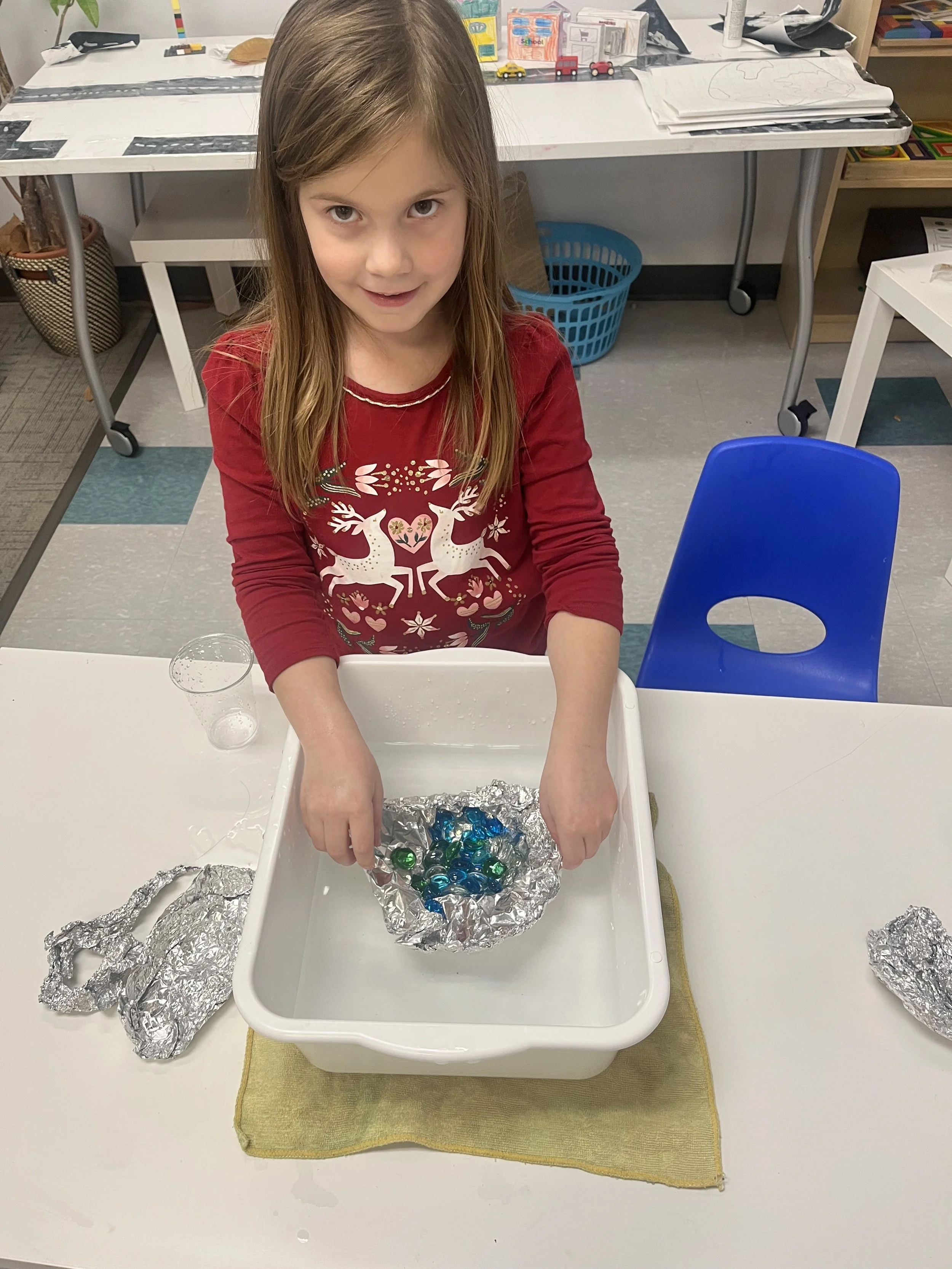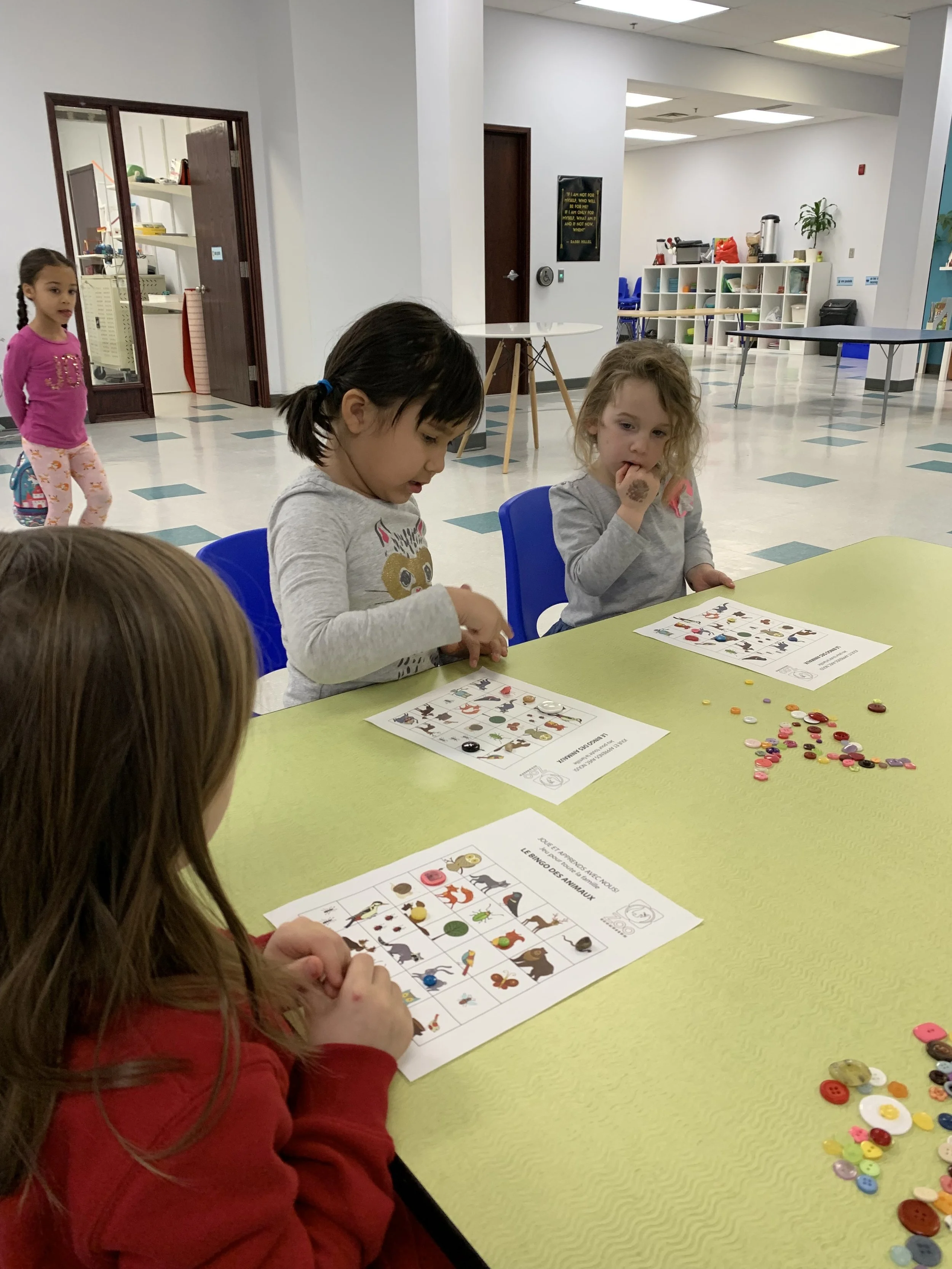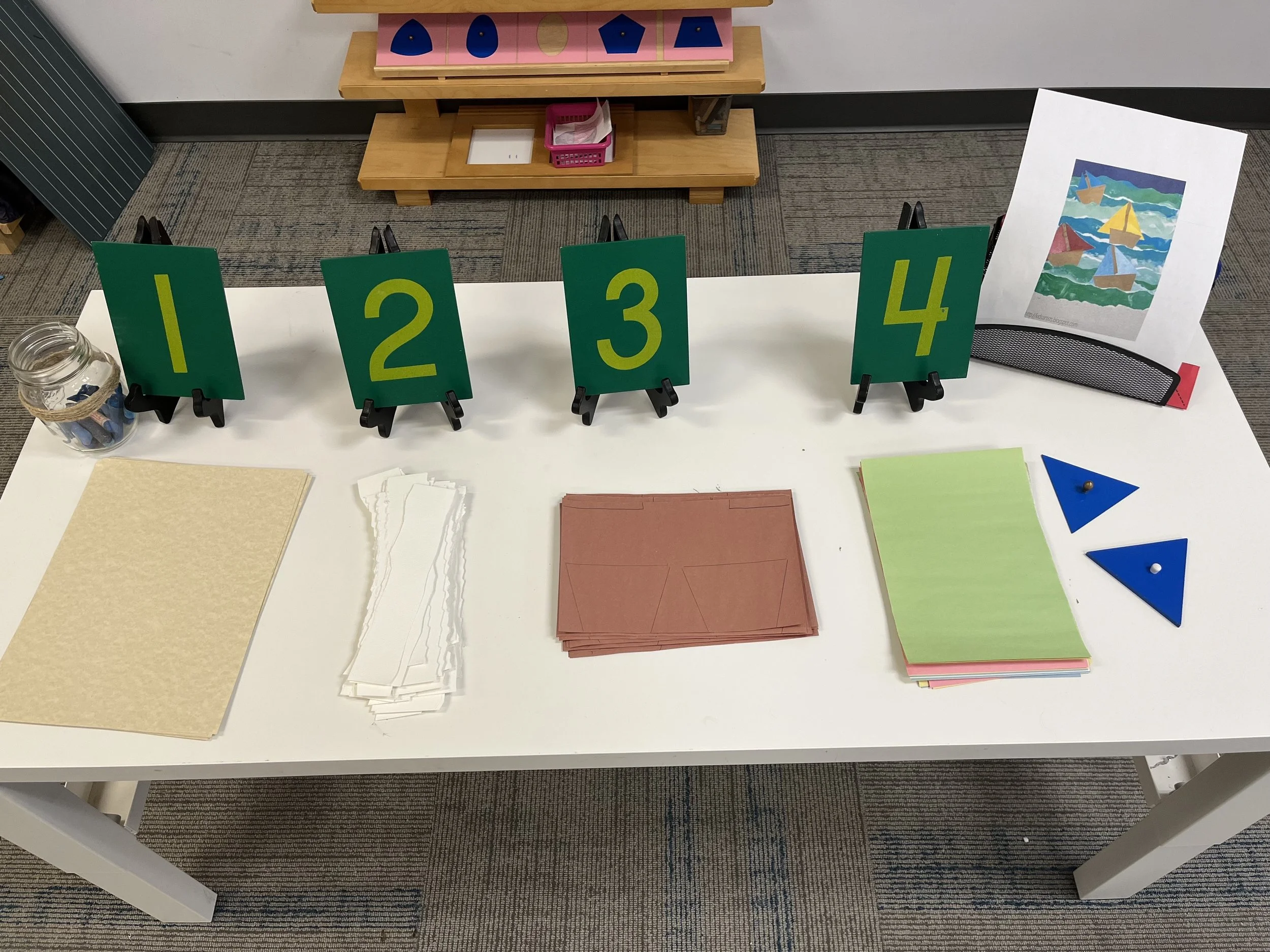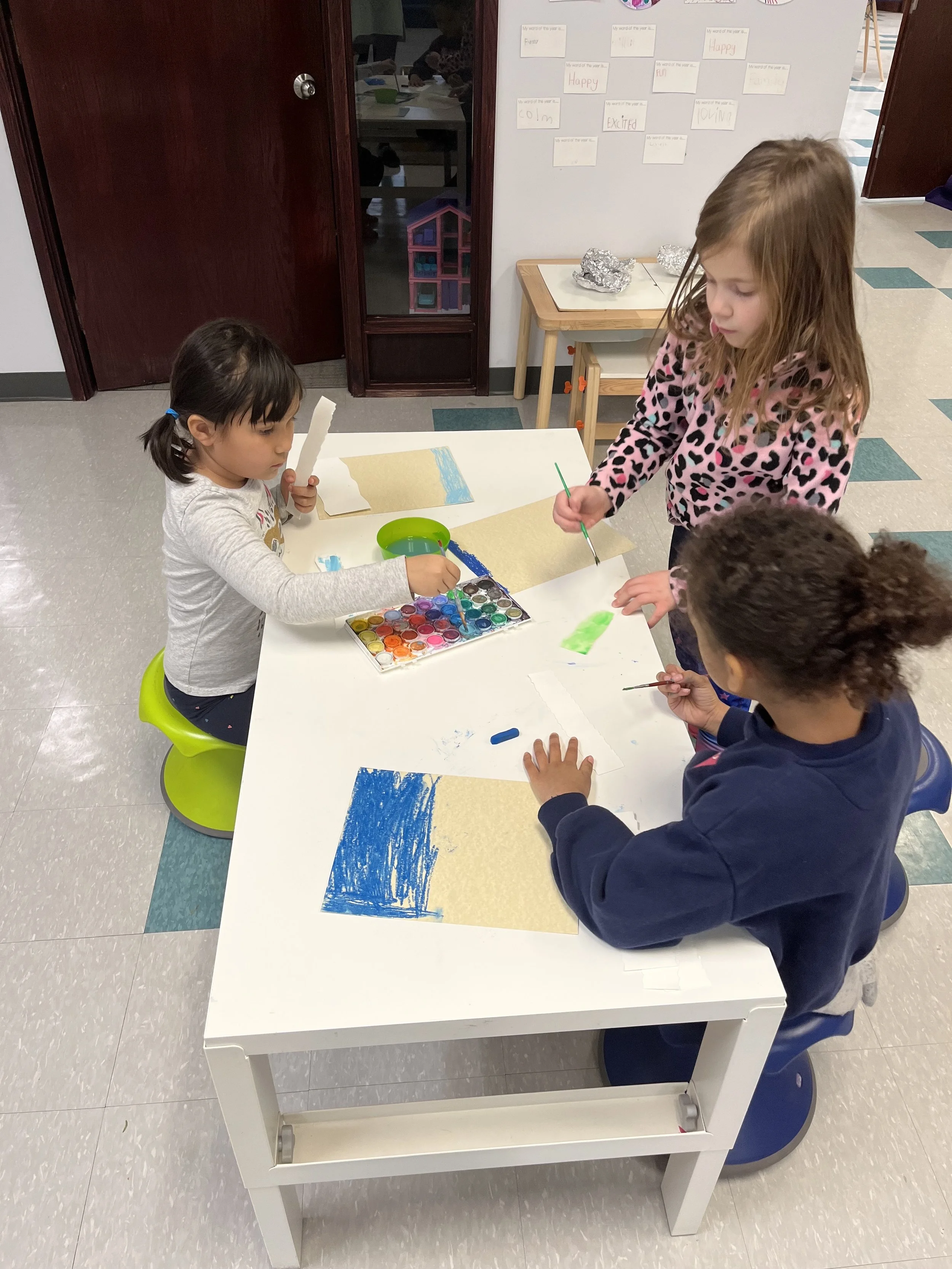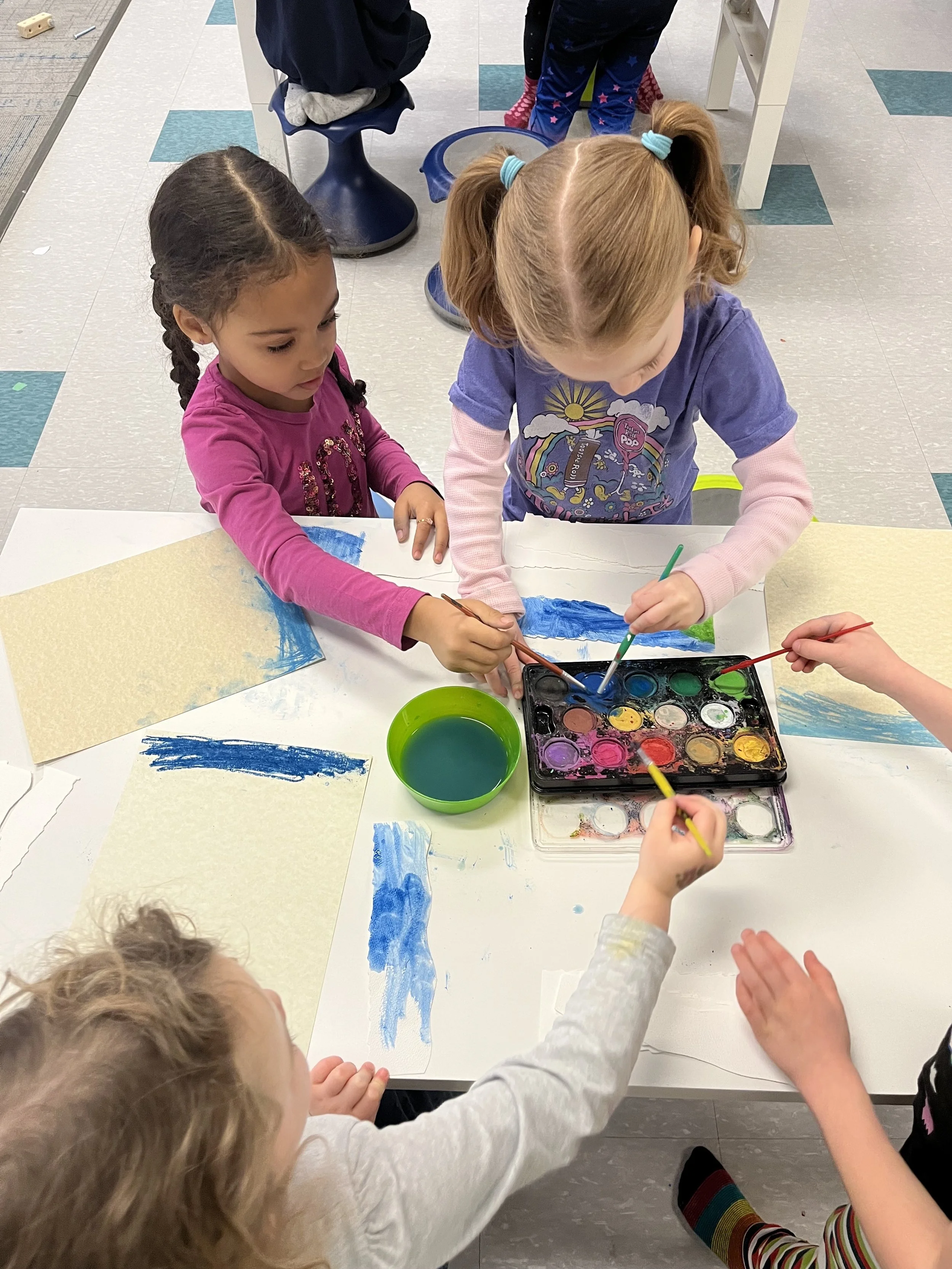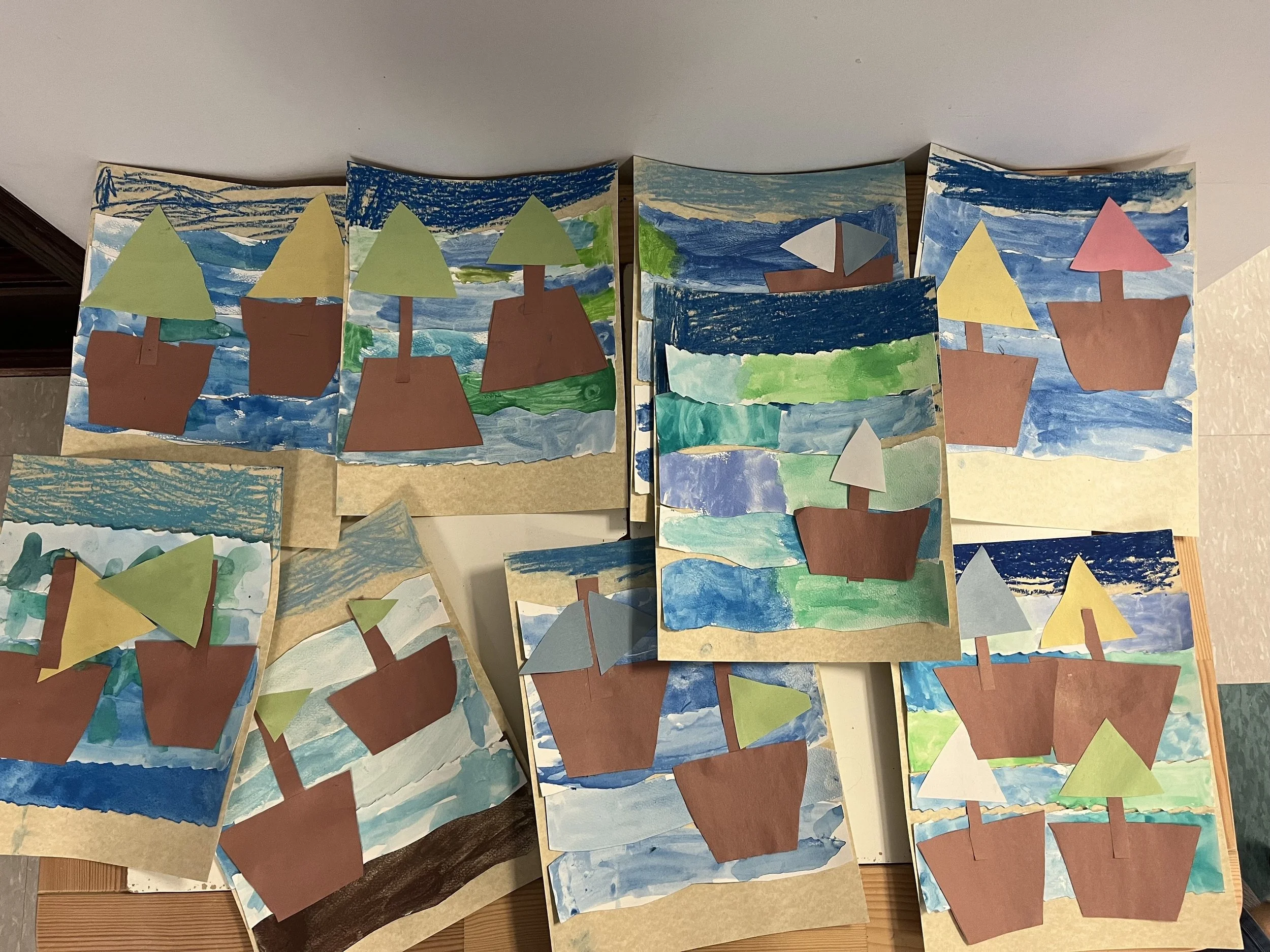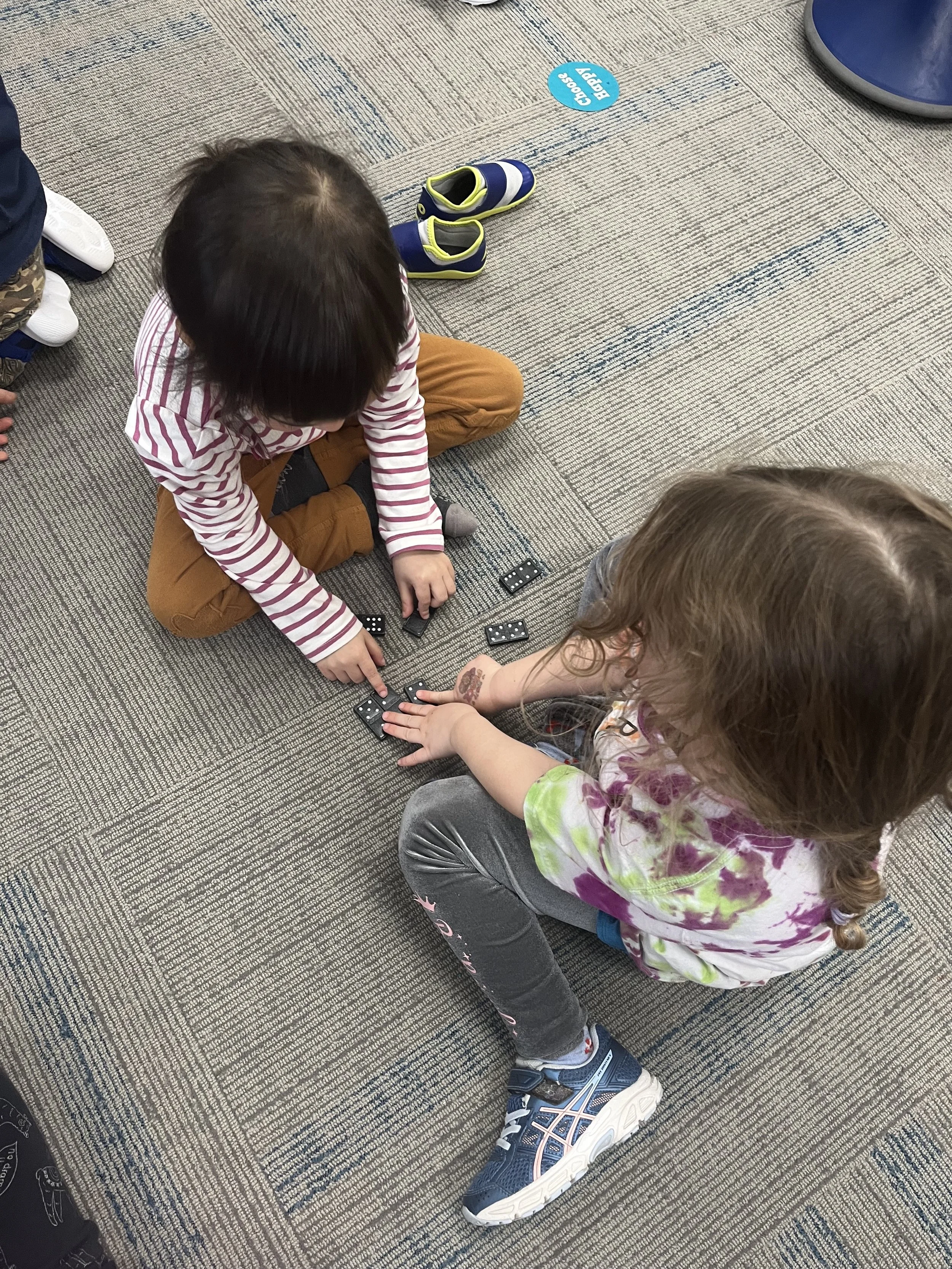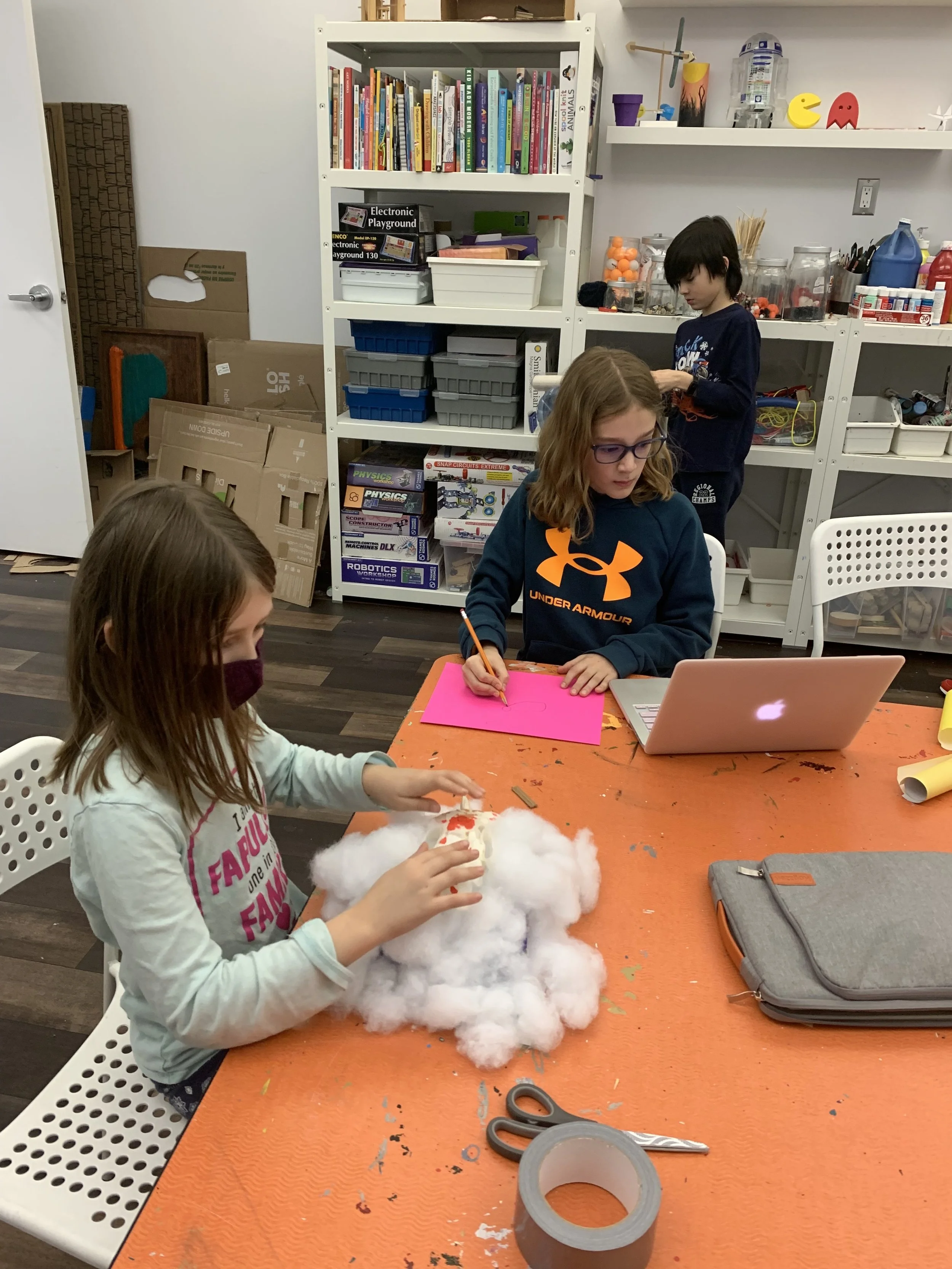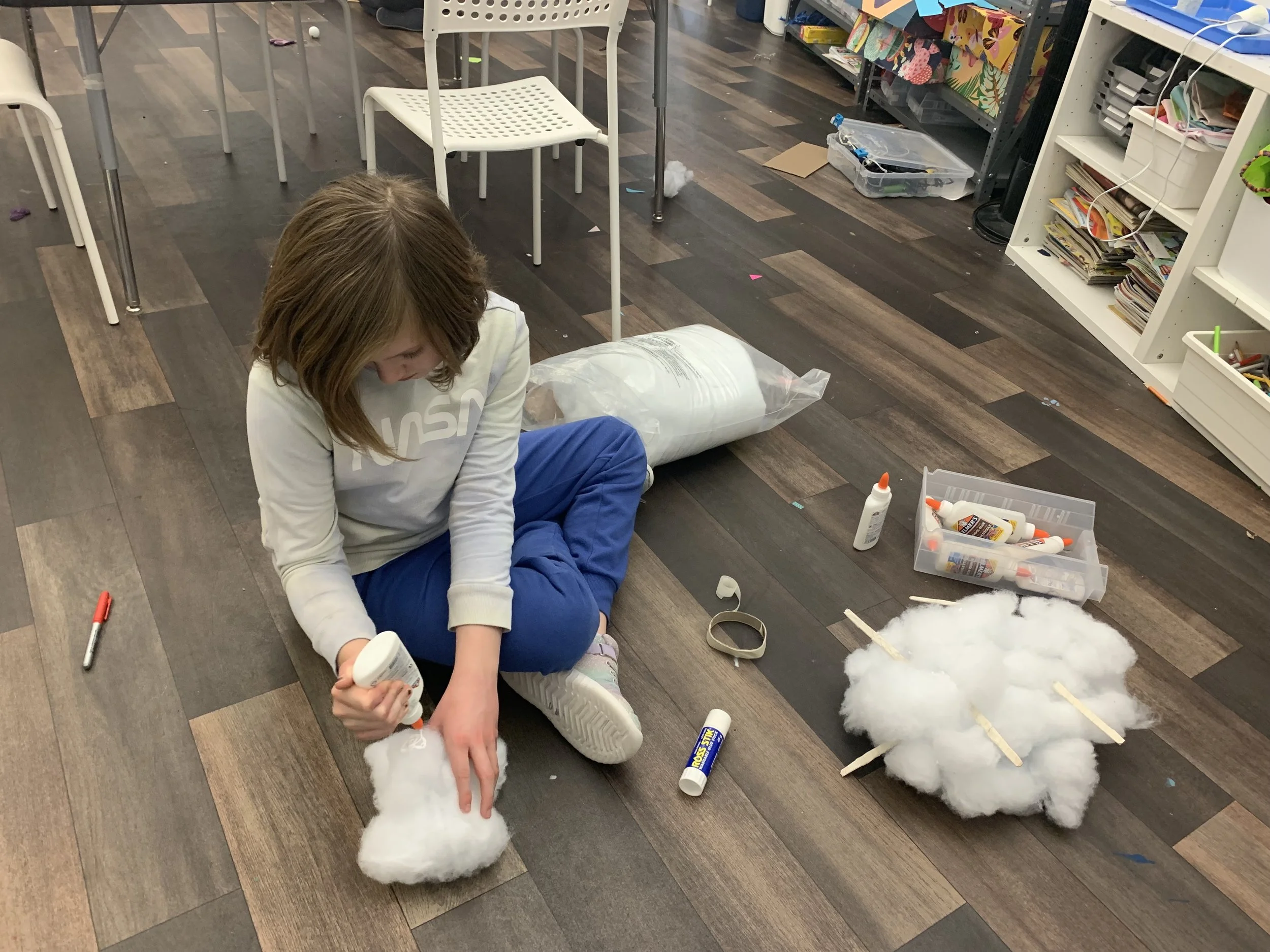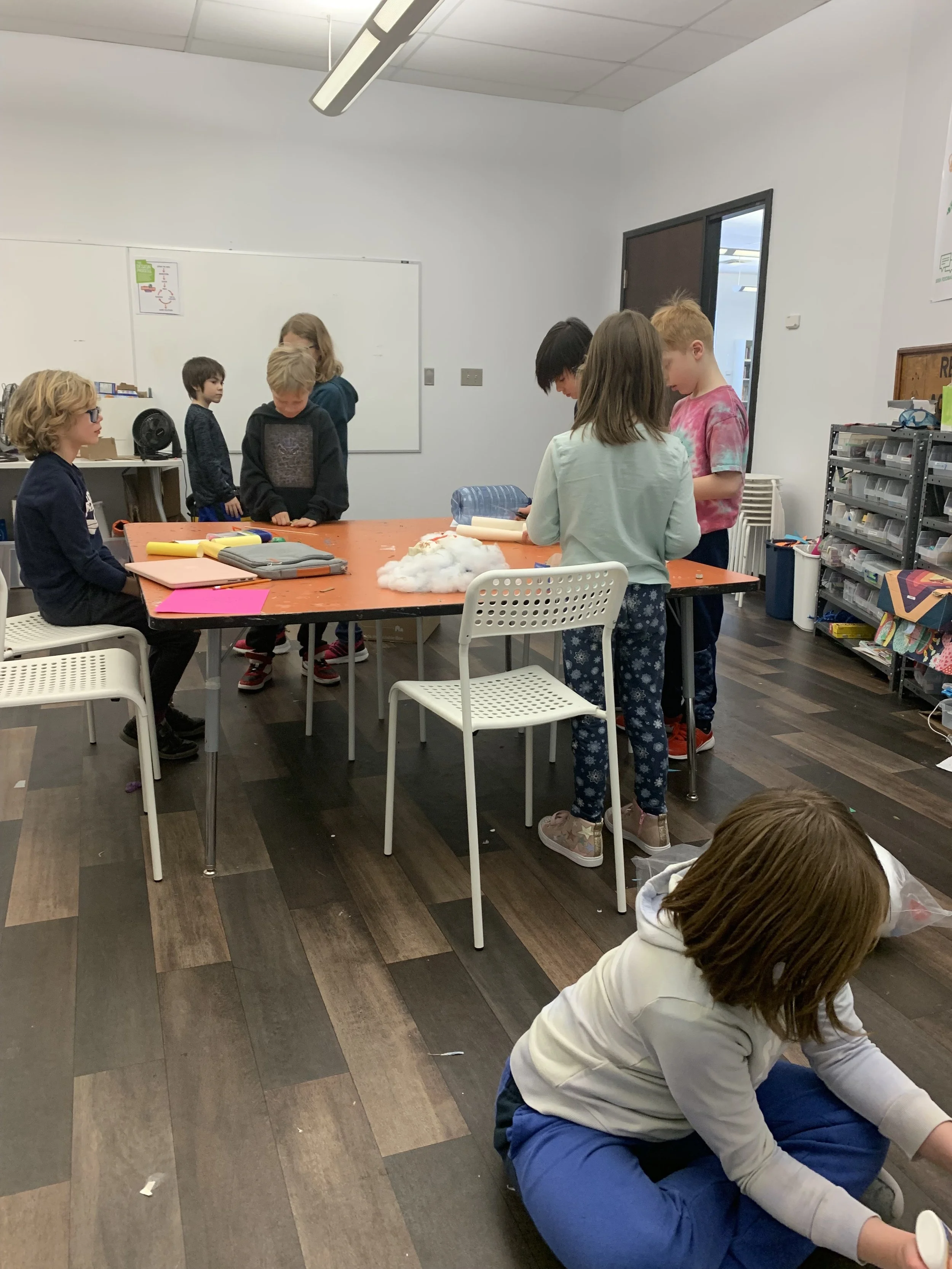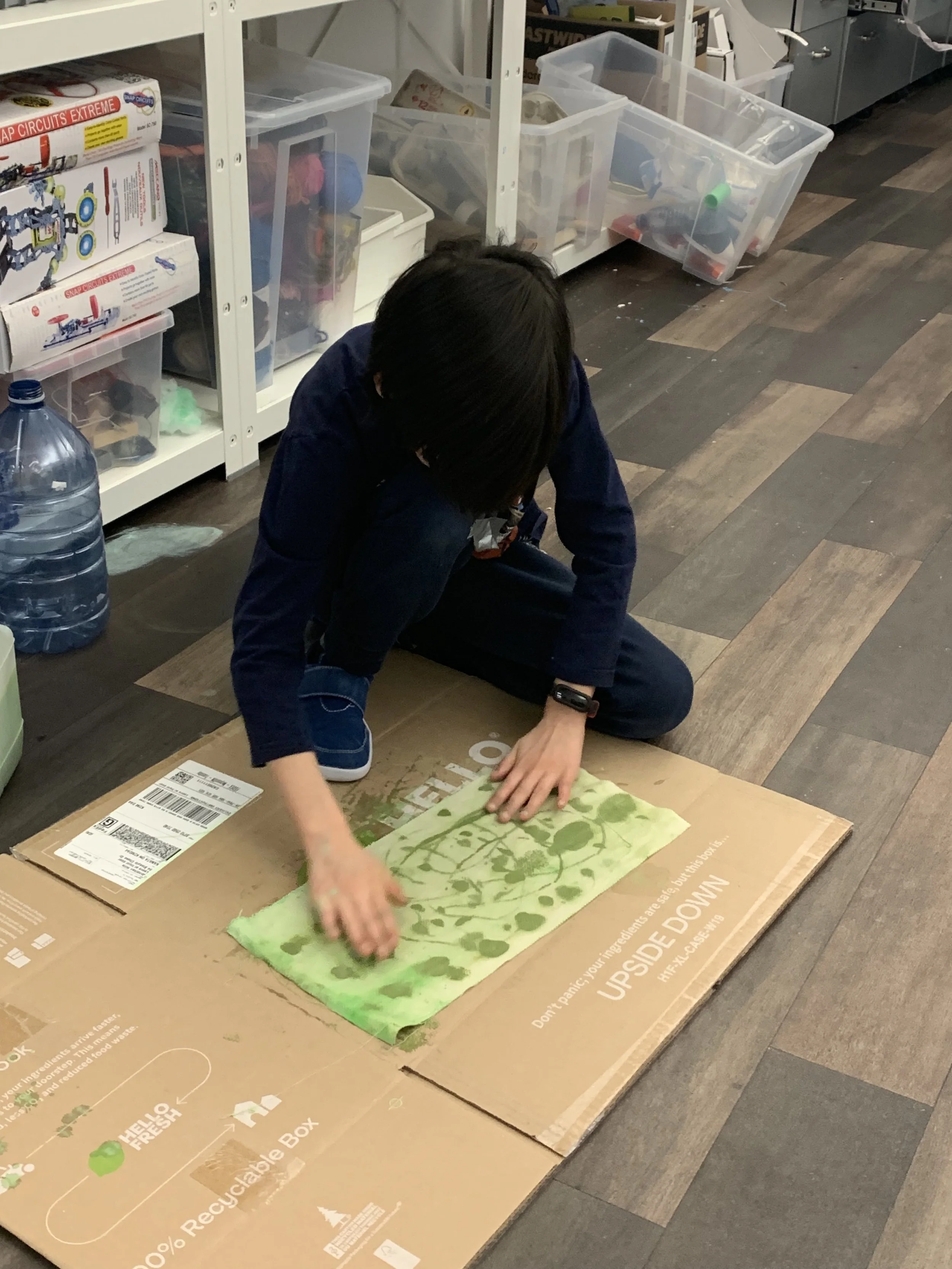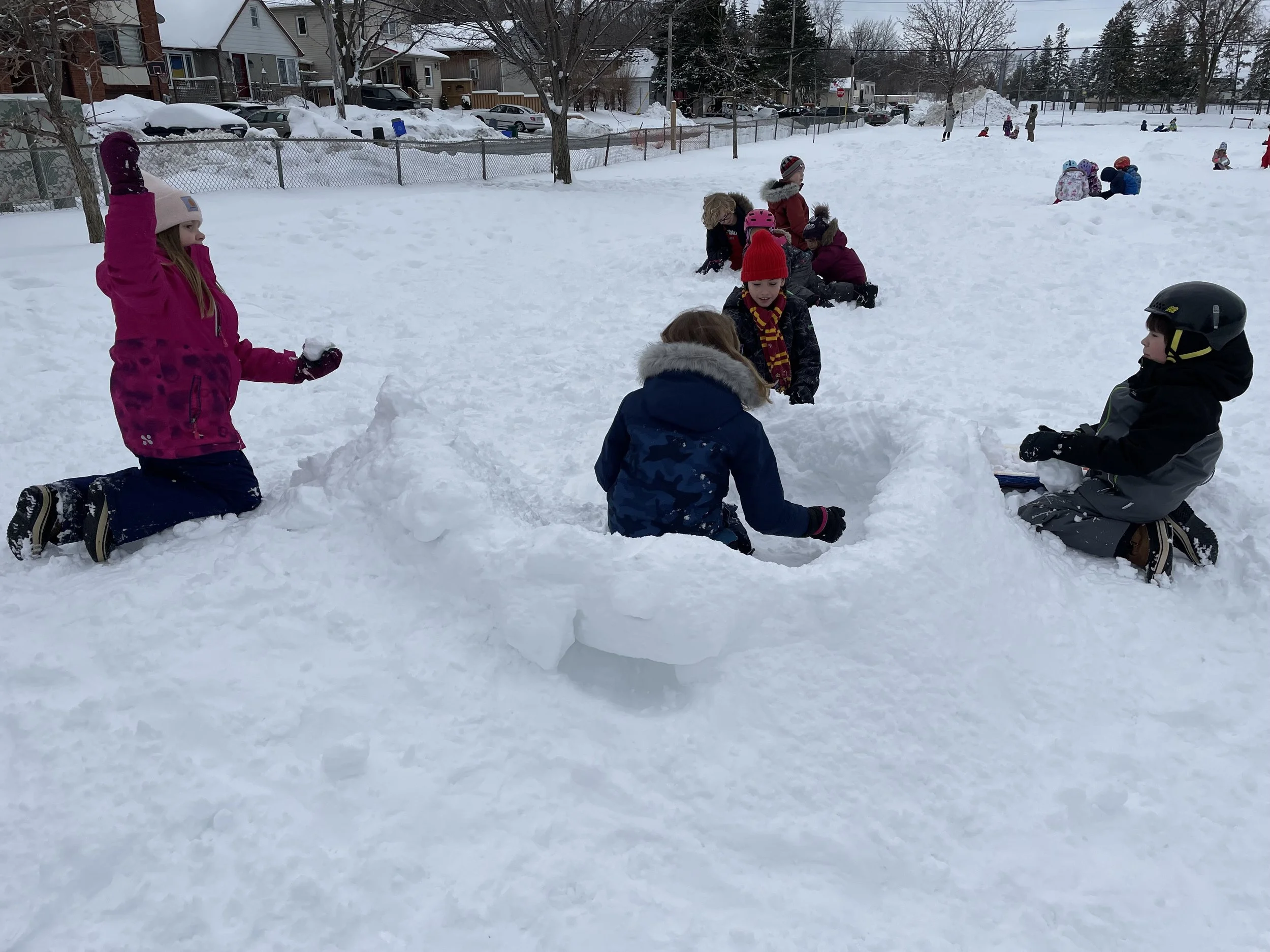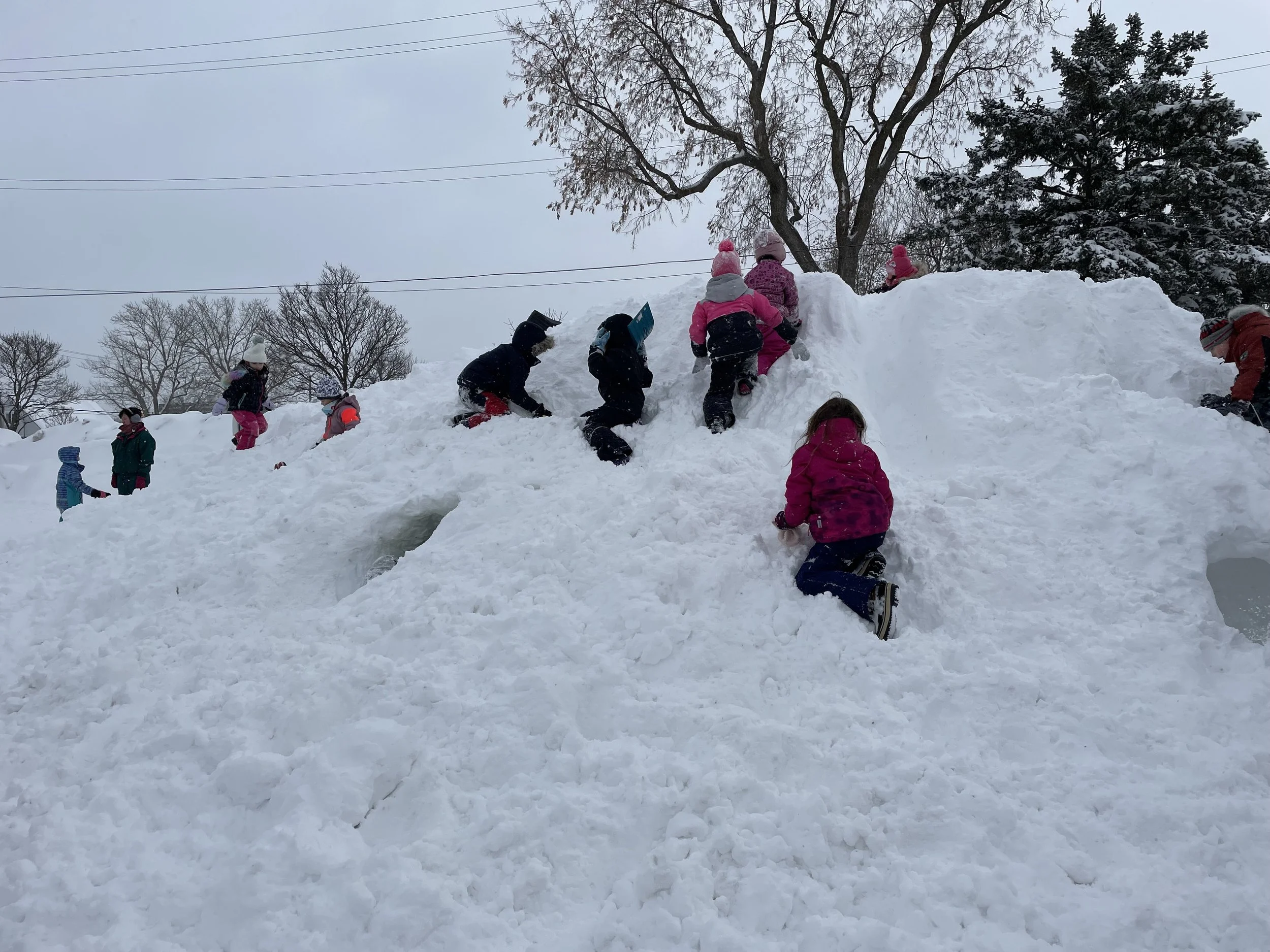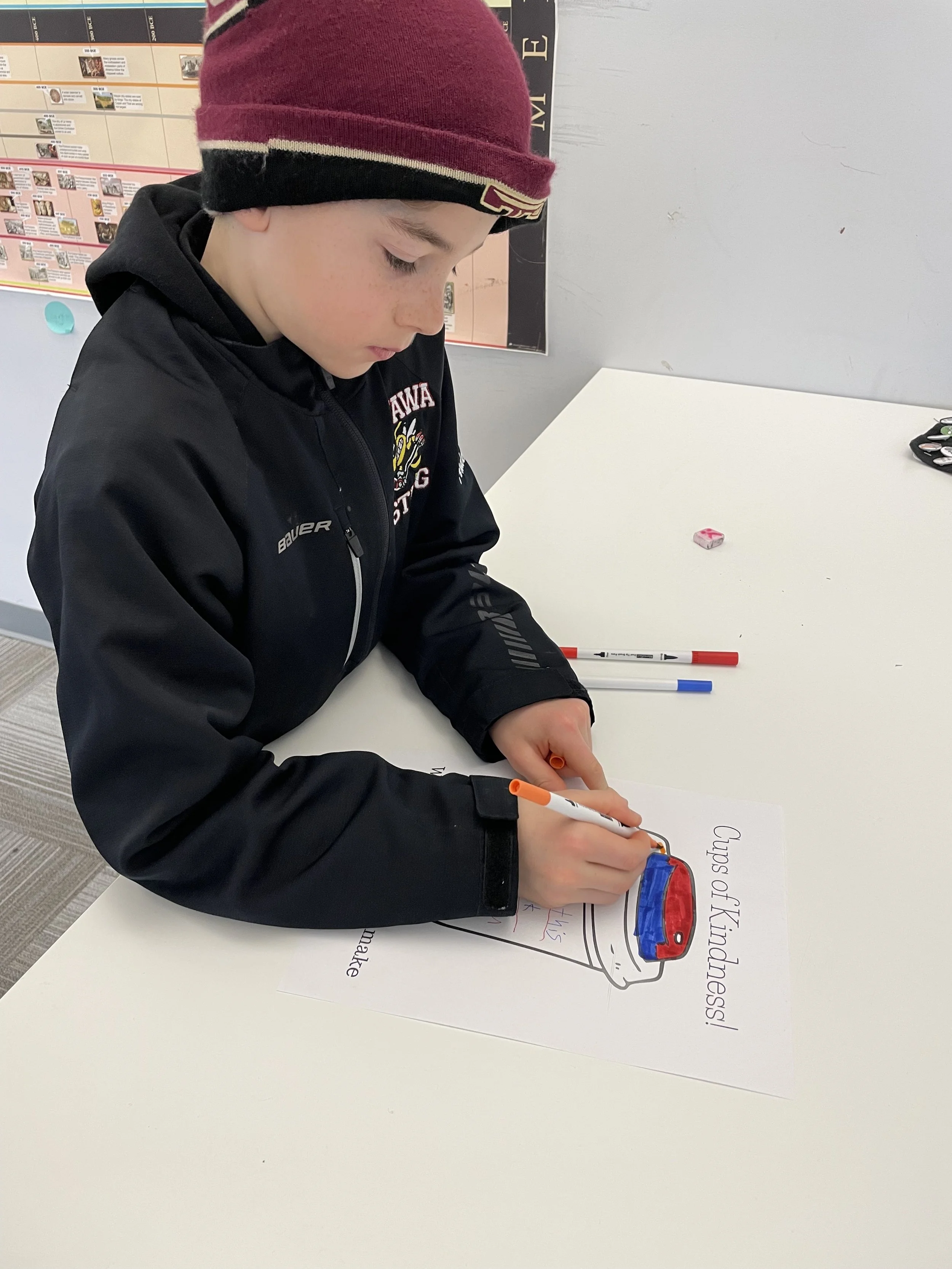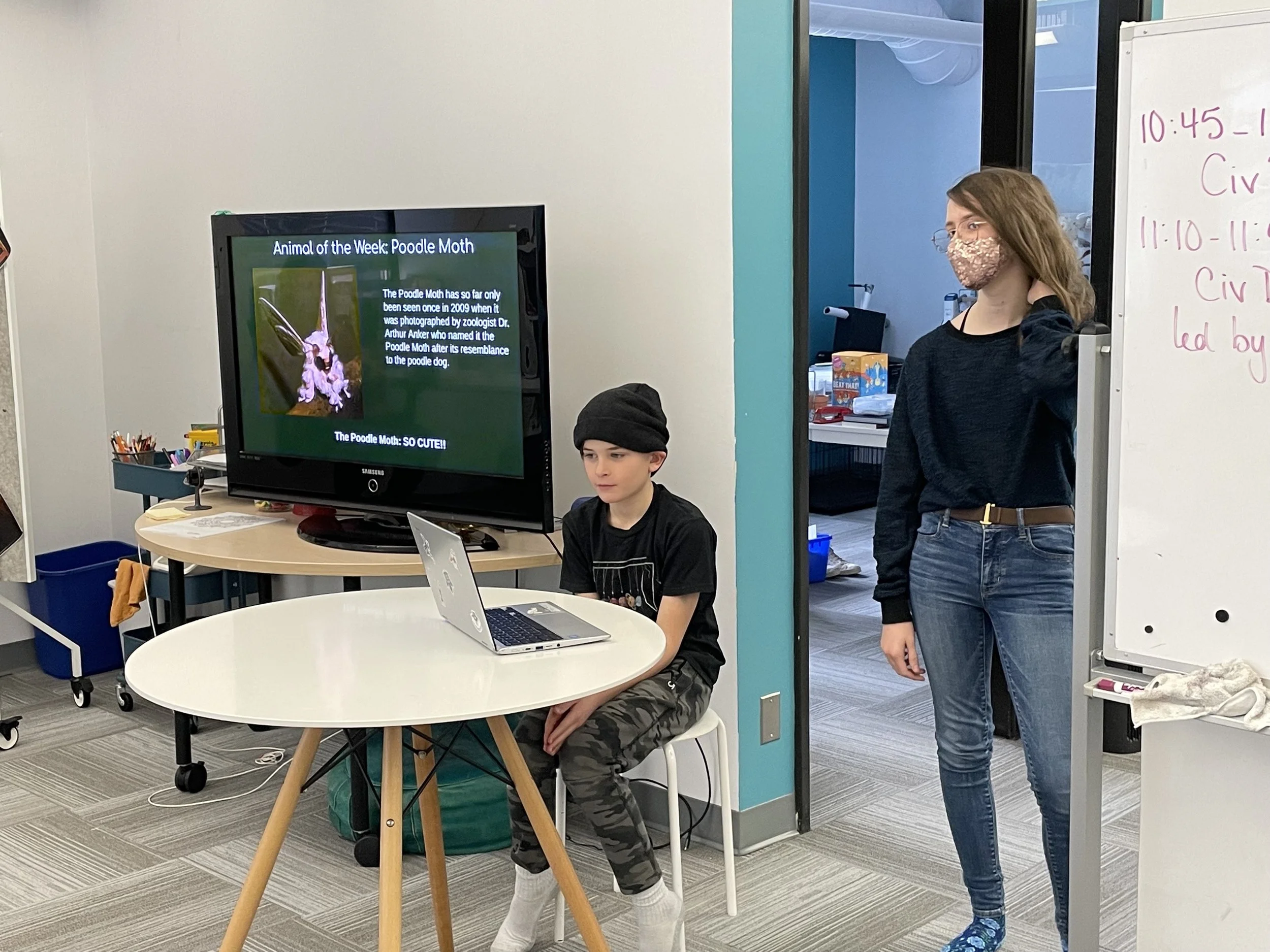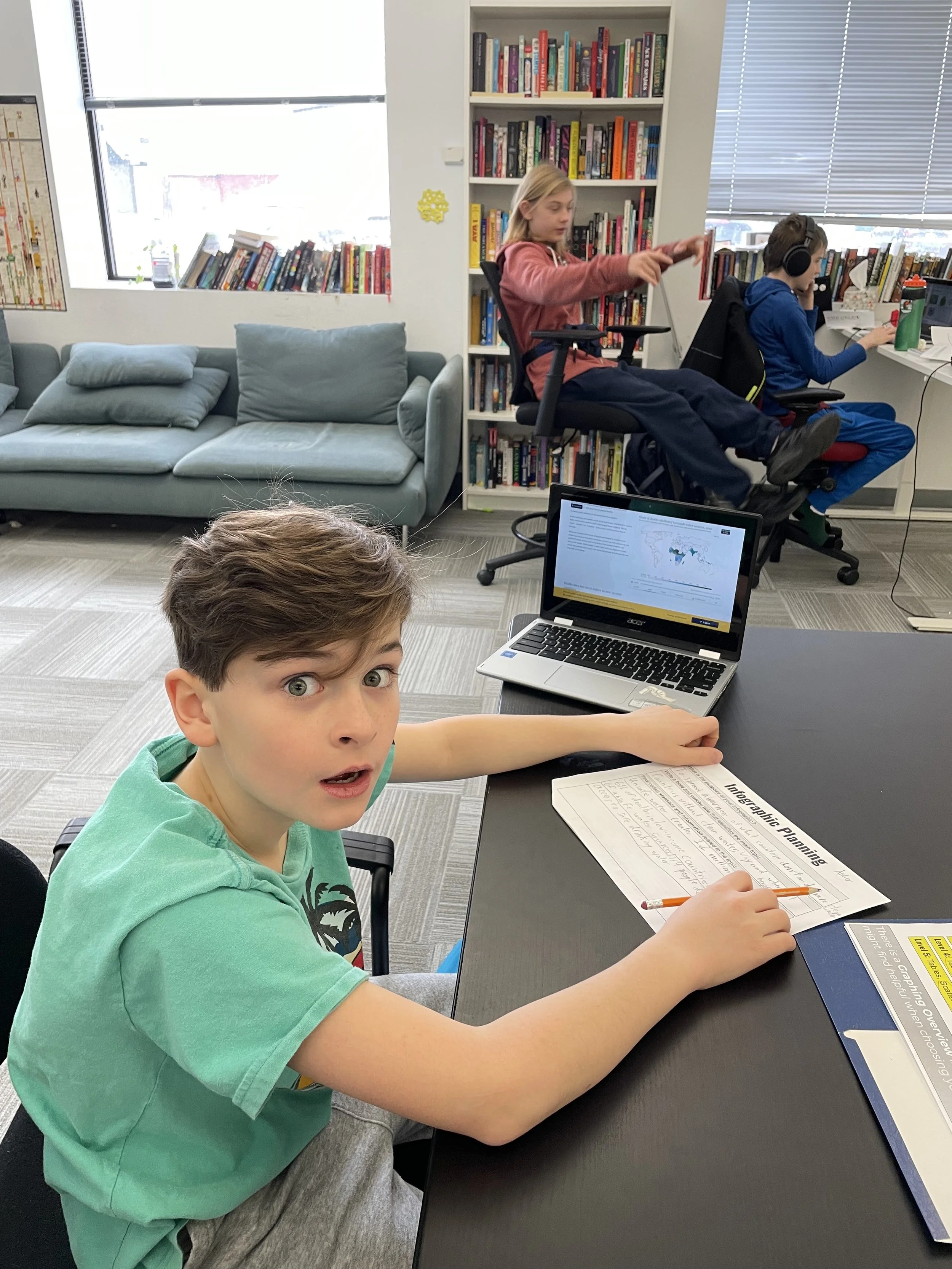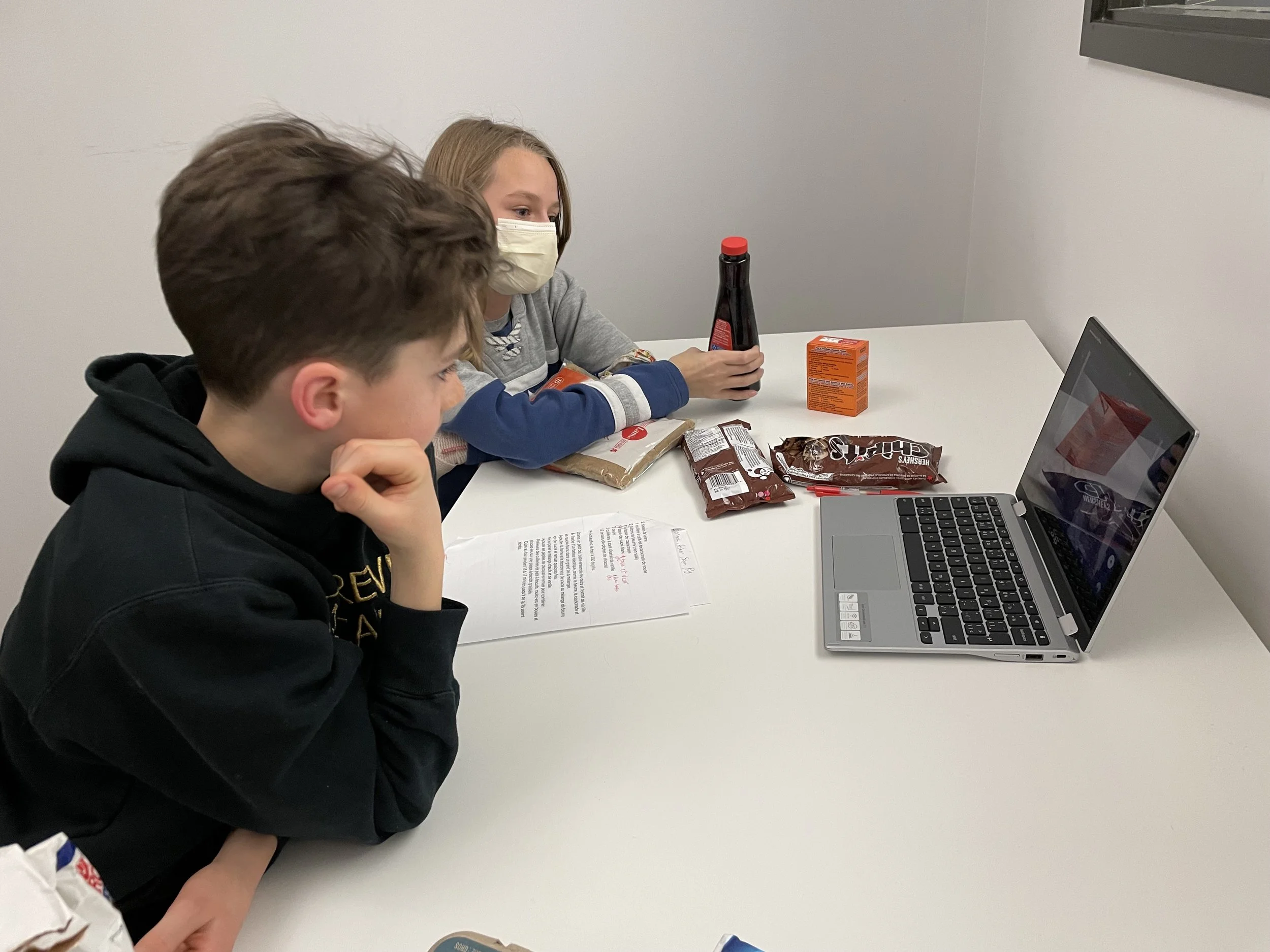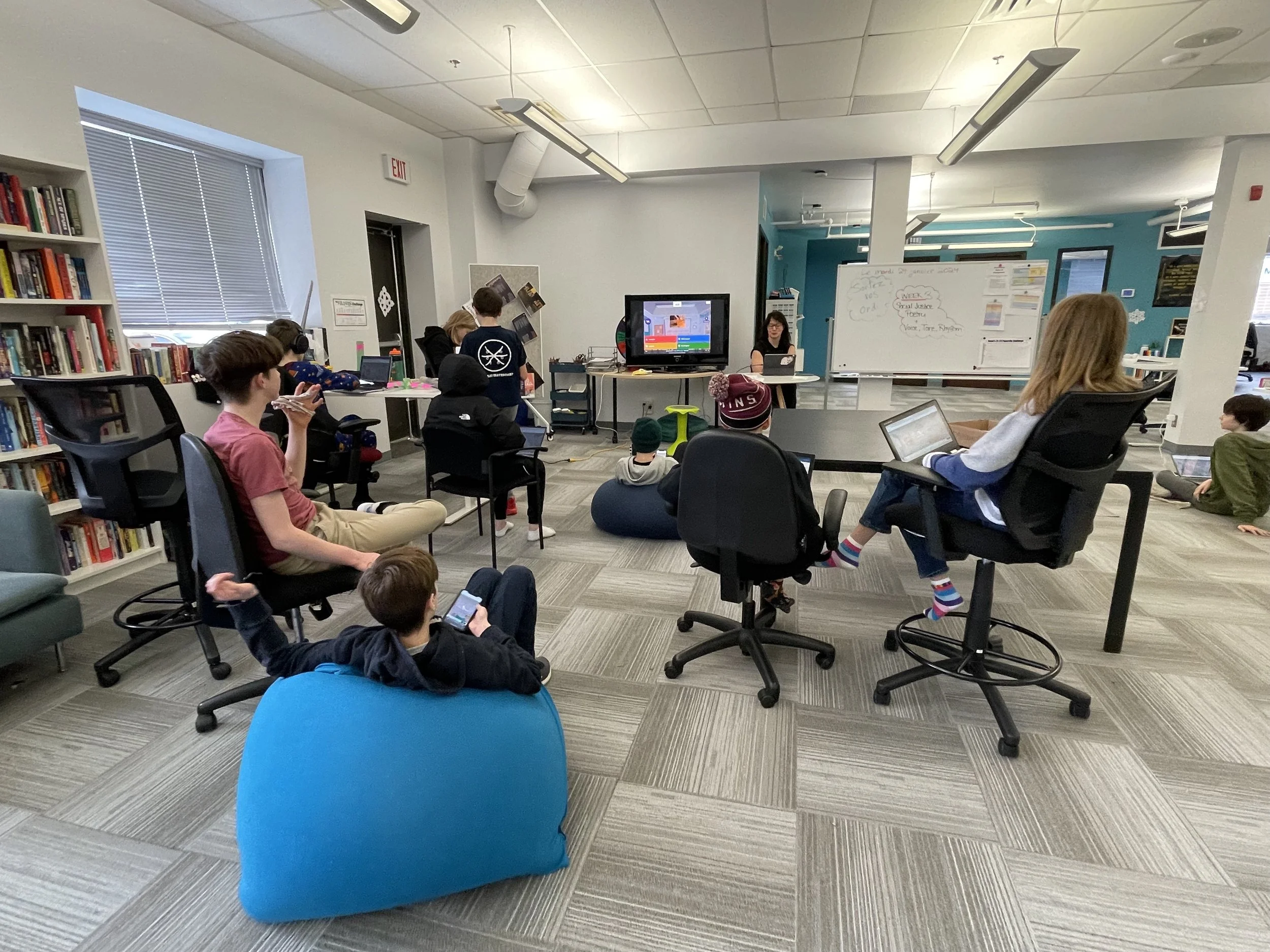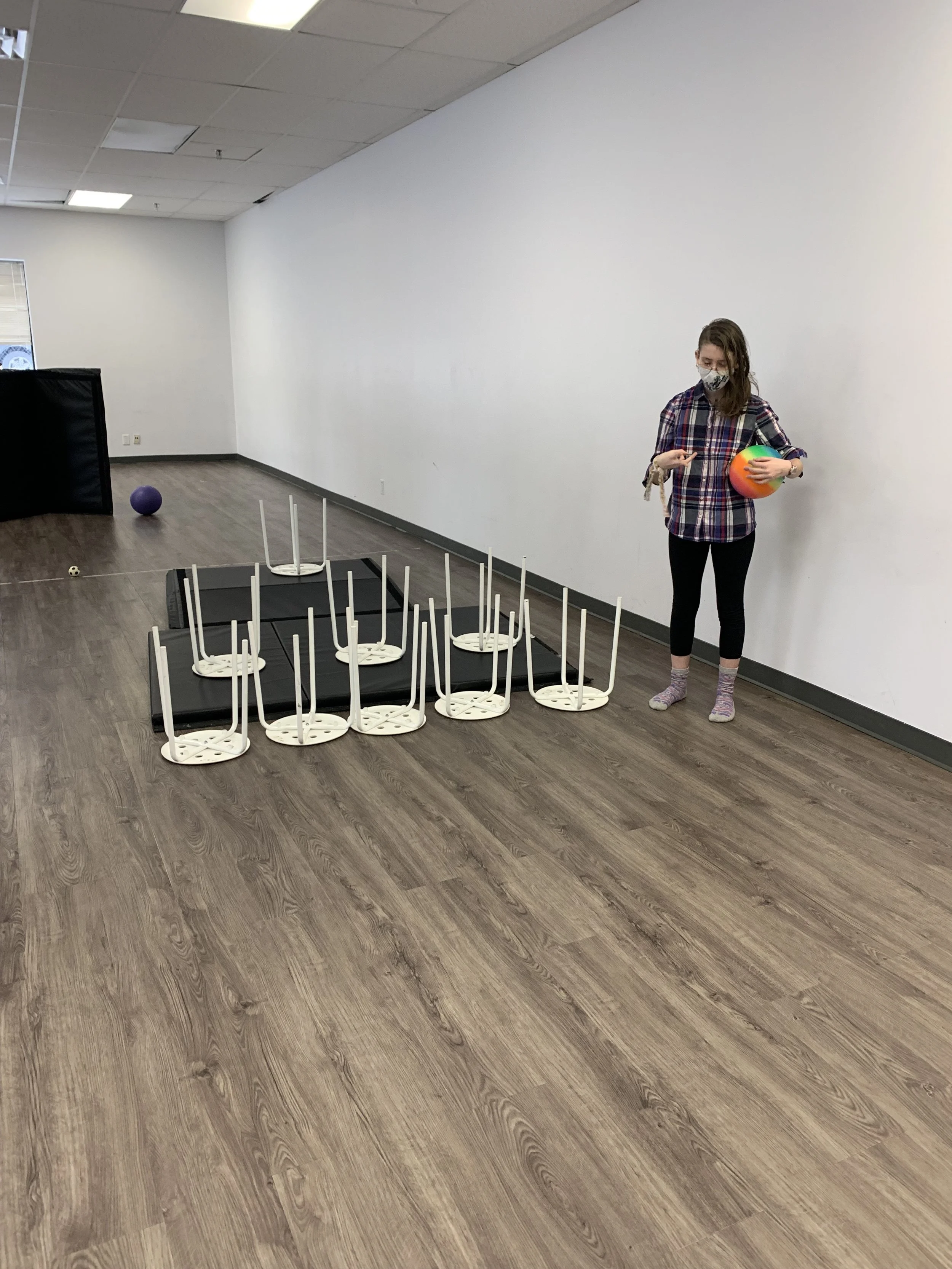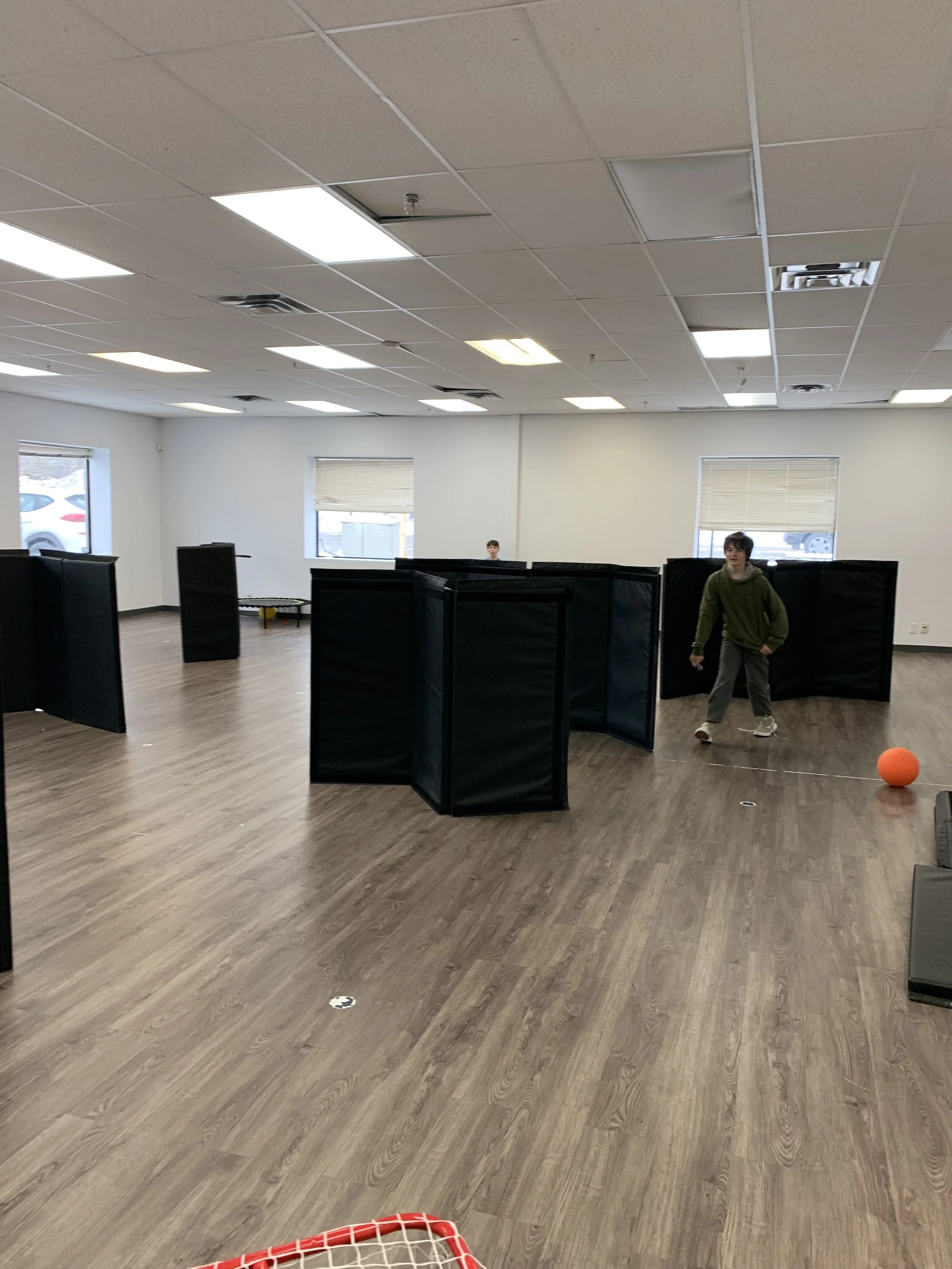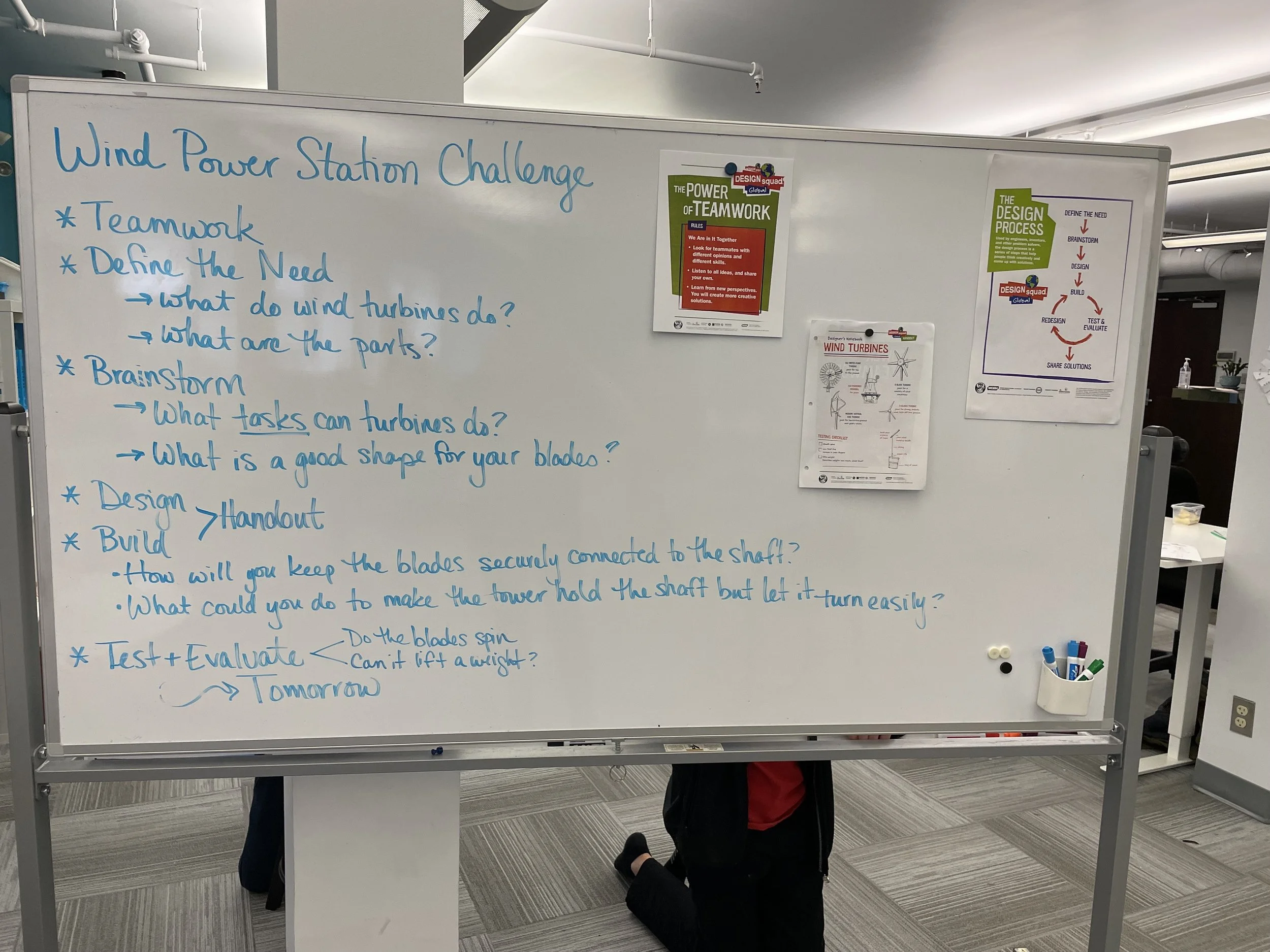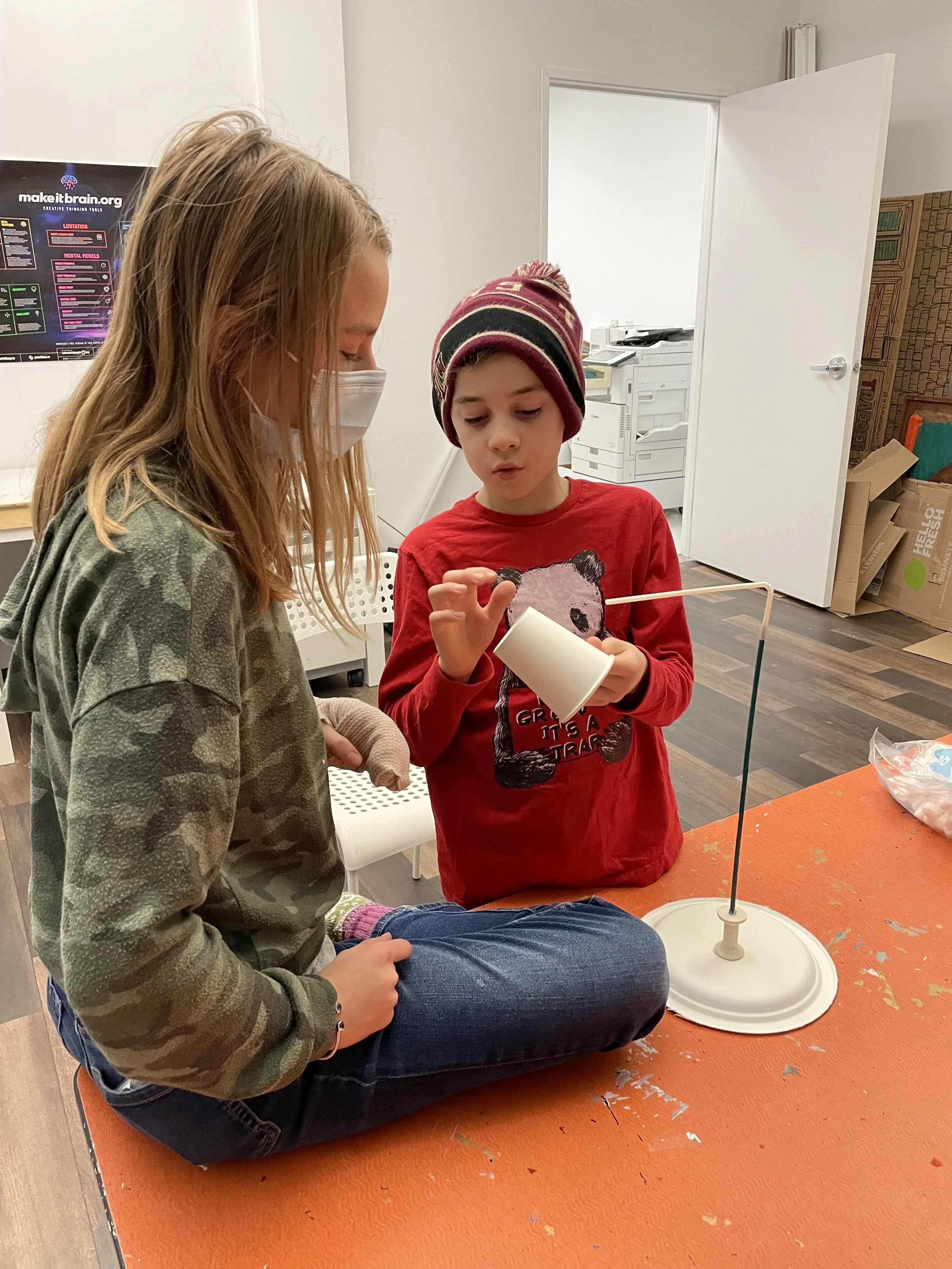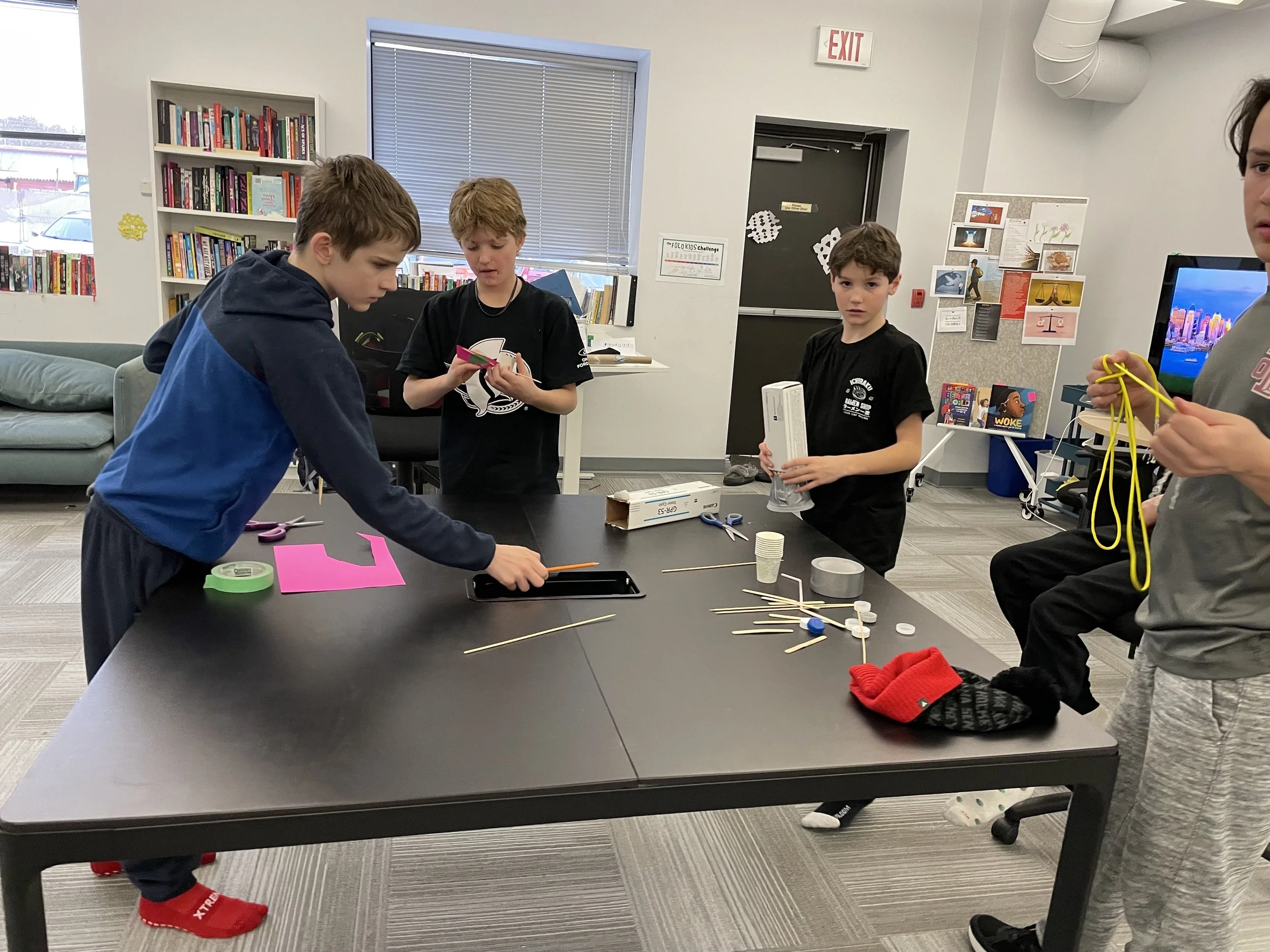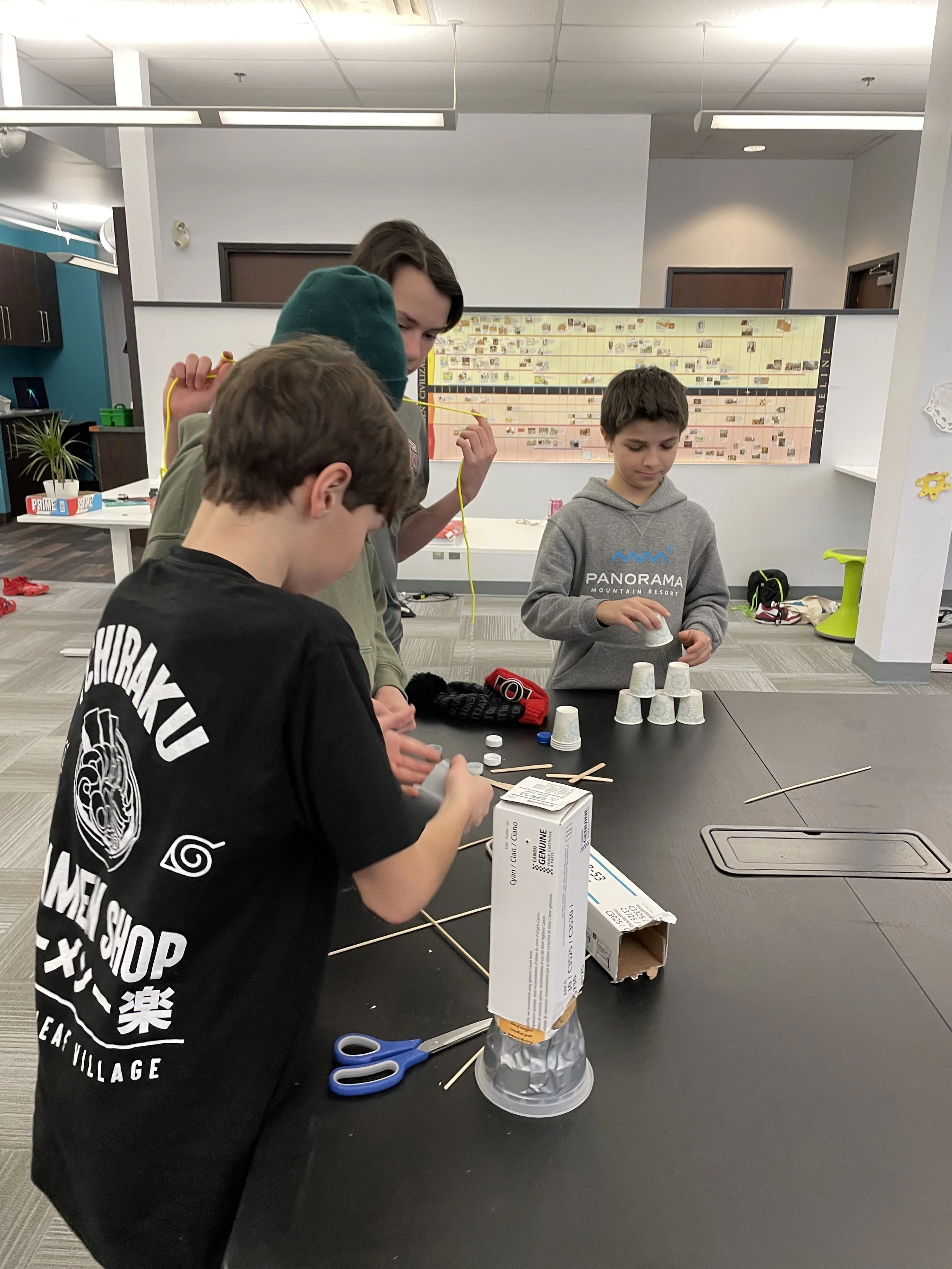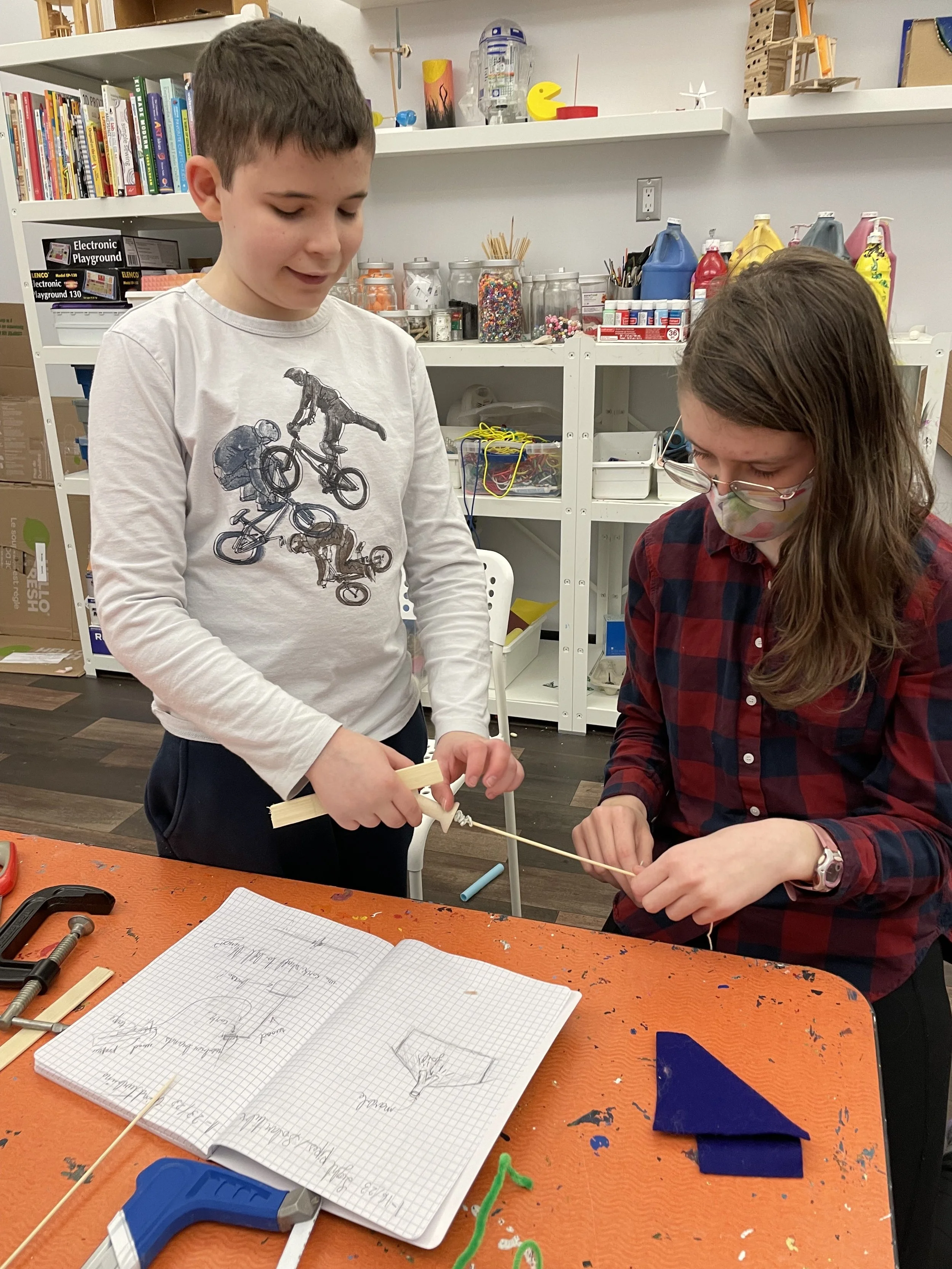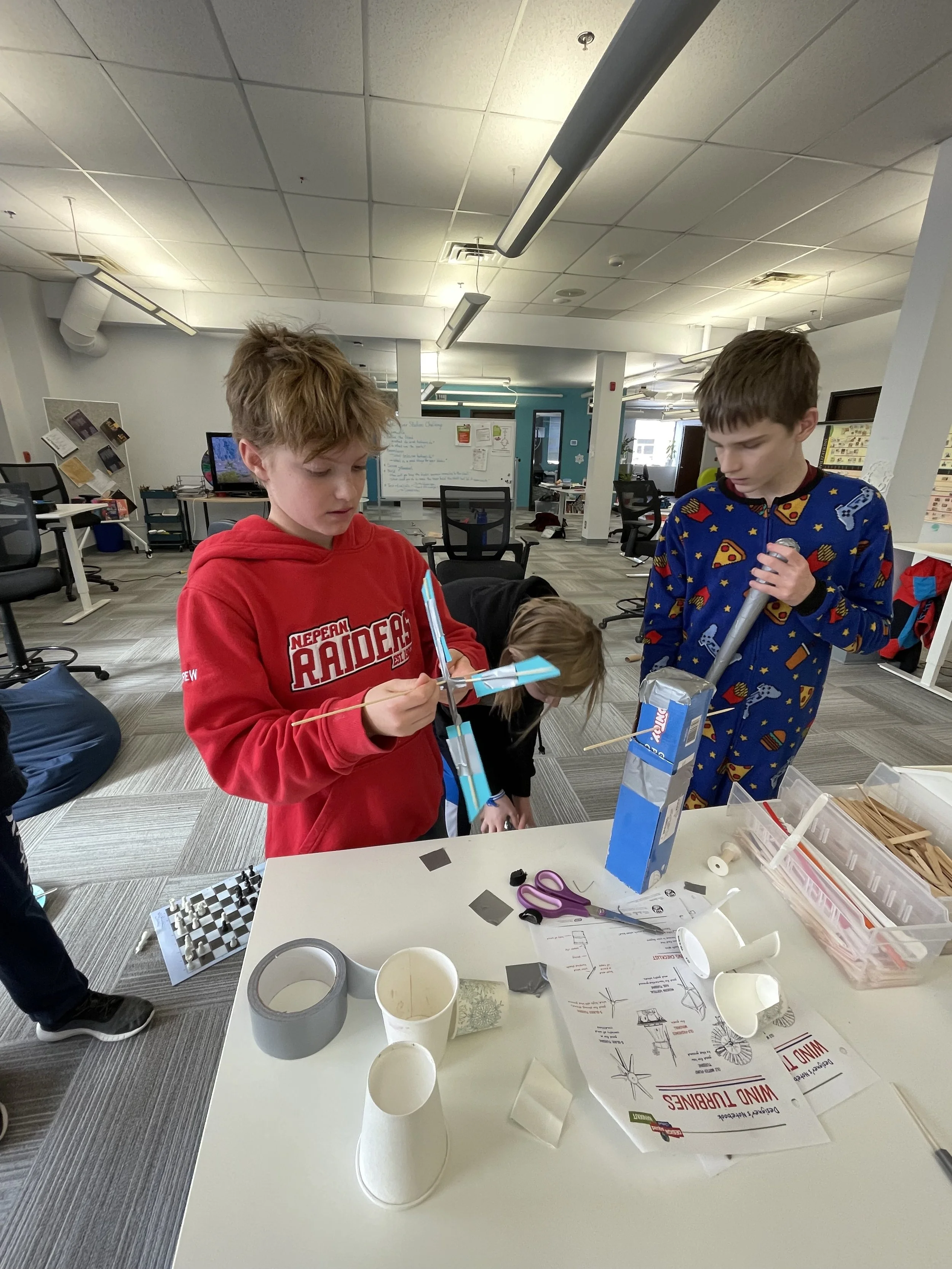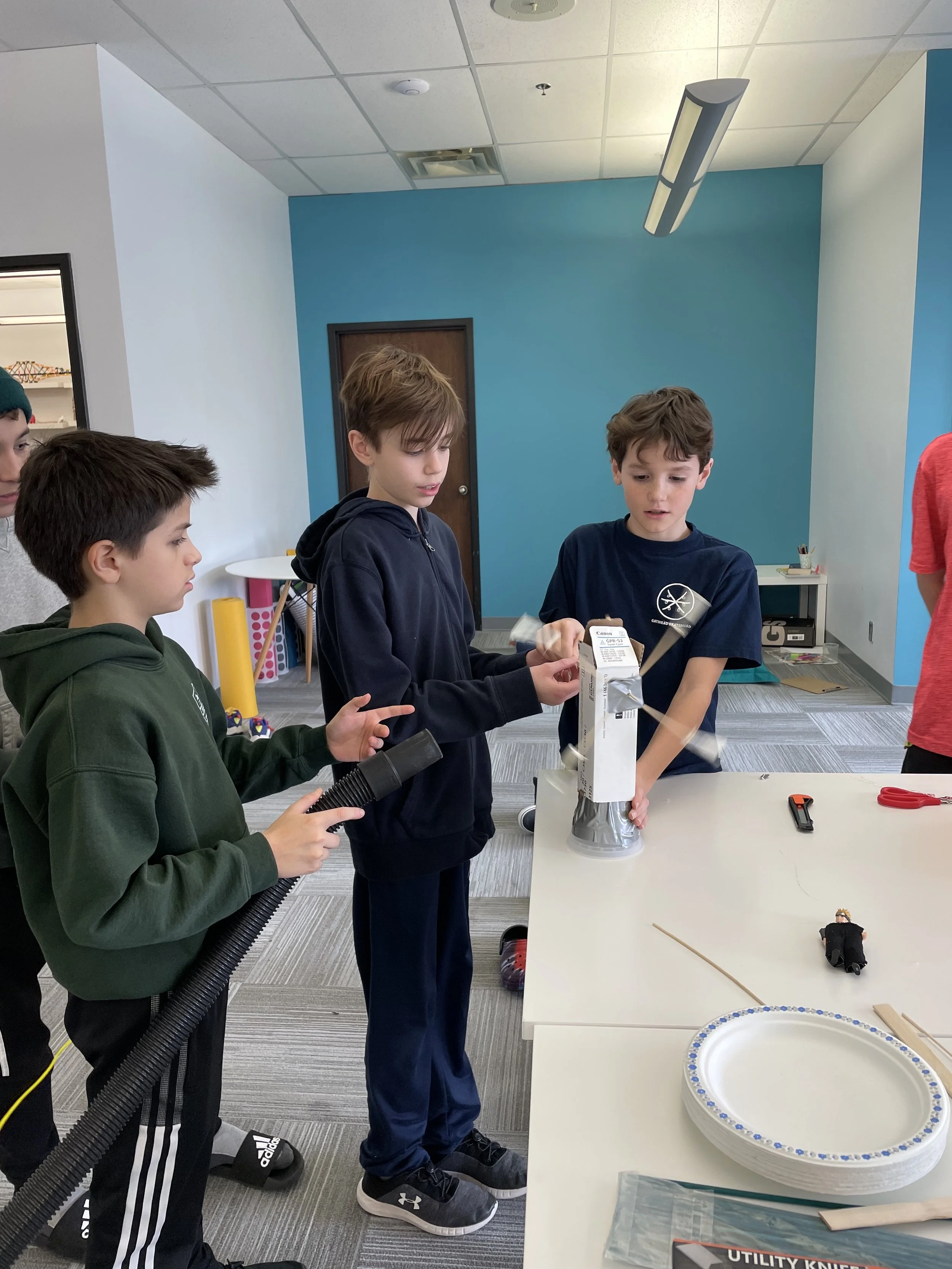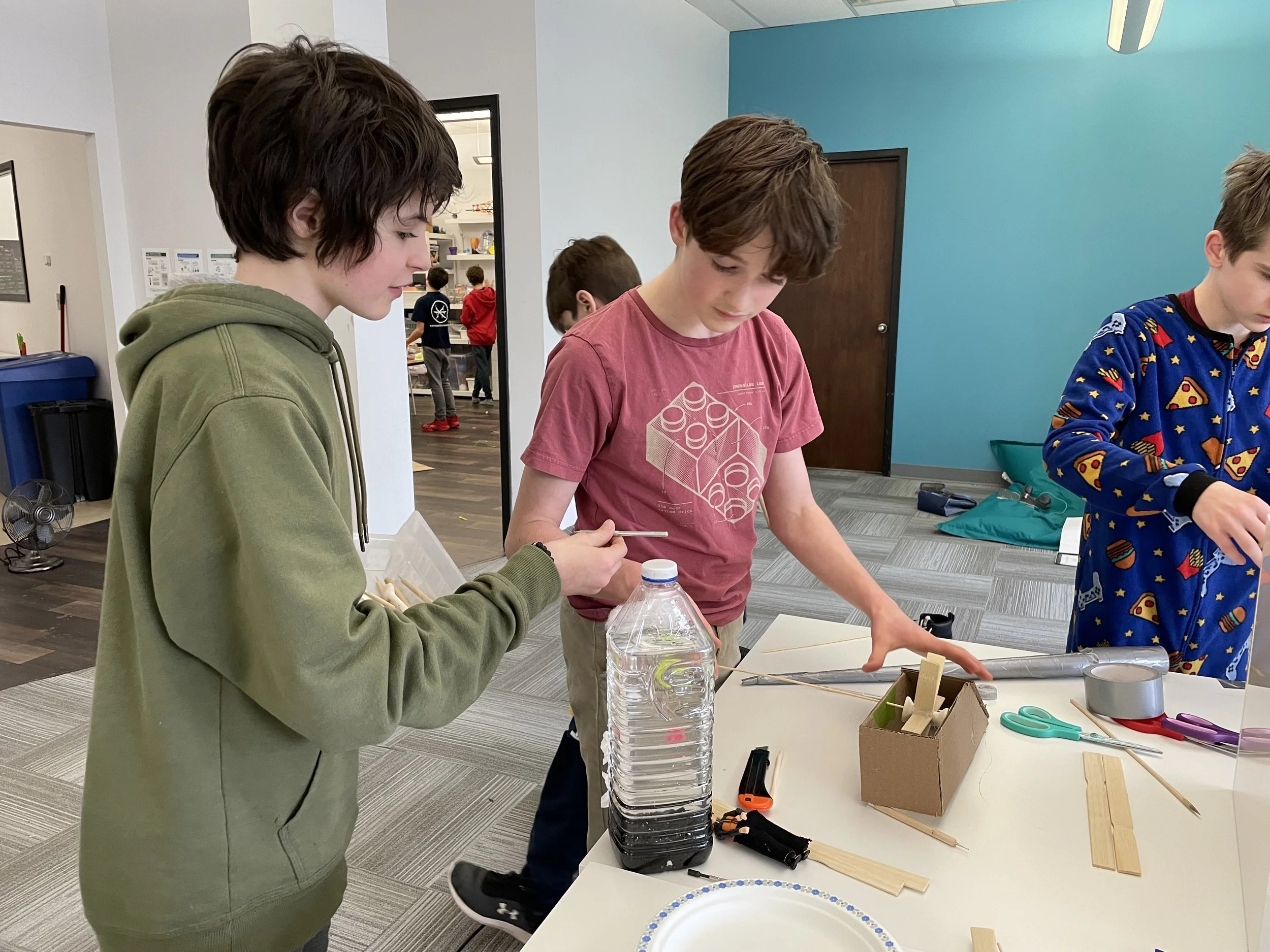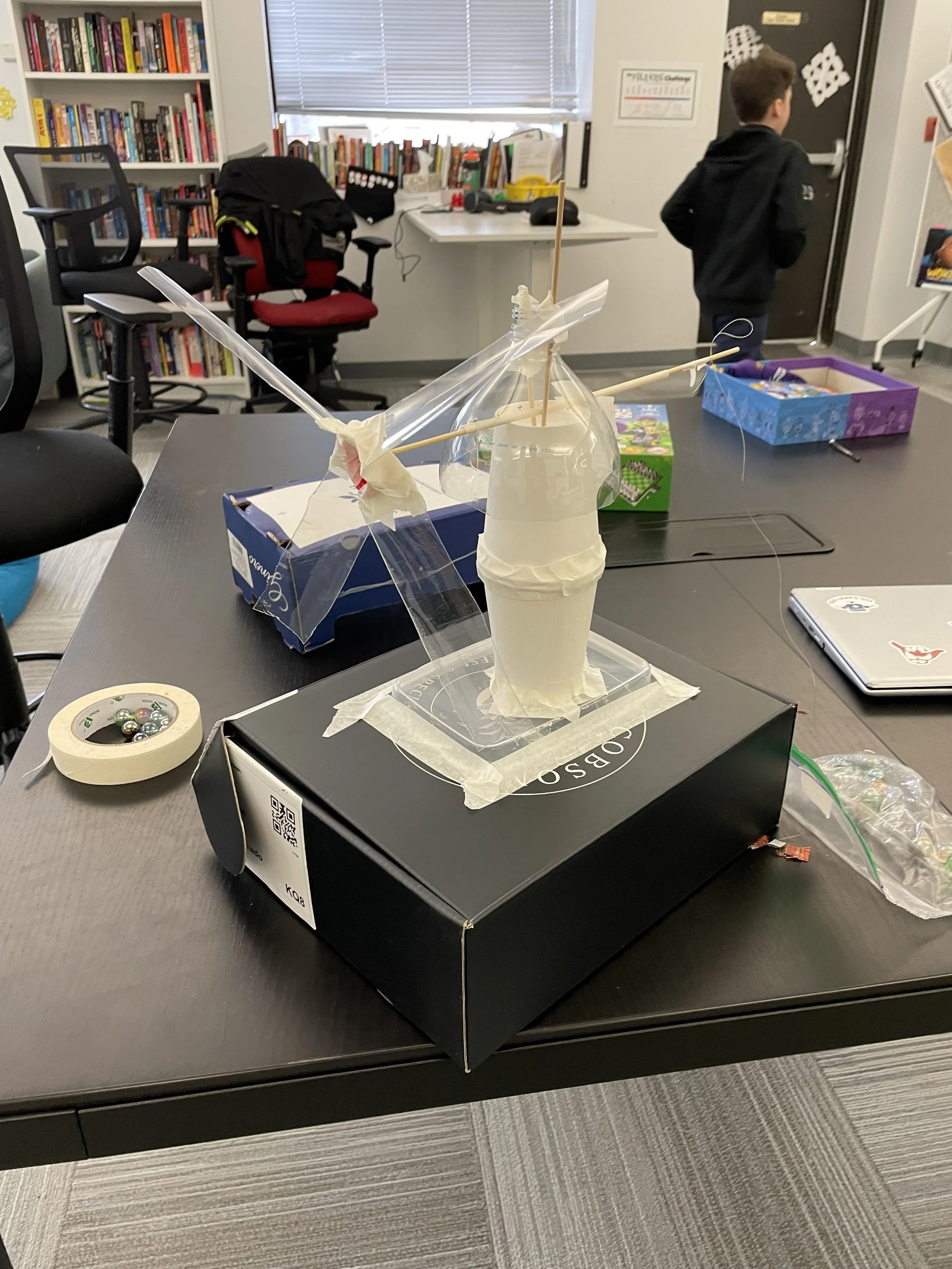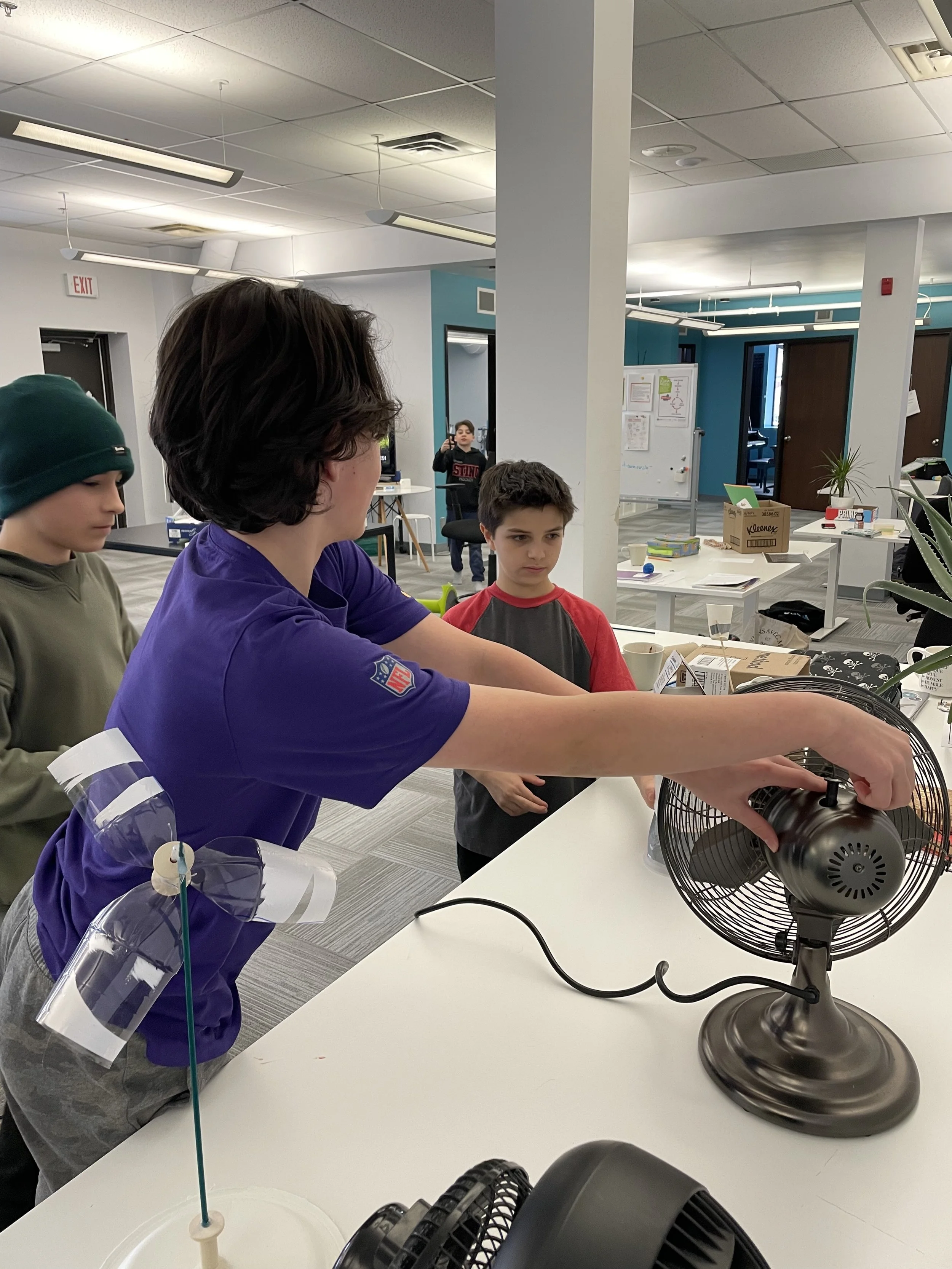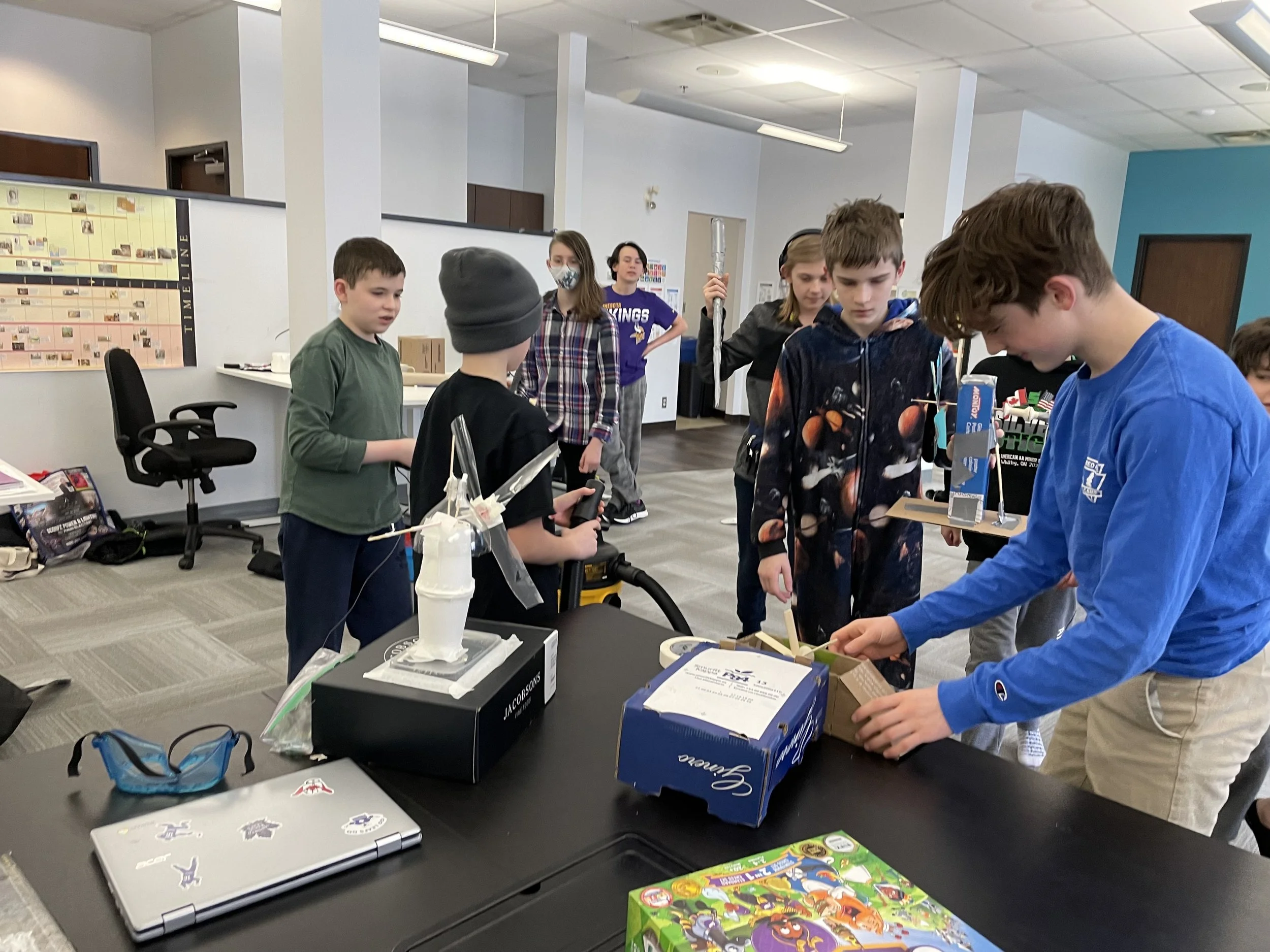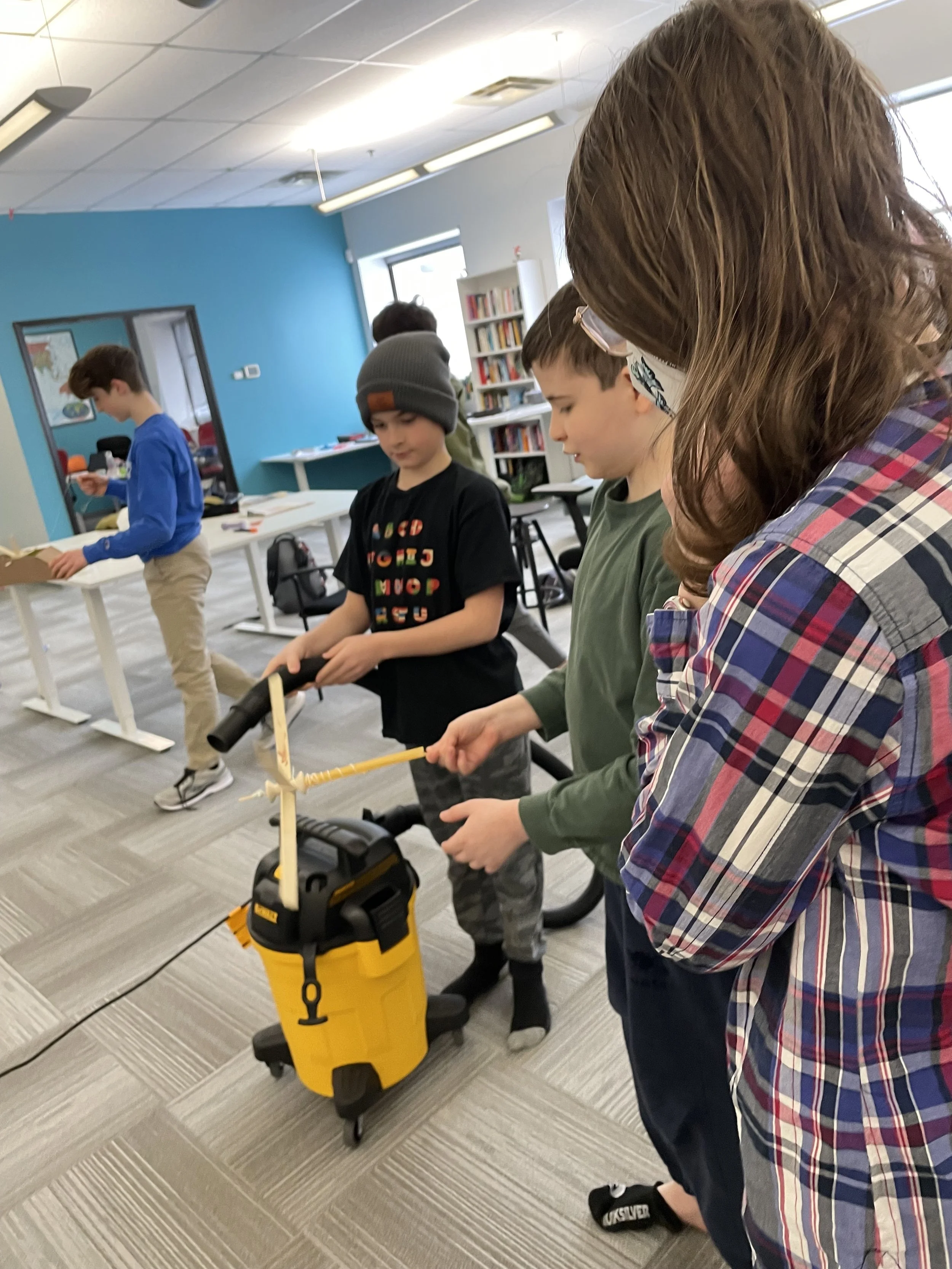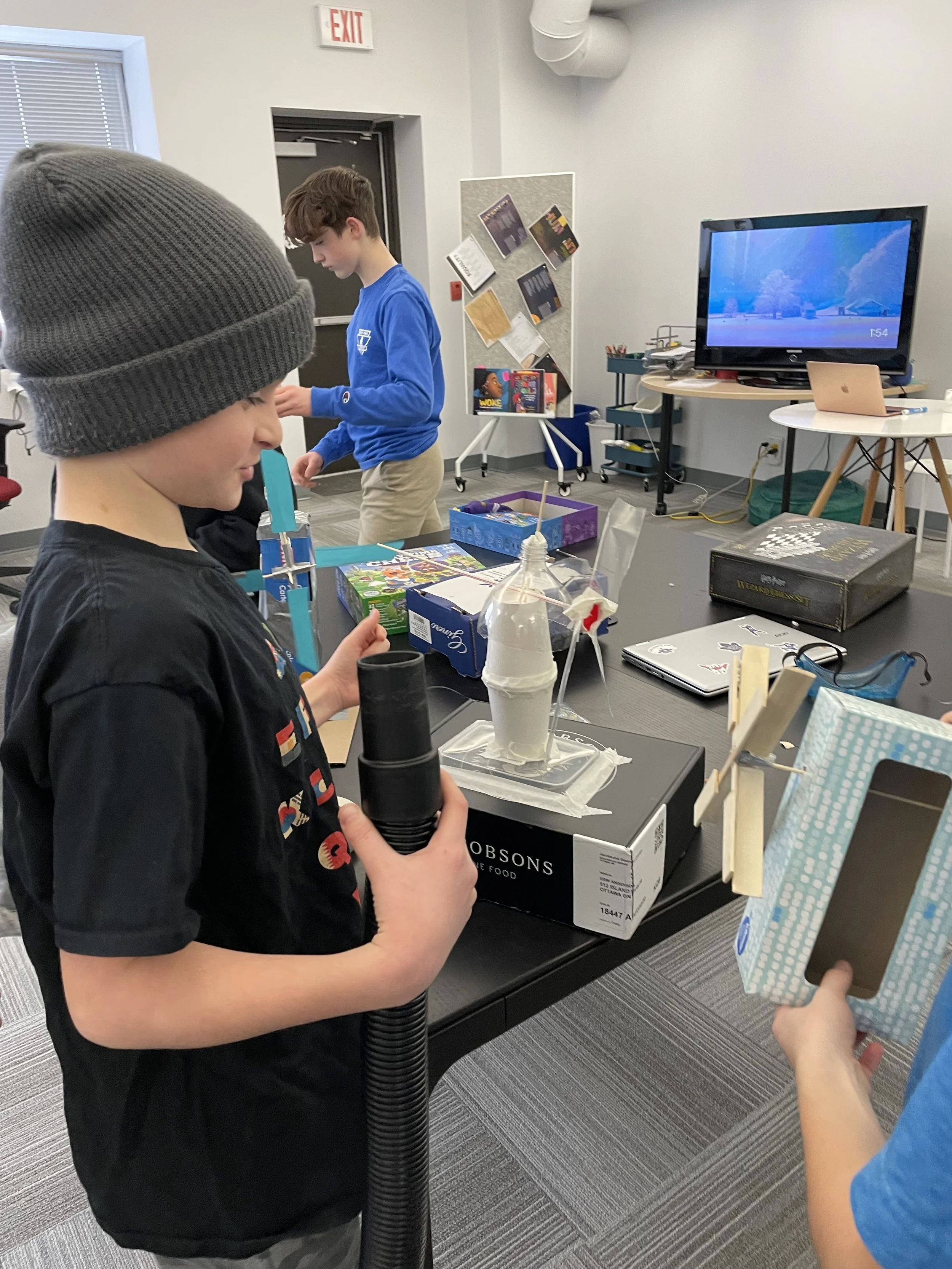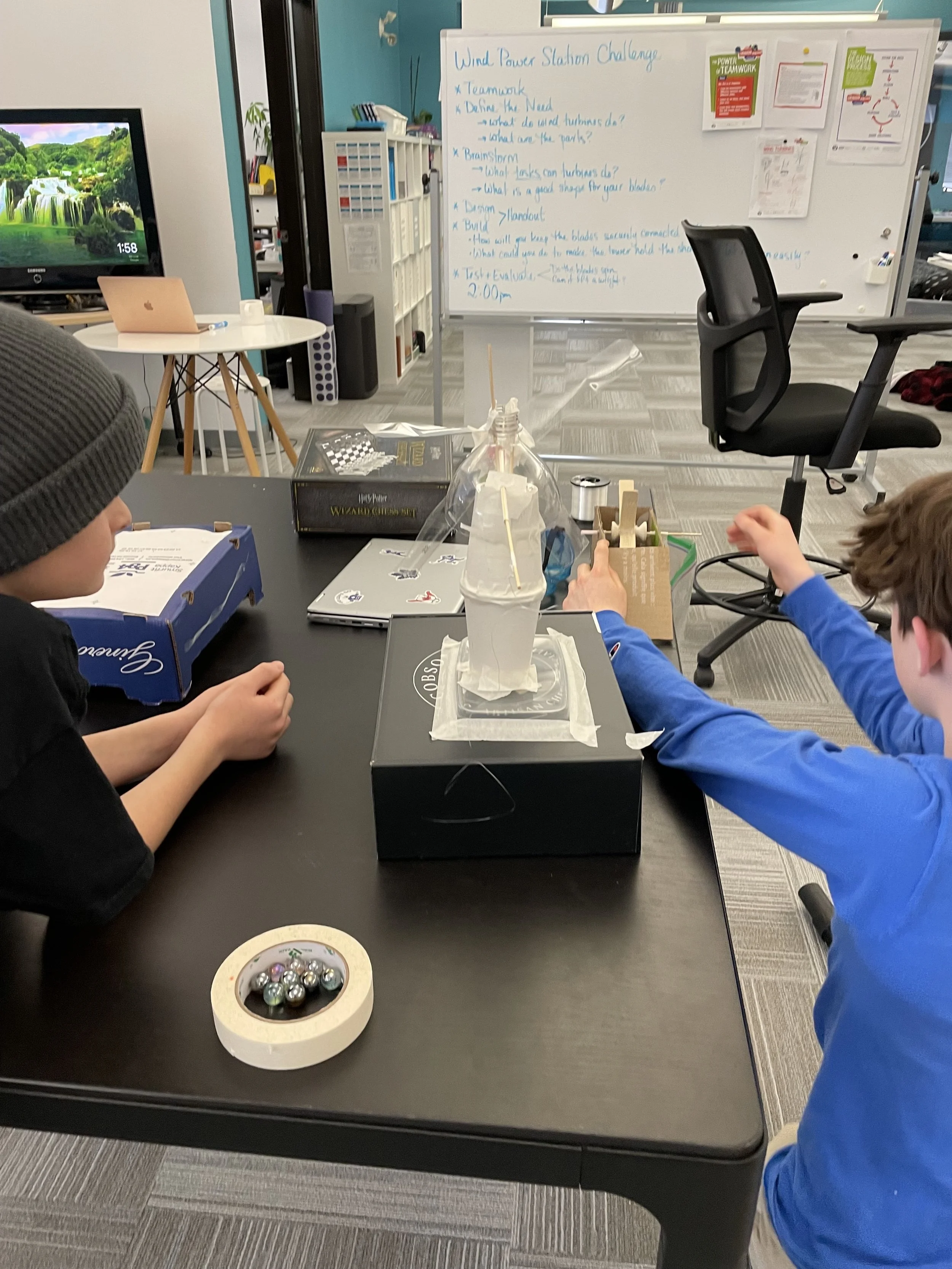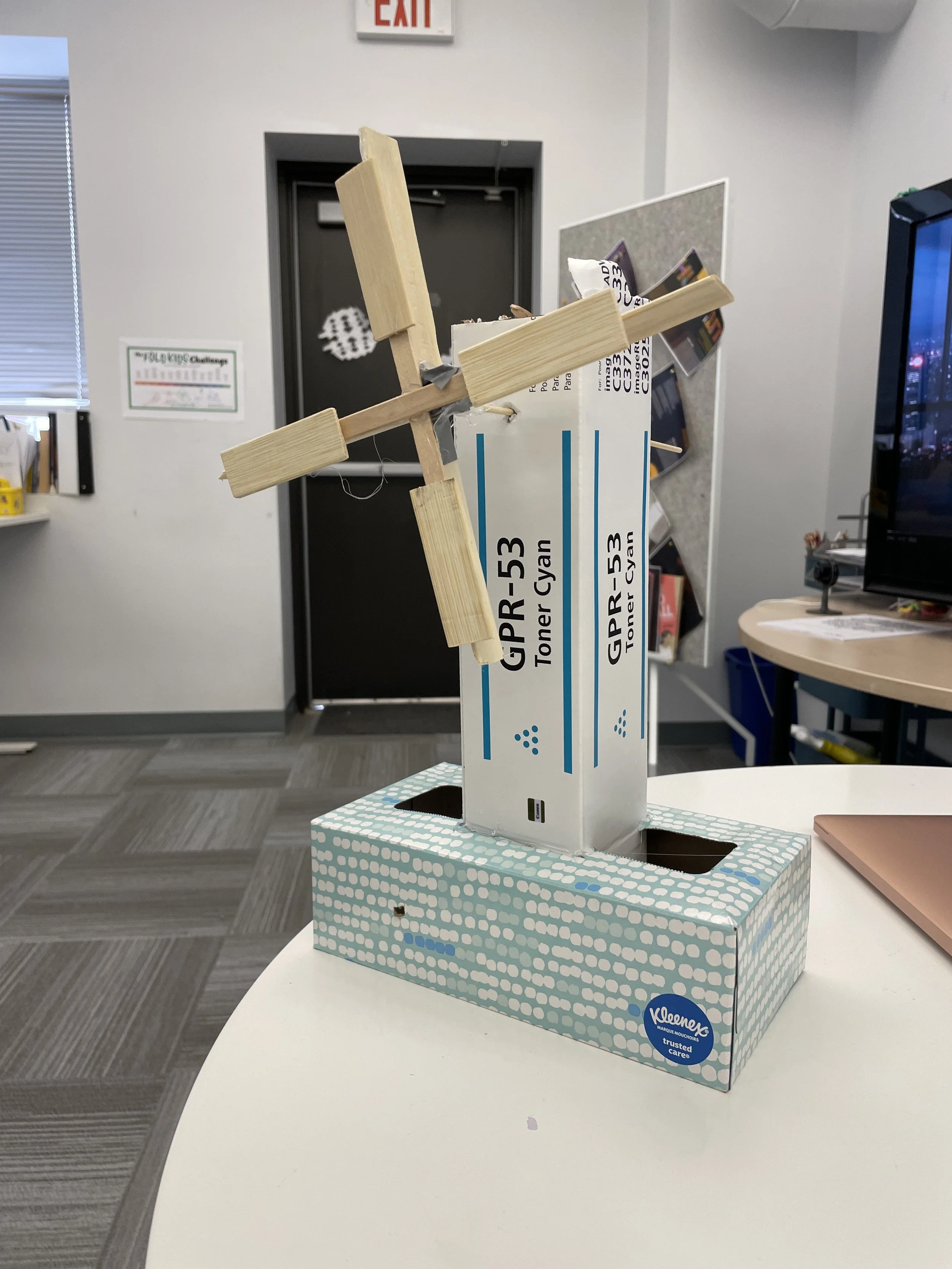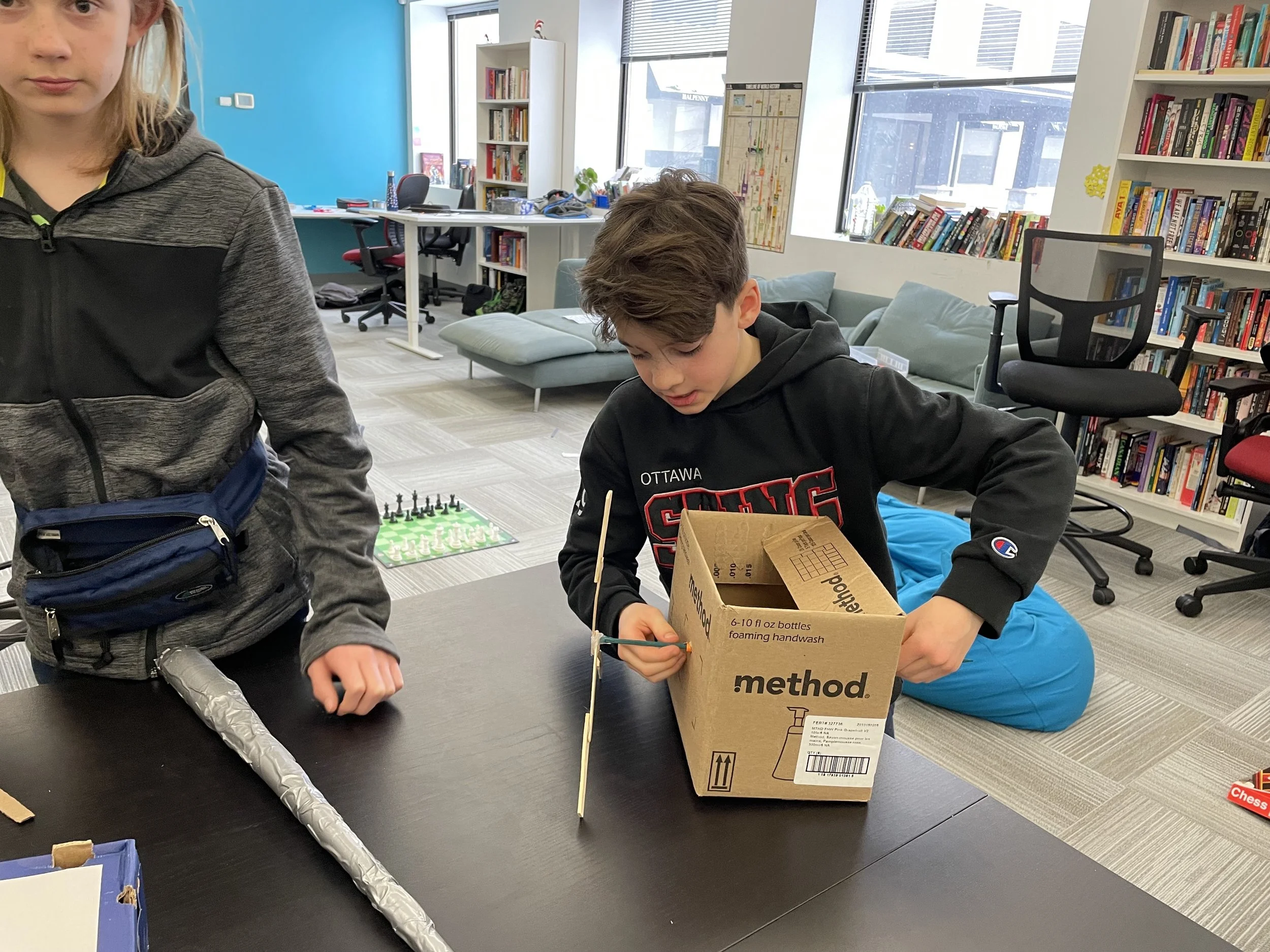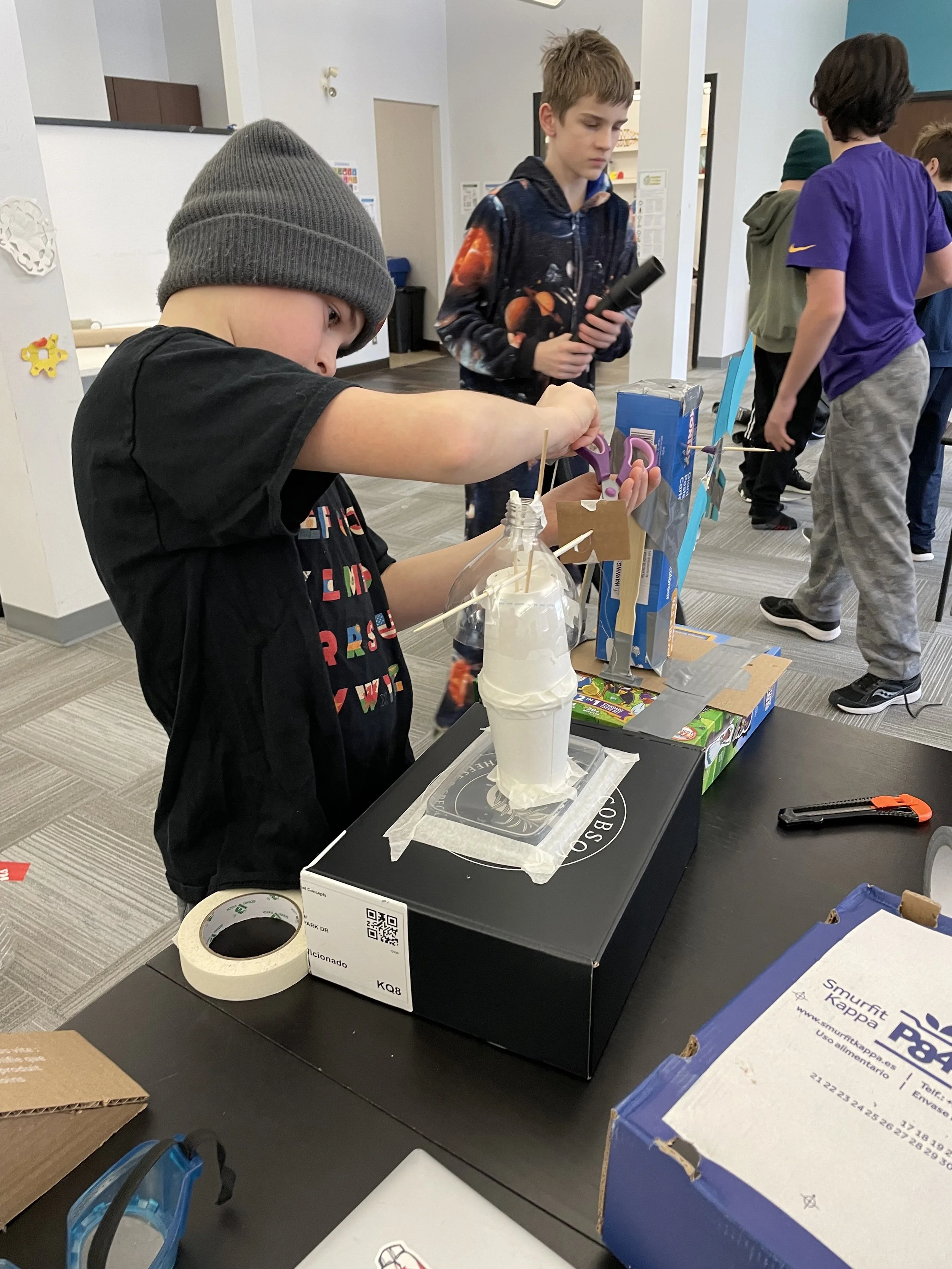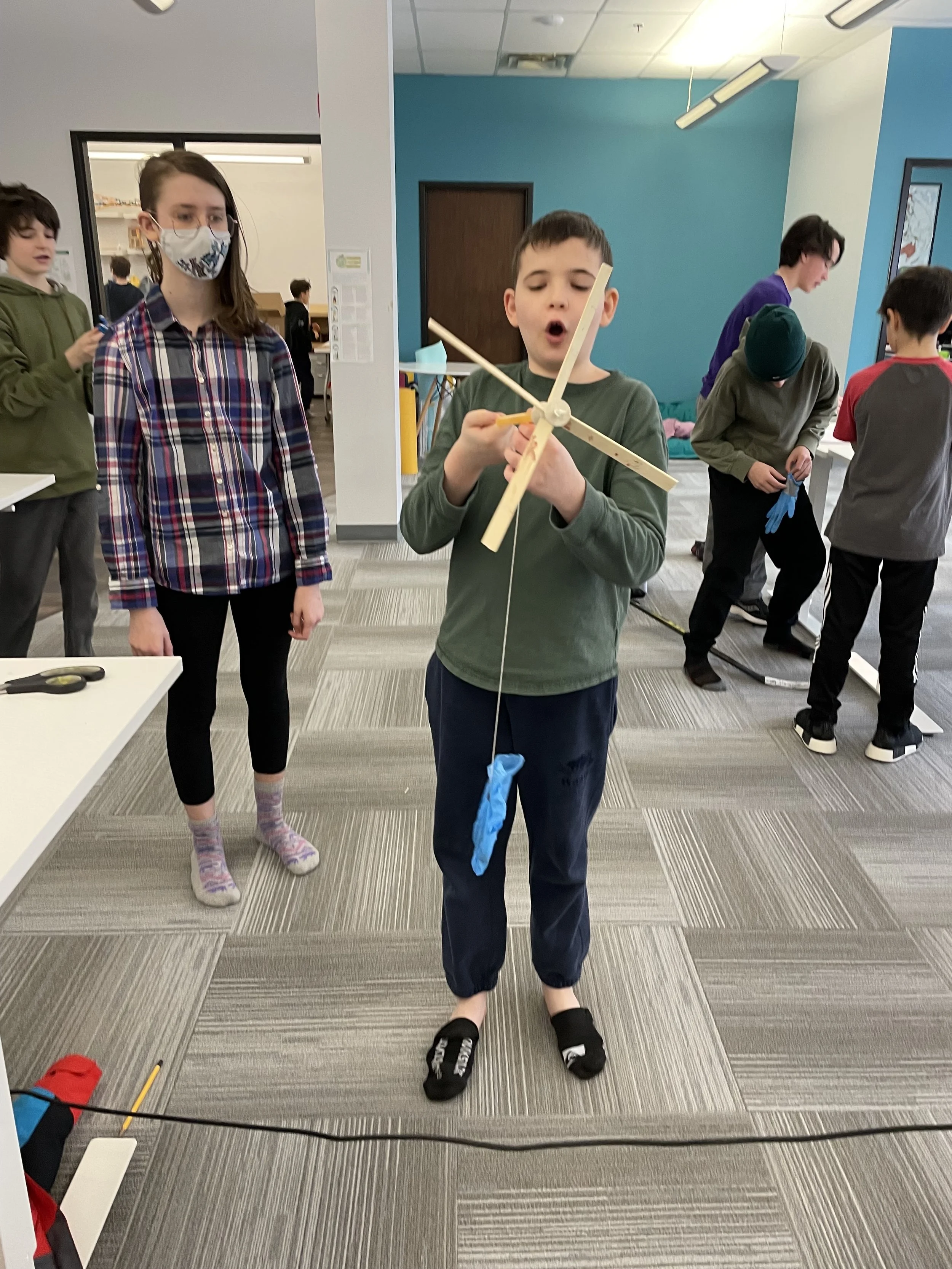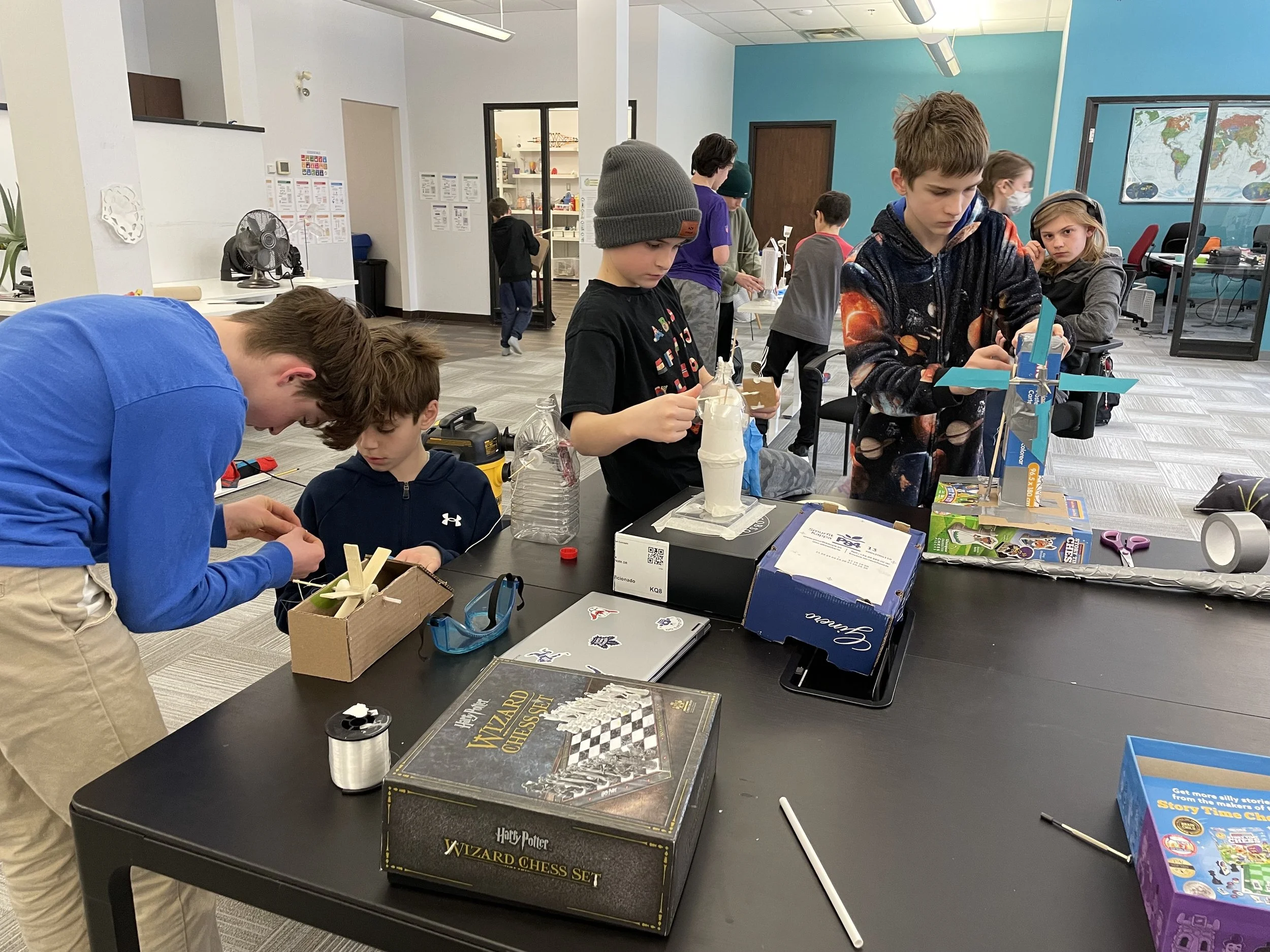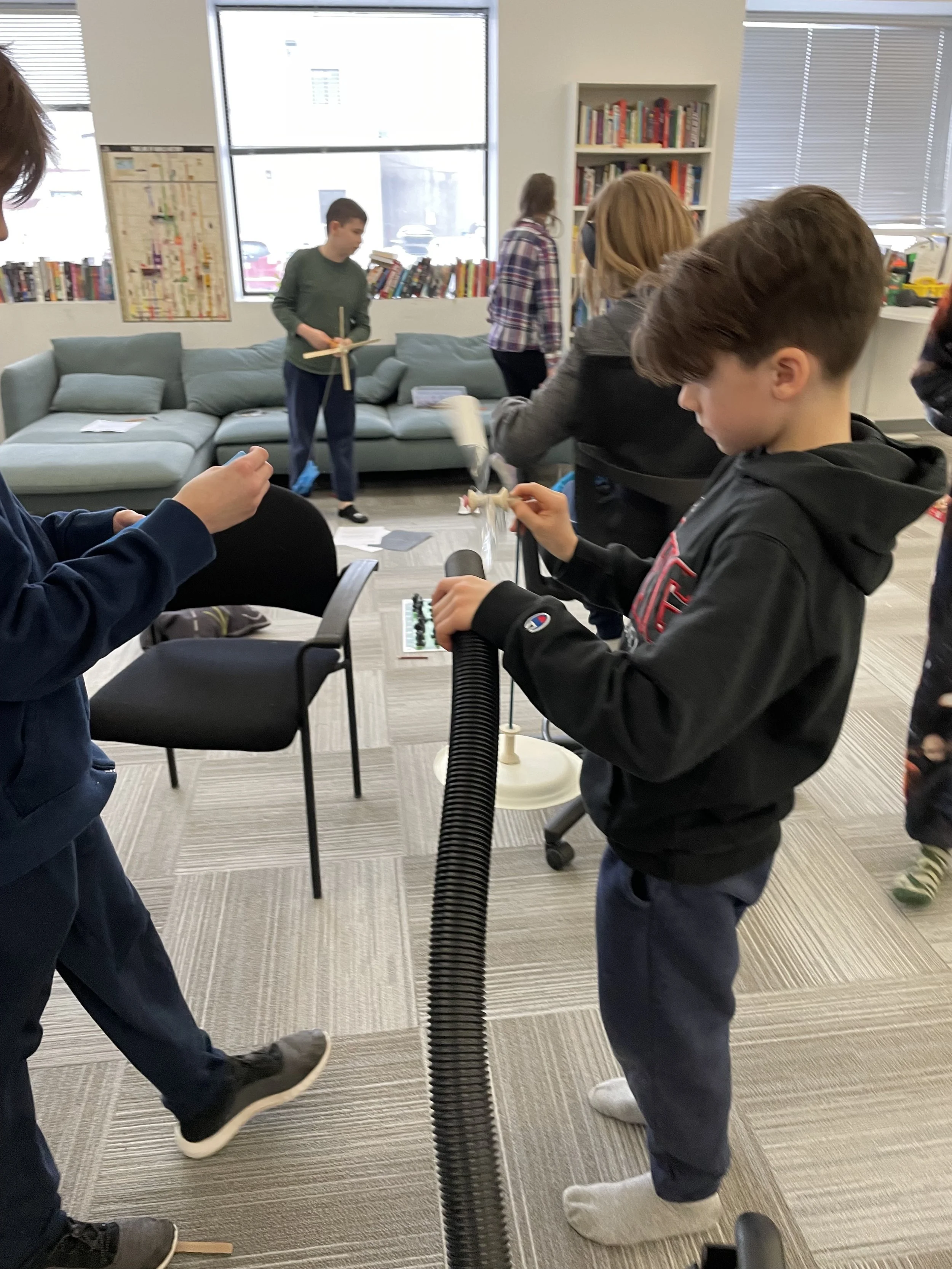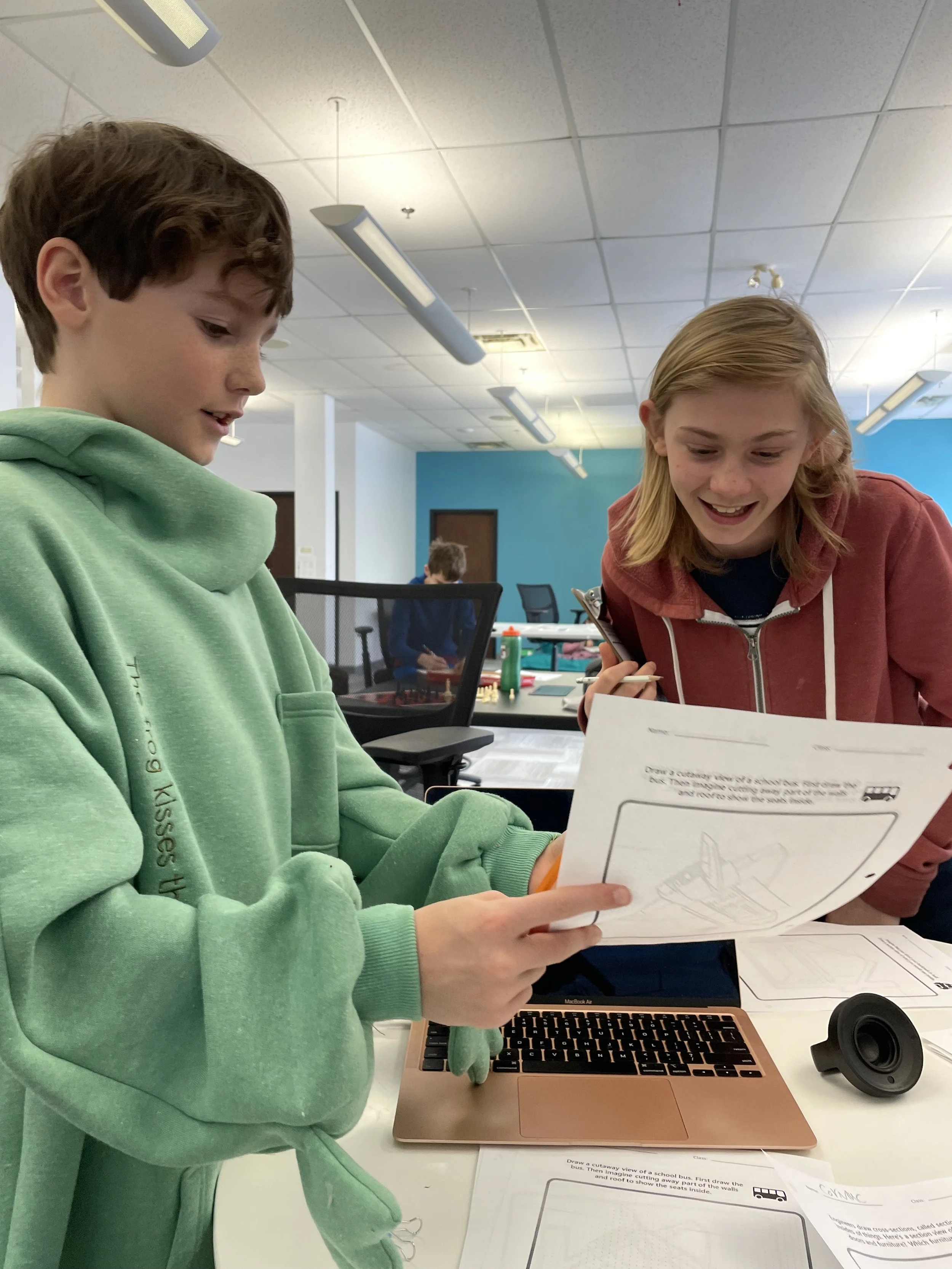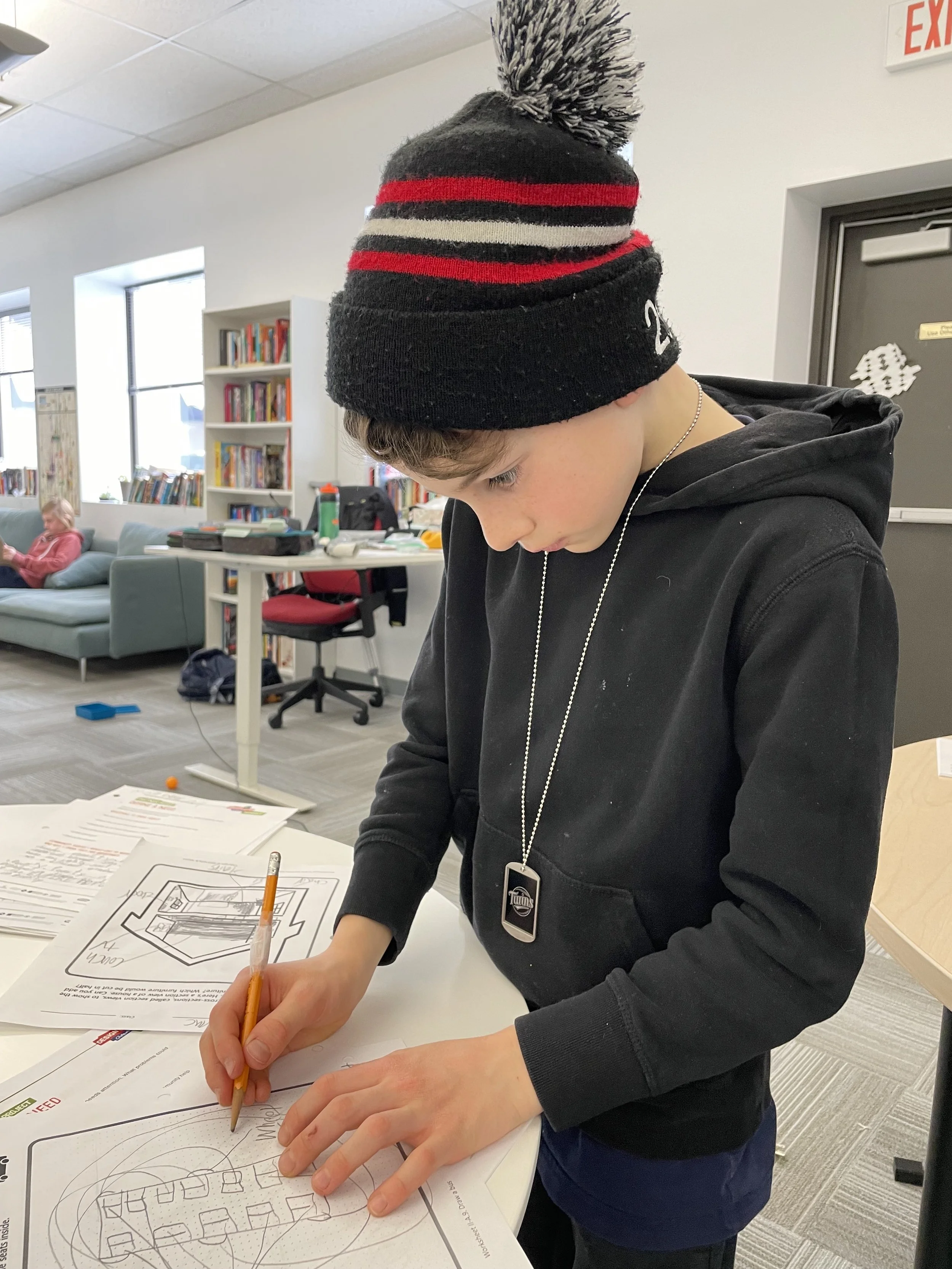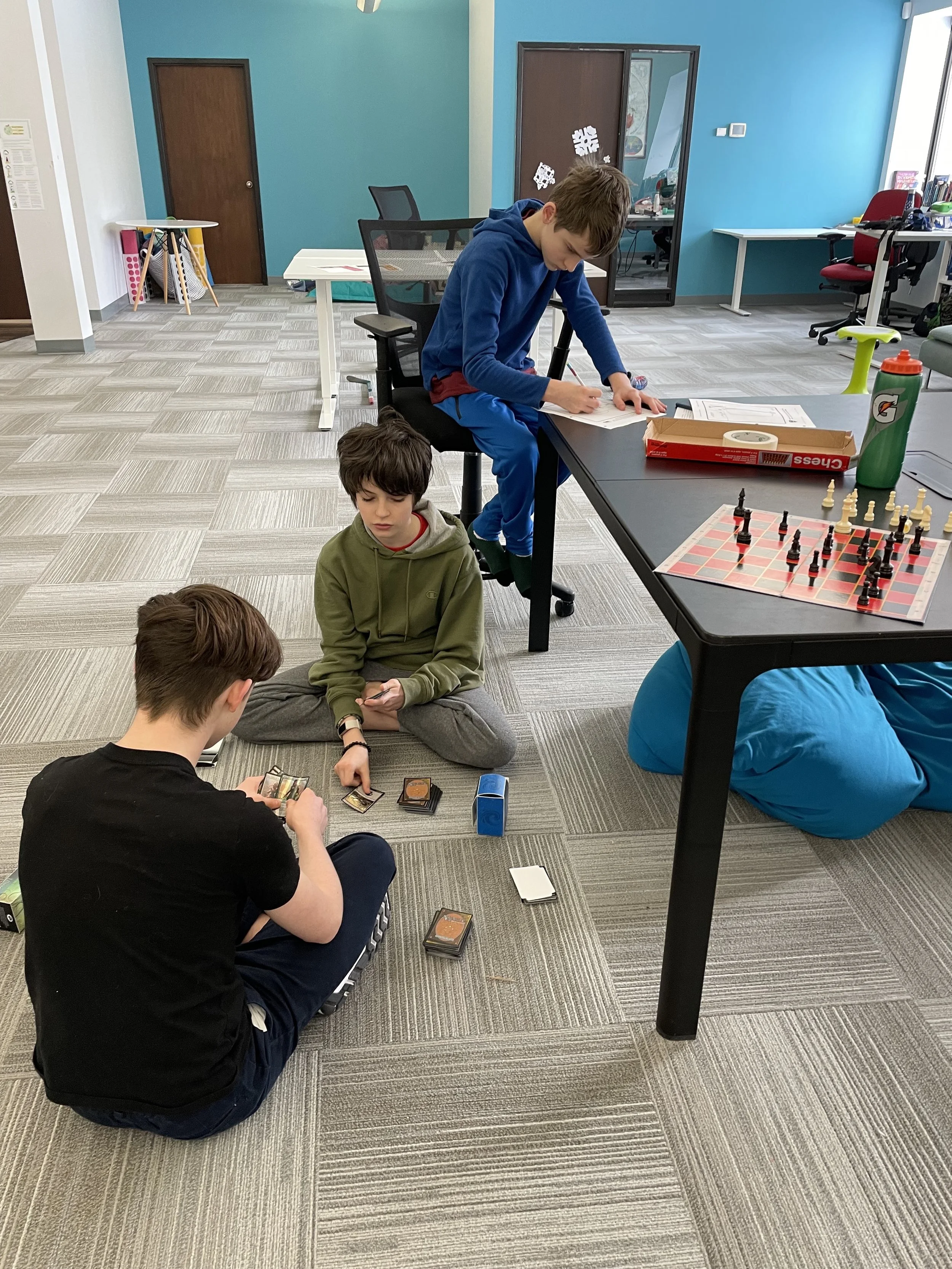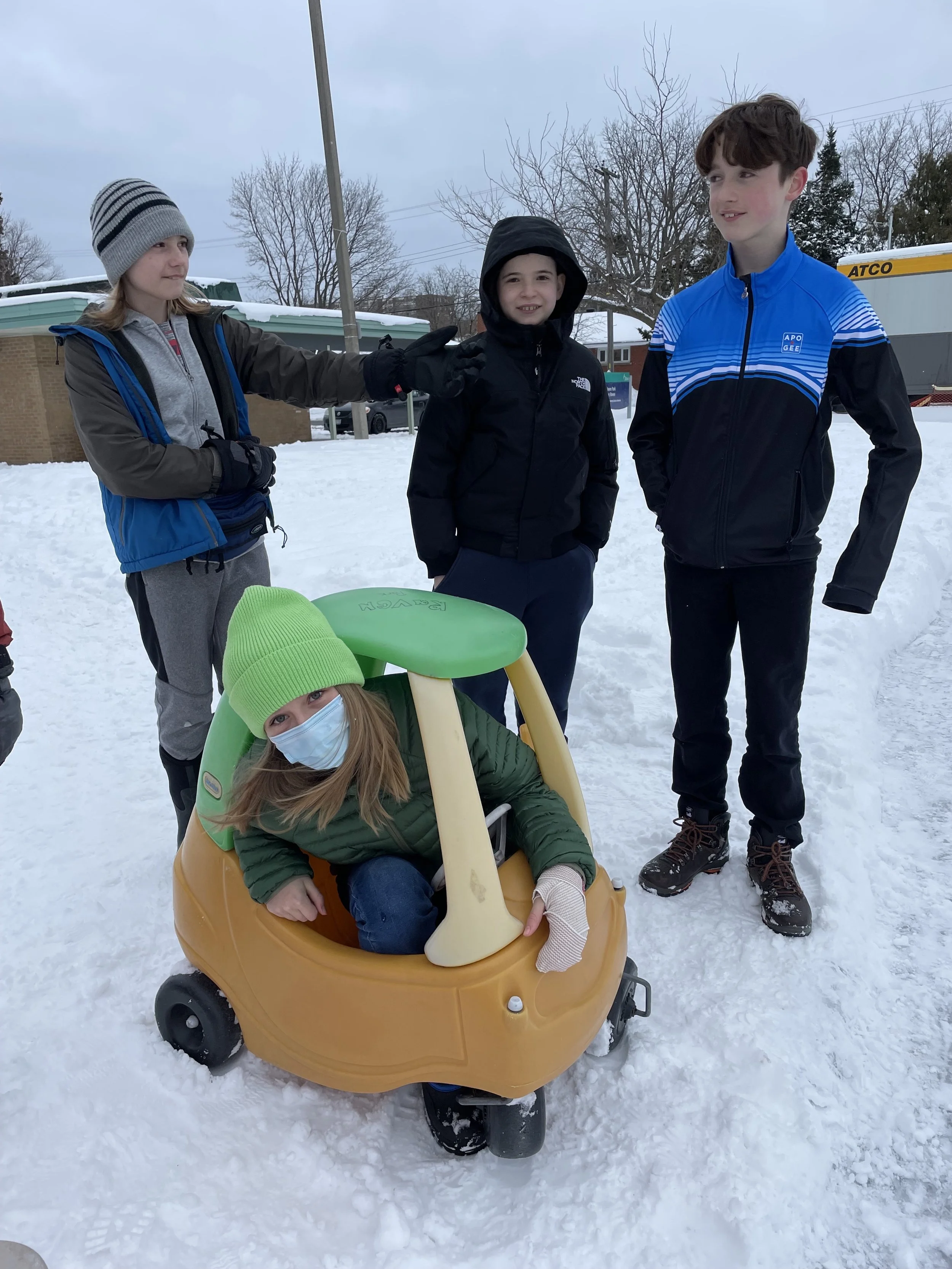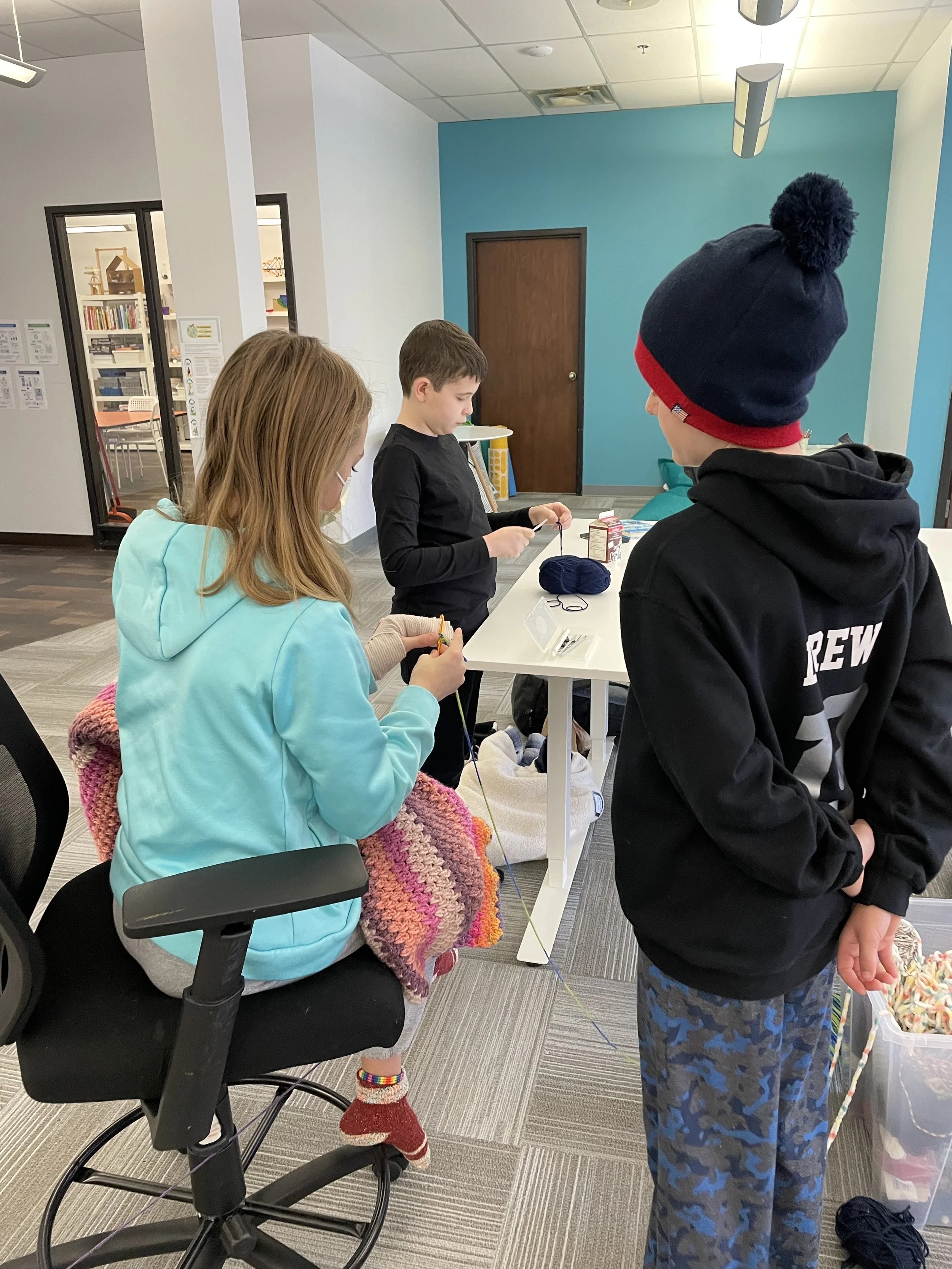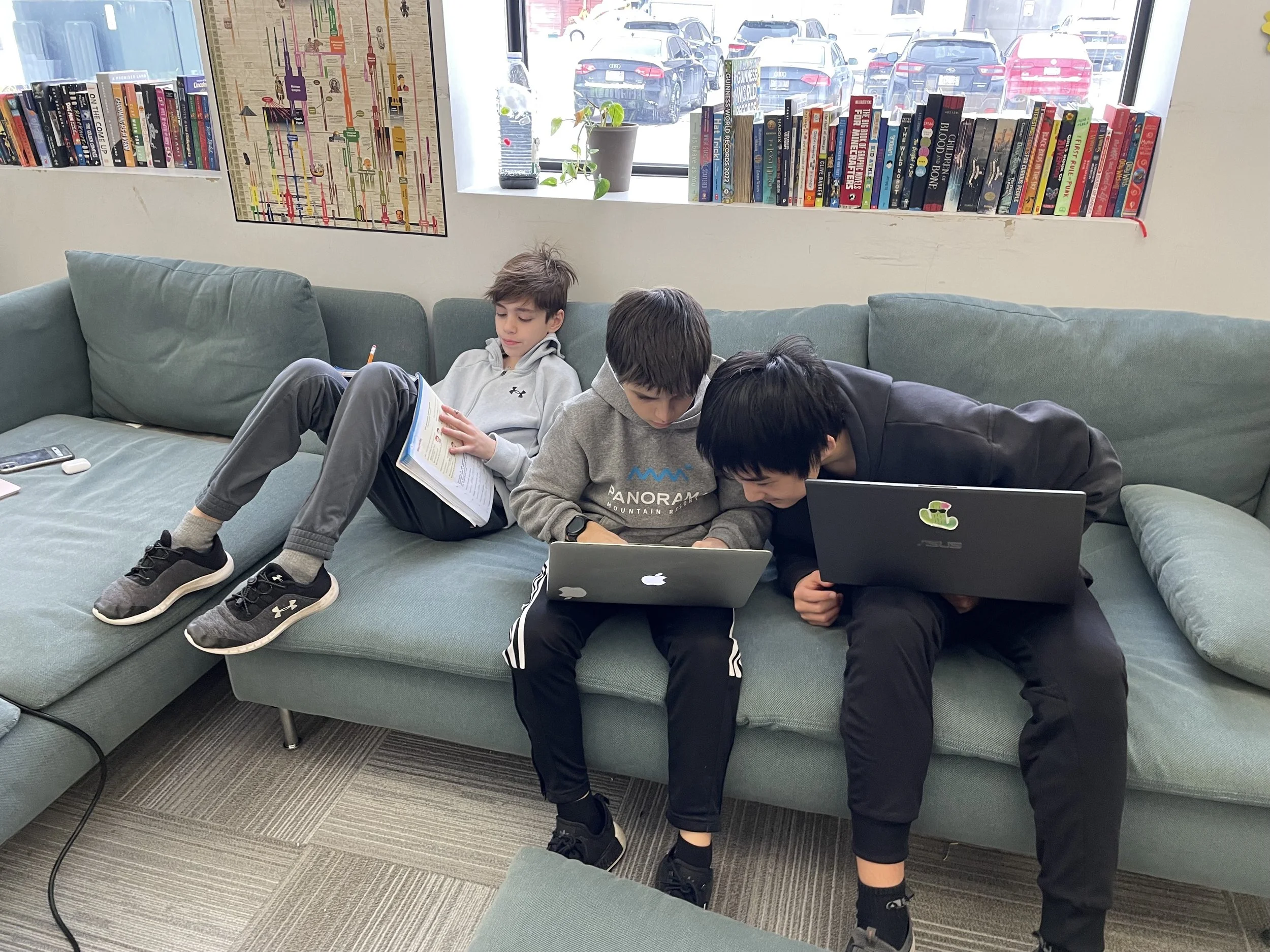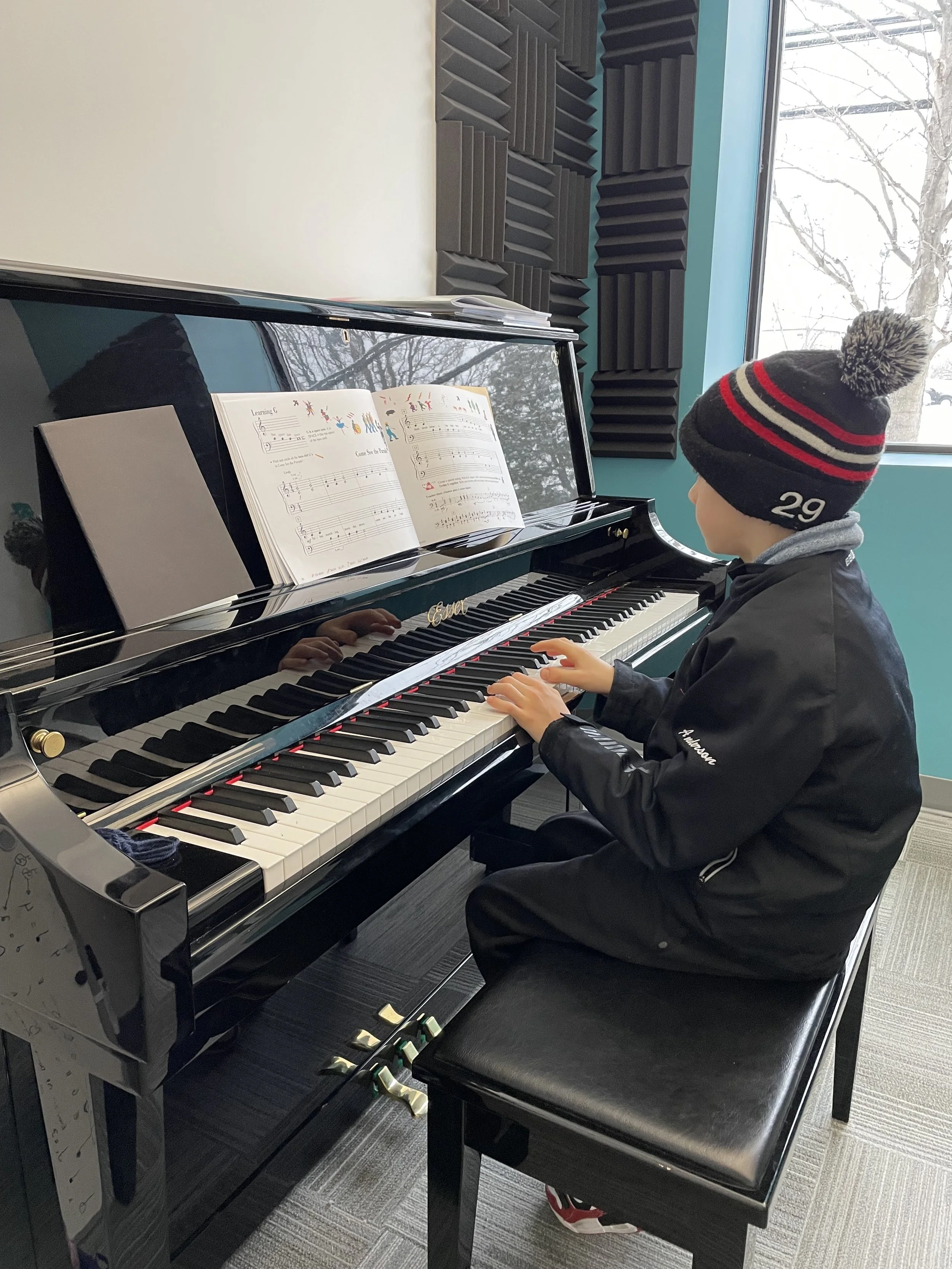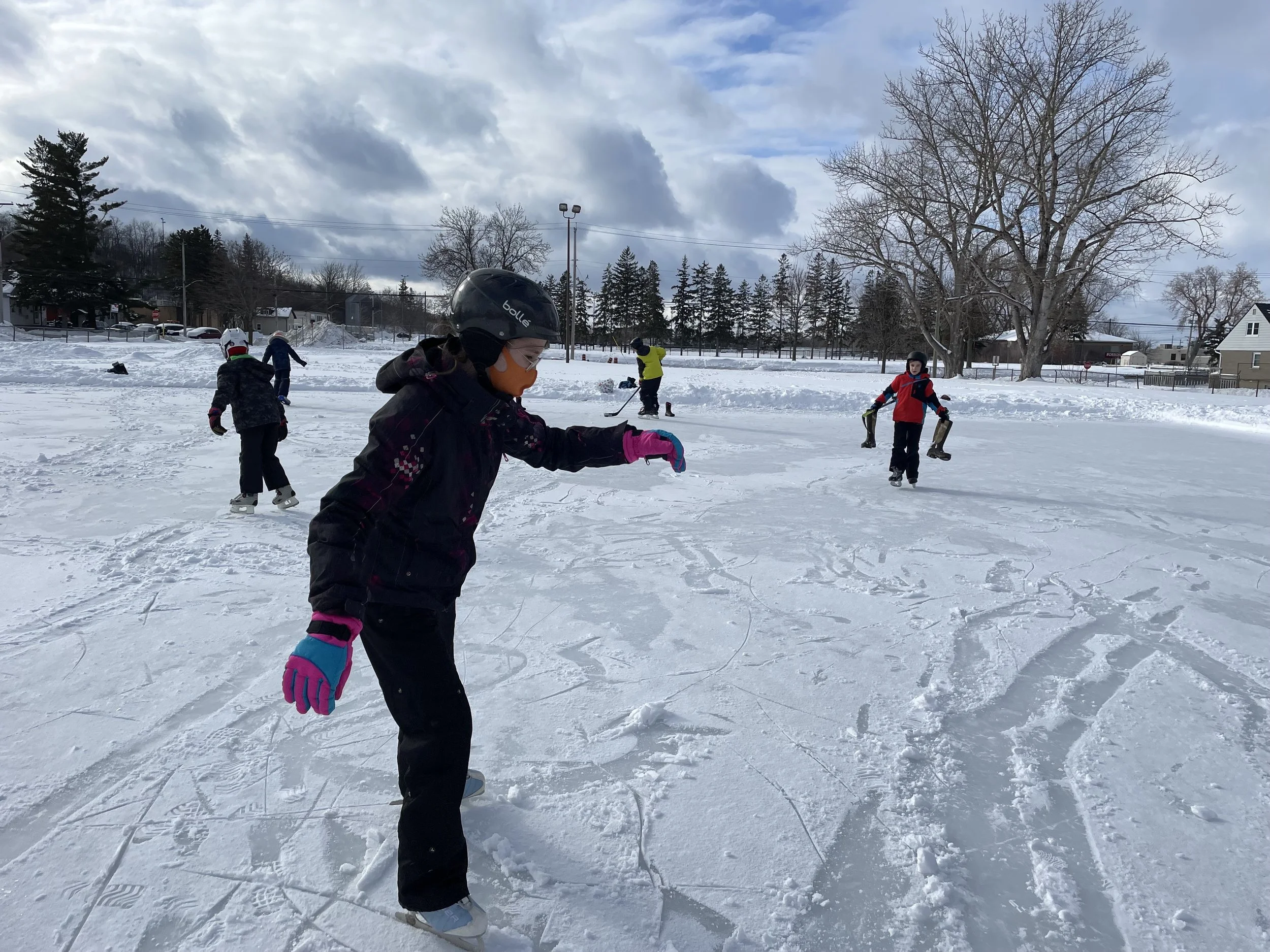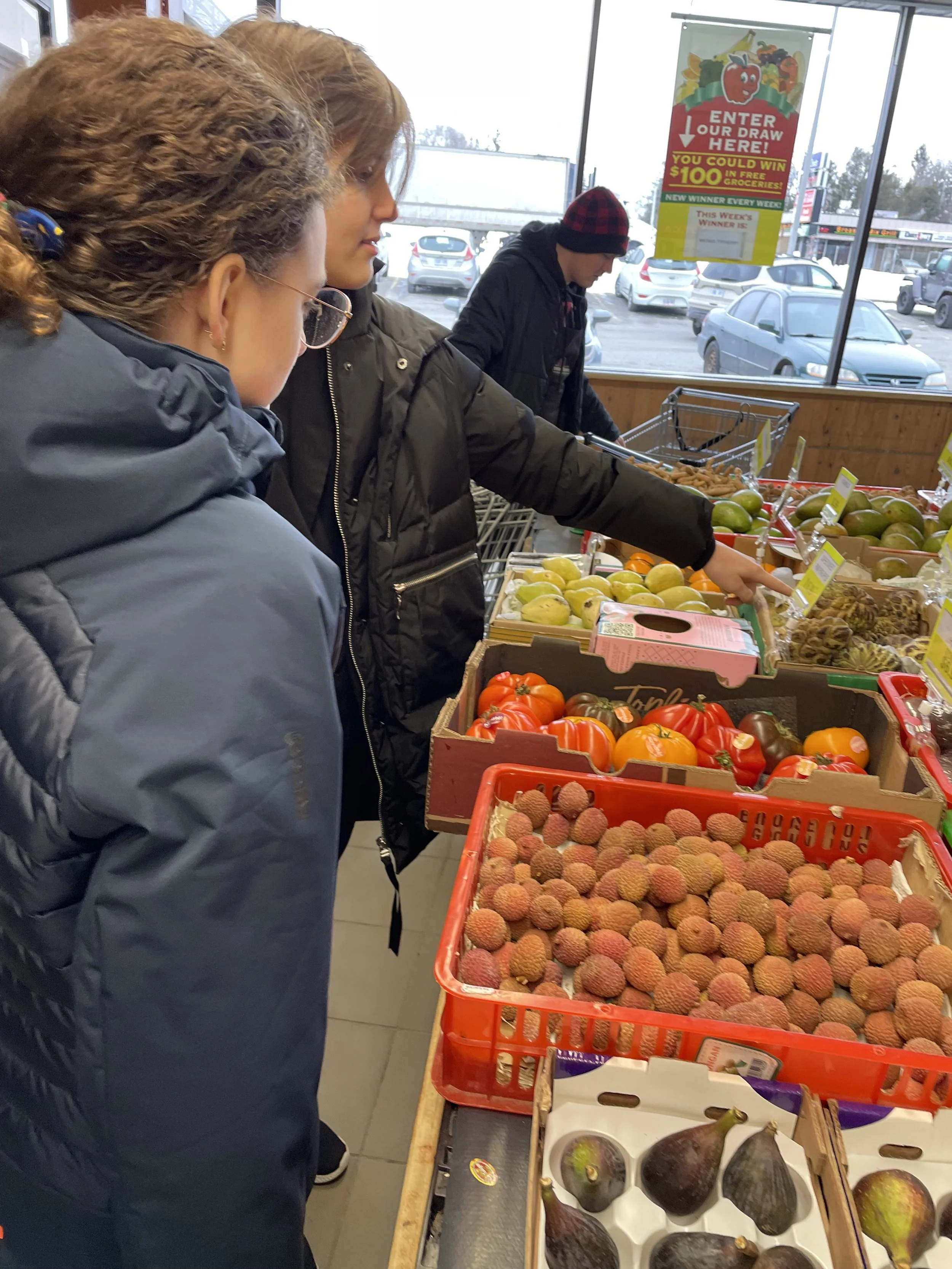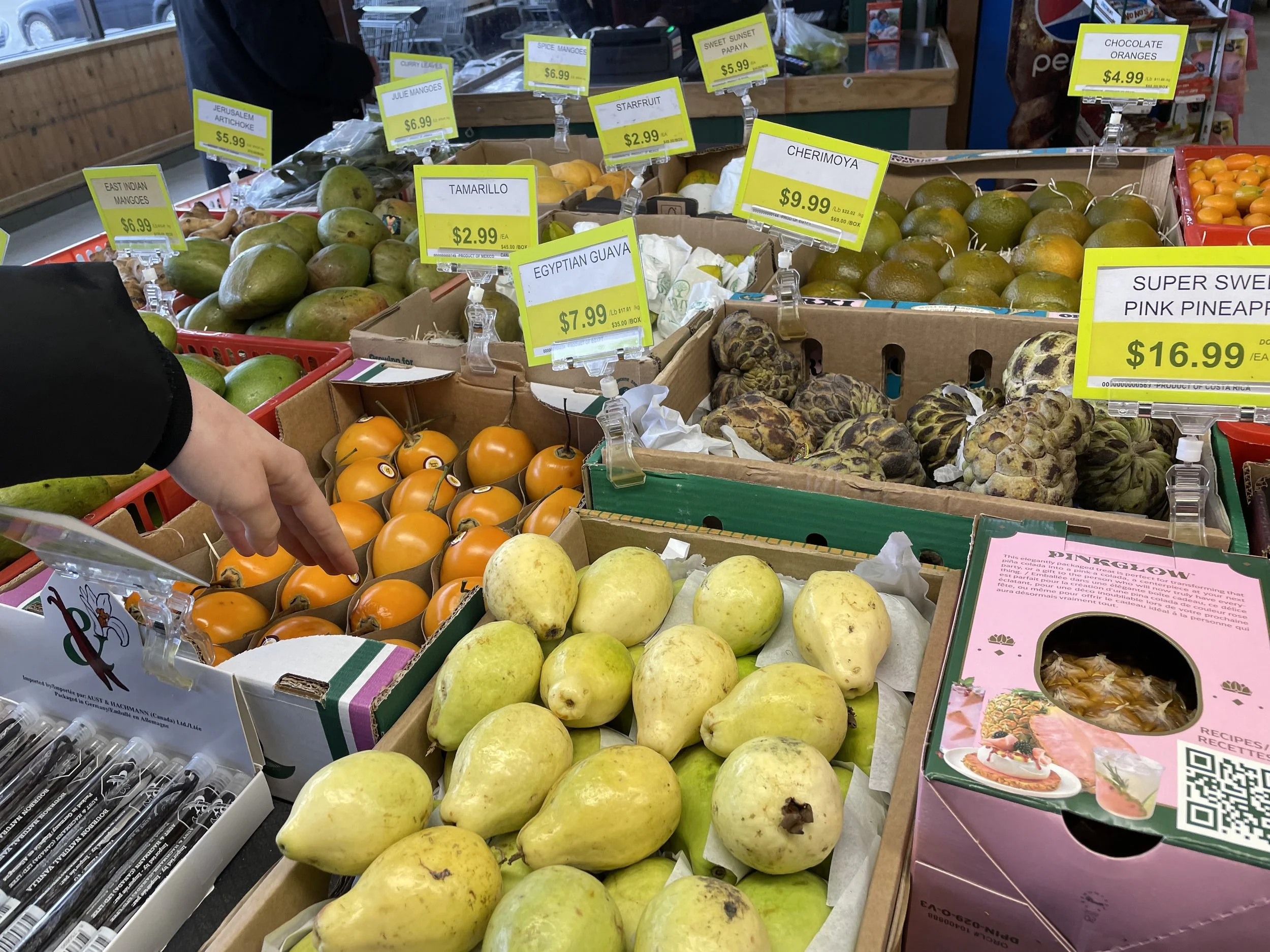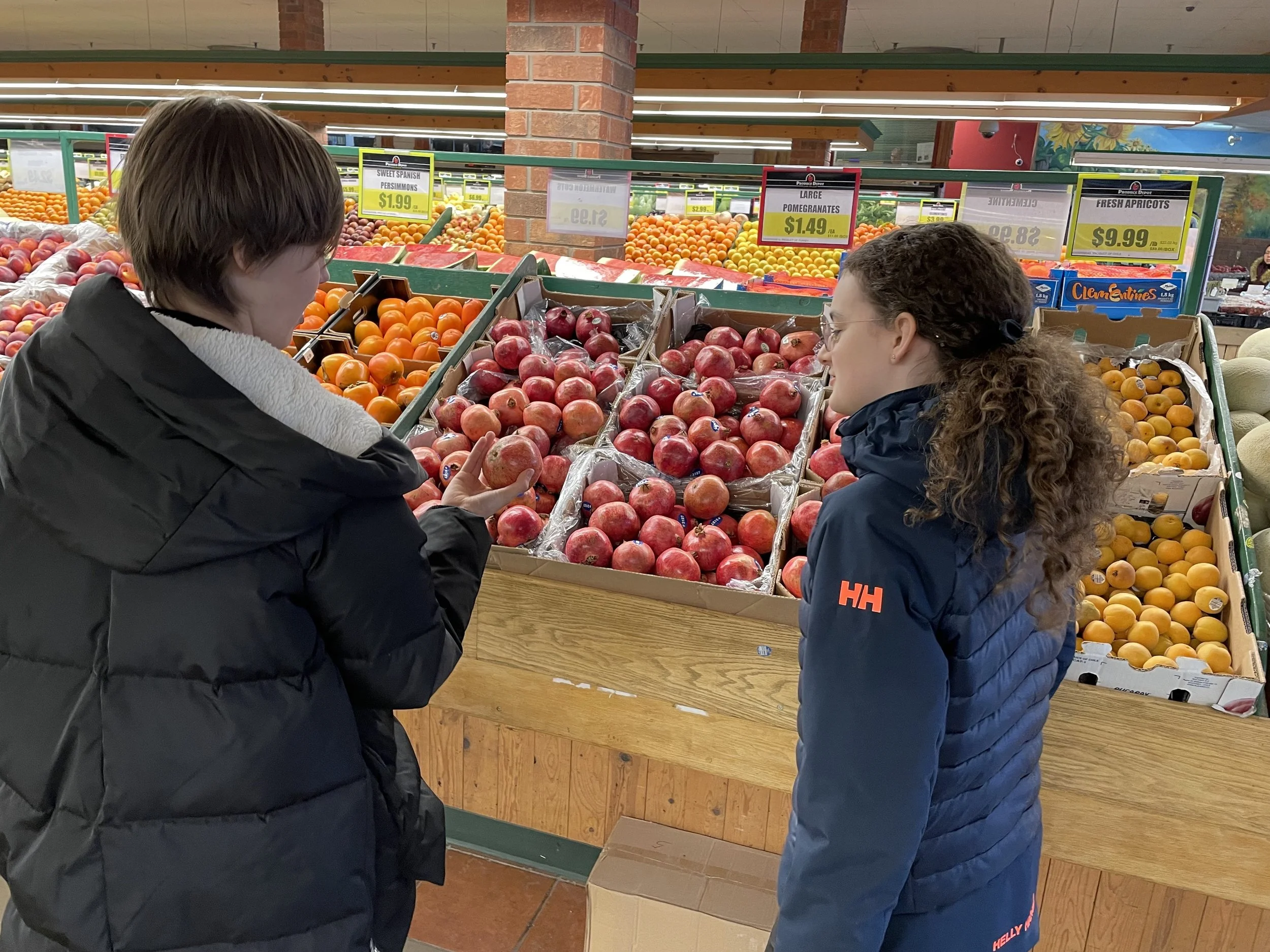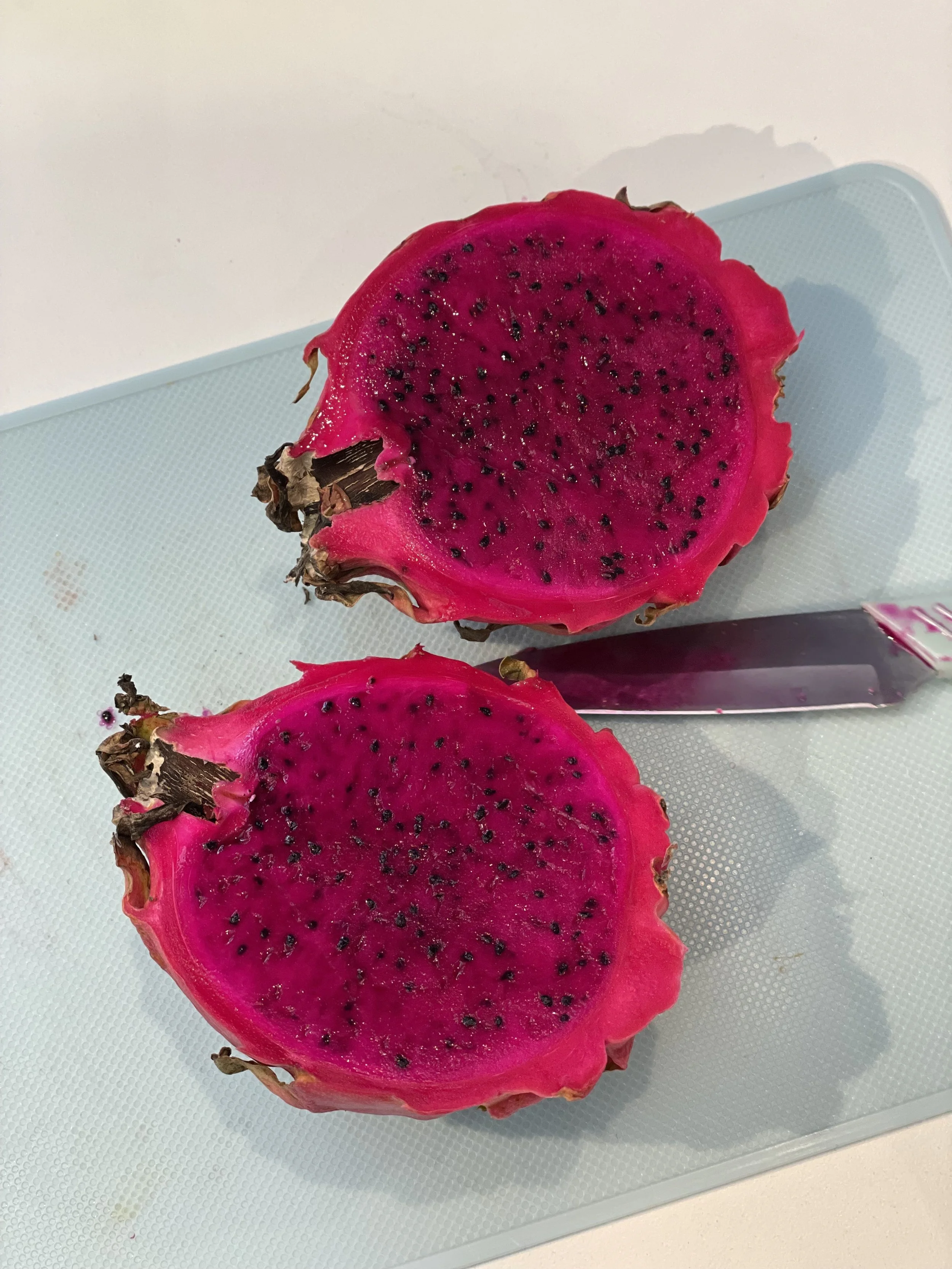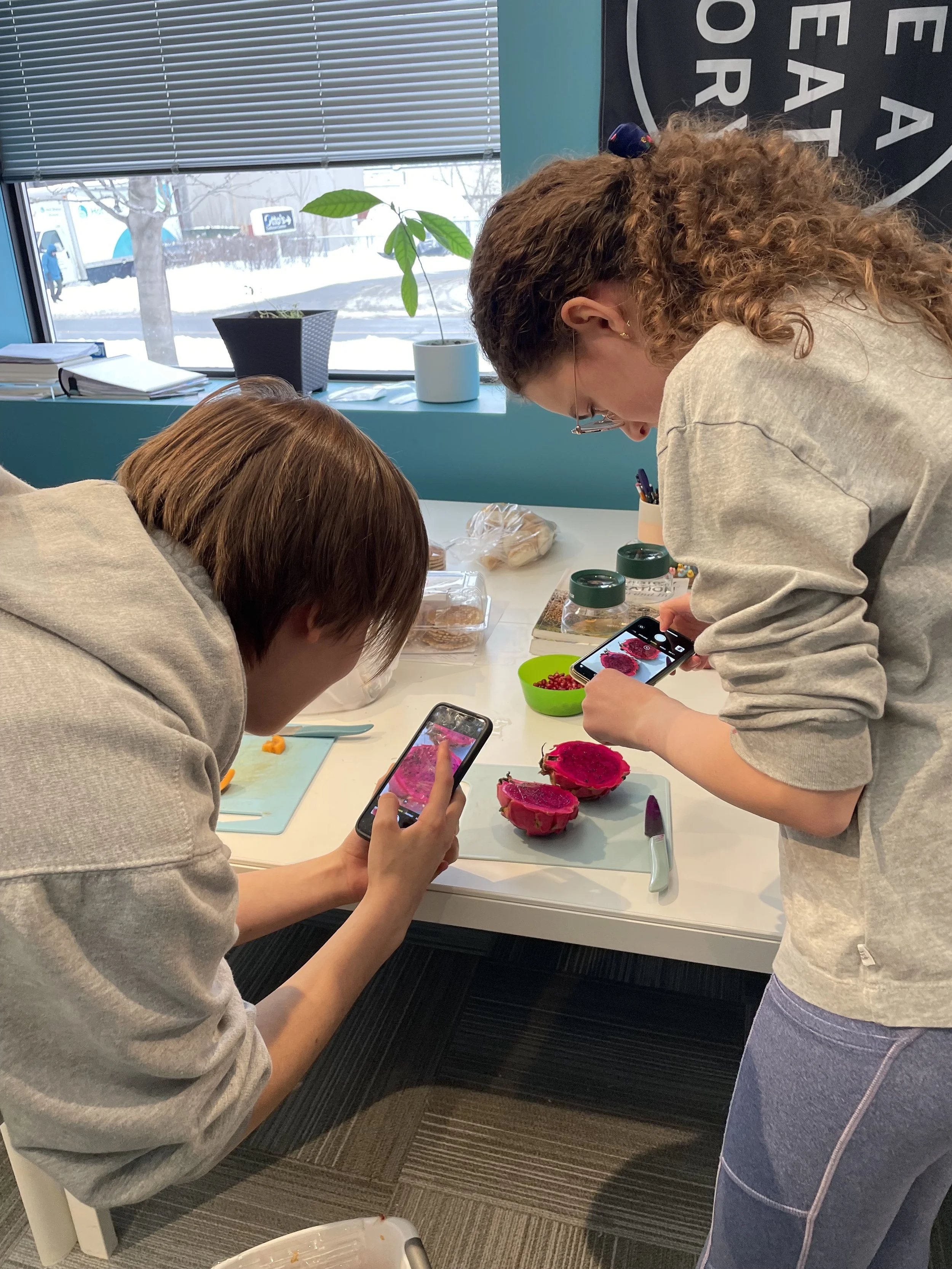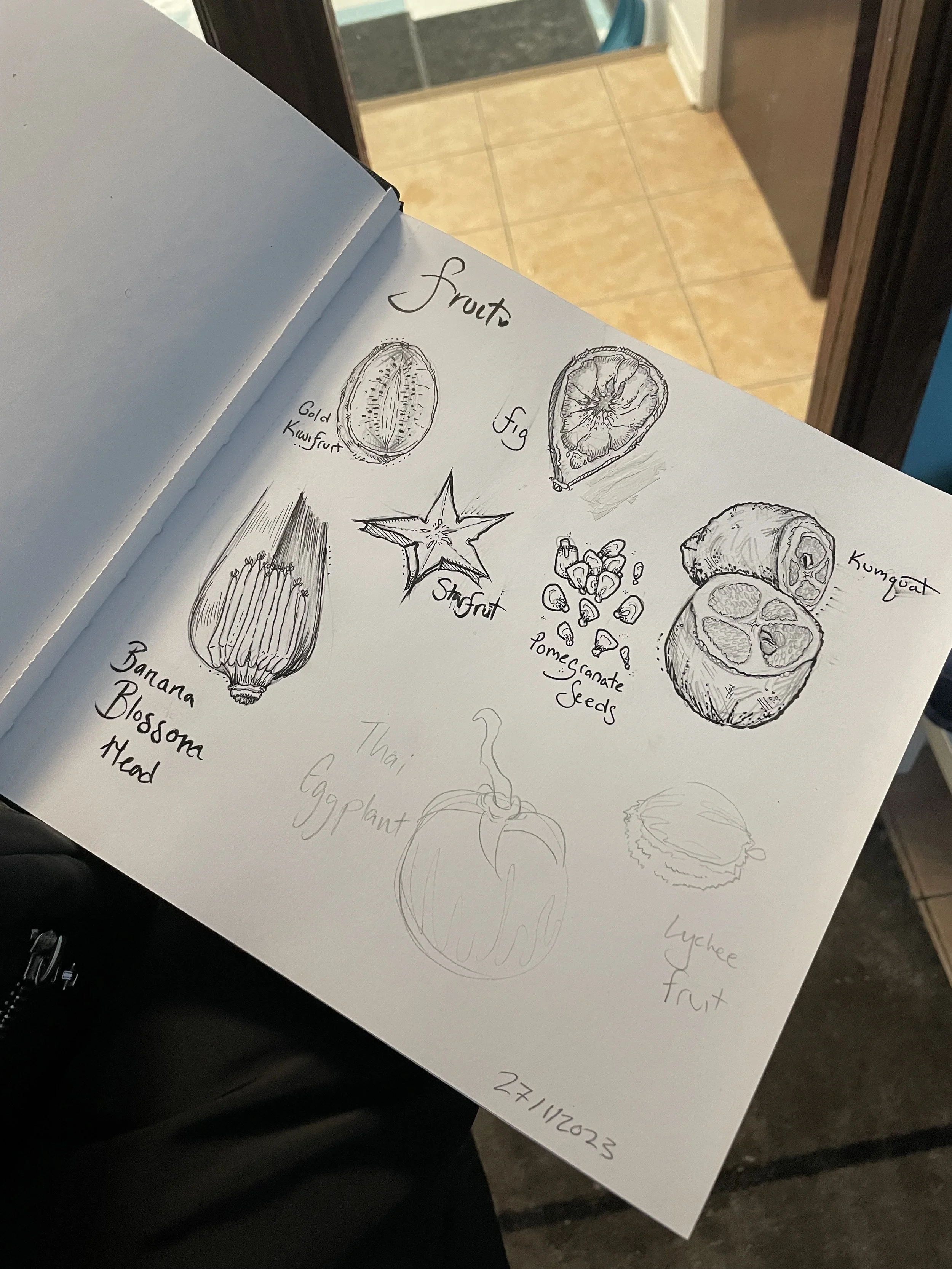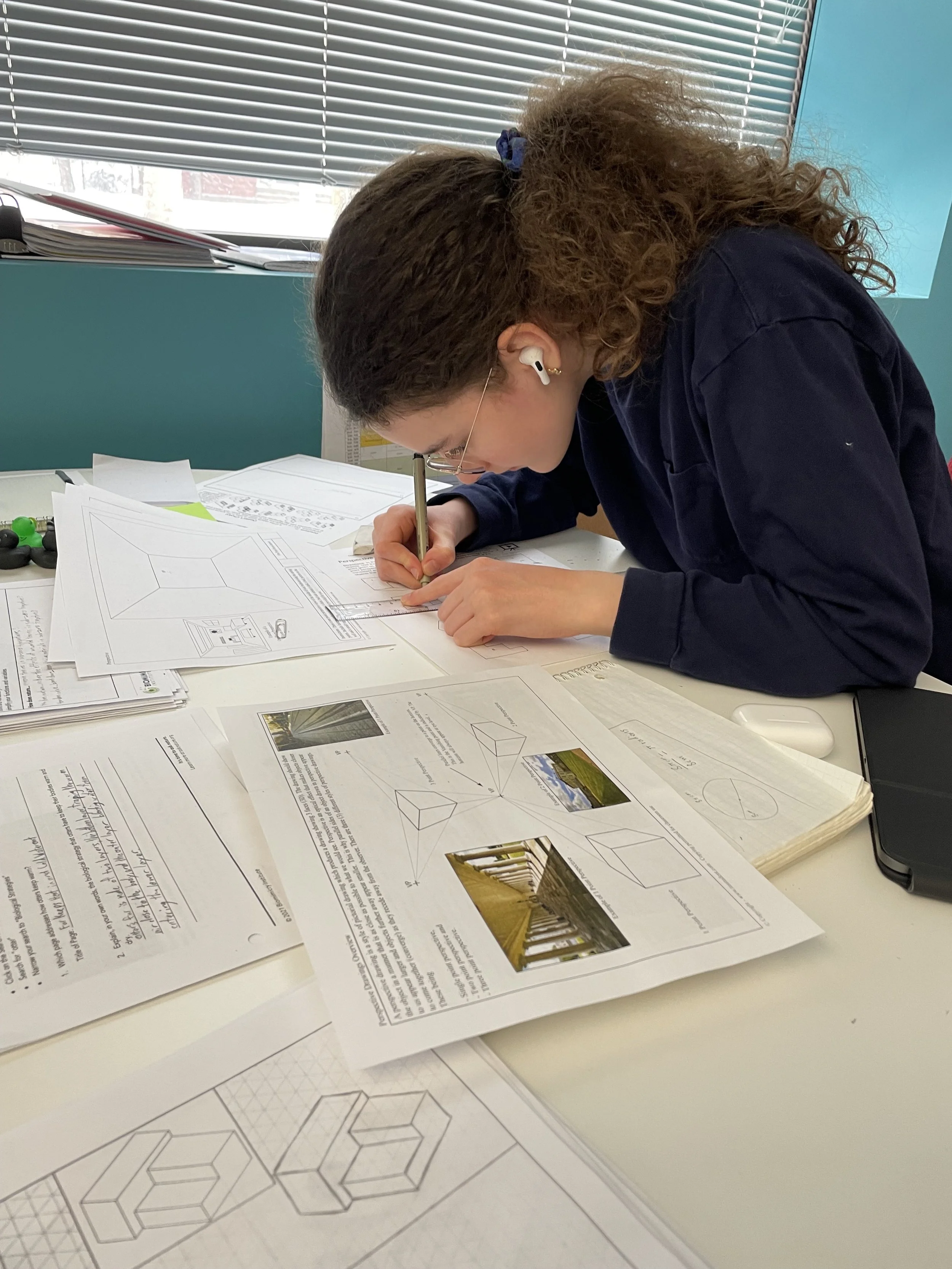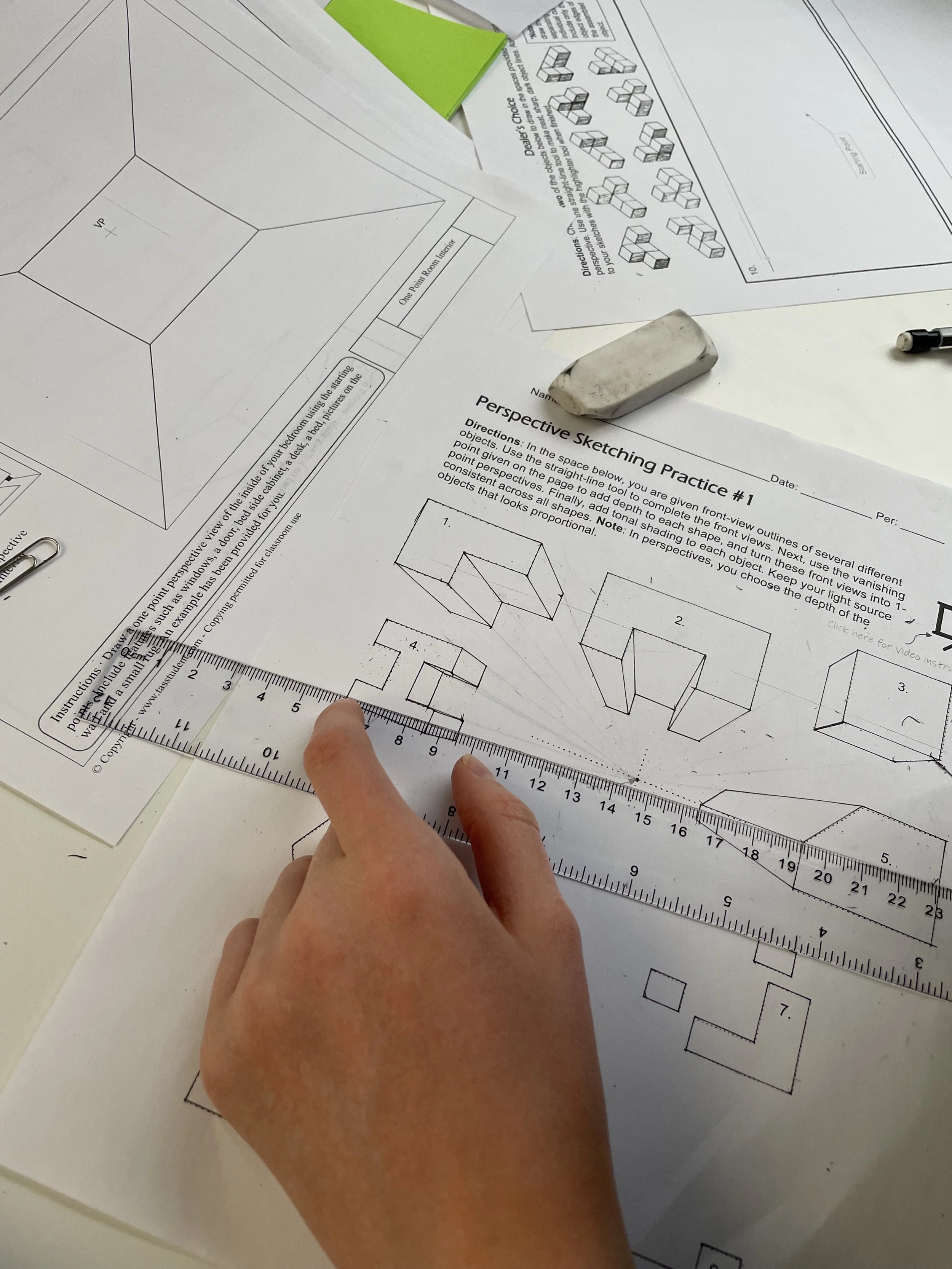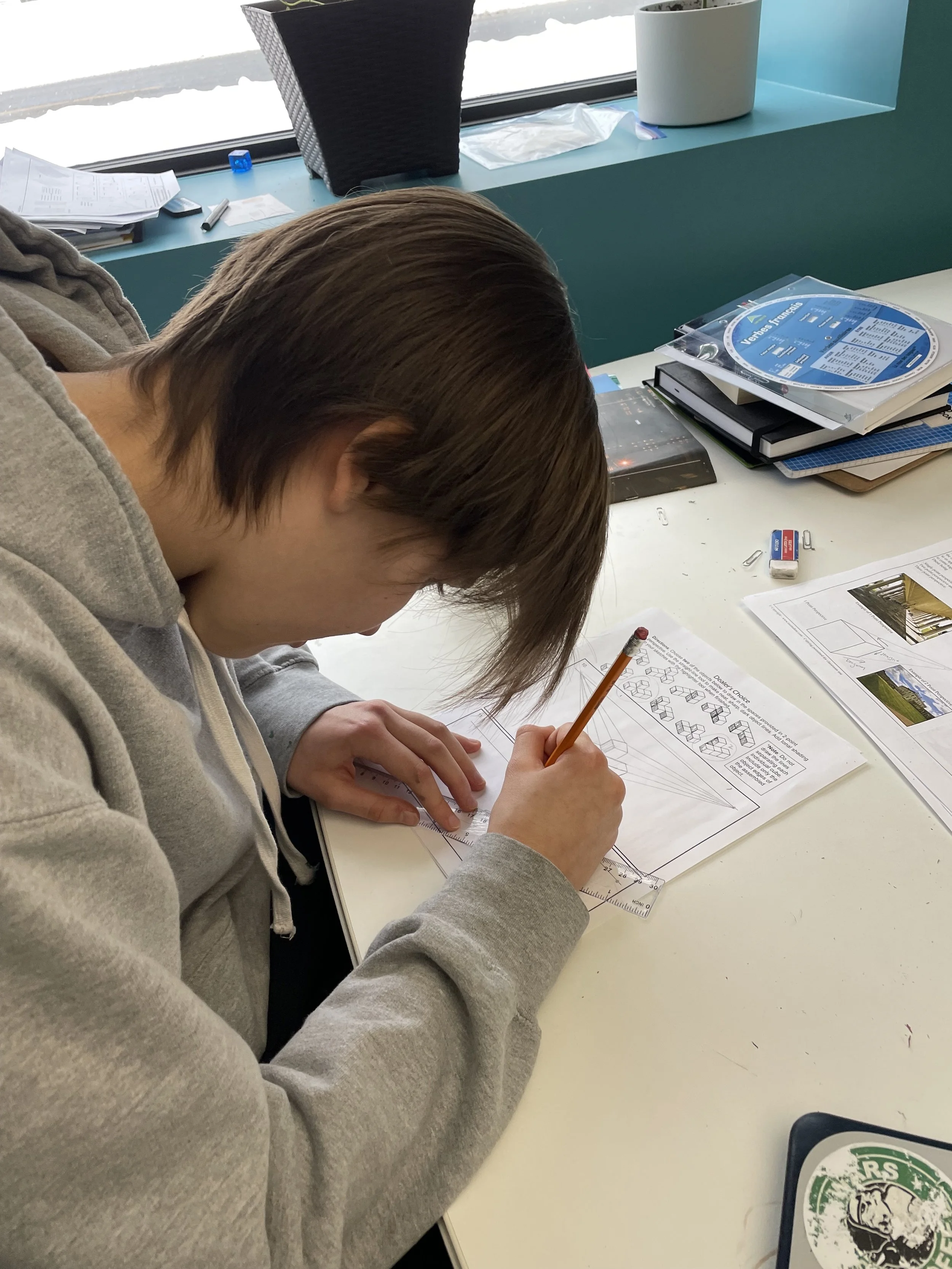Revel Recap: January 23 - 27, 2023
Spark Studio
Mindfulness
Mary Anne Radmacher once said, "As we work to create light for others, we naturally light our own path." With Bell Let's Talk Day on Wednesday, the Sparks had an open conversation about what kindness means to them, how they reciprocate it, and how they can offer kindness to themselves and others. The Sparks read the story Kindness is my Superpower by Alicia Ortego. The lesson of the story was that any act of kindness, no matter how big or small, makes a difference, especially when done intentionally. To end our Monday morning, everyone filled their cup of kindness with a kind message to make someone feel warm. On Tuesday, we read Ruby's Chinese New Year, written by Vikki Lee, followed by a themed yoga from Cosmic Kids. Wednesday was the official day for Bell Let's Talk, and the Sparks completed a mindfulness mandala colouring. We then listened to the story, Even Super Heroes Make Mistakes, by Shelly Becker. This story brought on conversations about our emotions and how it's normal and encouraged to express your feelings. To stay connected within ourselves, the Sparks worked on their rainbow breaths. This activity was completed as a group, and during each colour band of the rainbow, the Sparks would trace their finger around the rainbow, breathing in, holding their breath, and then breathing out. To end our week,we read the story, The Grateful Book, by Angela Kohler, followed by writing in our gratitude journal.
Quest
There are many scientific concepts involved with the study of boats. While Archimedes from Ancient Greece could likely help you learn why boats float and move in the wind, the Sparks can now as well! Density and gravity were most definitely the words of the week. Whenever something enters the water, it gets pushed in two directions, both up and down. The boat is pulled down by gravity and water pushes up against it. The Sparks watched a short Curious George clip to better understand how ships float. To bring a challenge into the studio, the Sparks drew a boat they would create using ONLY tin foil. Once their boats were built, they had to estimate how many gems would fit into their vessel before it would sink. All of the boats were unique, and Boat E.V carried the most gems with 52! The Sparks worked hard and continued to adjust their ship to hold even more gems. On Tuesday, we continued our challenge by creating new boats using tin foil, popsicle sticks and tape. Before we got started, we learned some fun facts about boats. Did you know that one of the first boats built came from a tree and can fit all 13 Sparks; It's roughly 10 feet long! The learners came up with a web full of different types of boats. Did you know not all boats have a motor?! Some use paddles and sails helped by the wind. Wednesday, we got our safety gear and got down to building. We split into three groups to build #1 a ferry, #2 a cruise ship and #3 a sailing yacht. (The guides apologize in advance if we sold your learner on going on a cruise!) On Thursday, we played a game in the gym, Sink the Ship. The Sparks on the mat are trying to knock down the bowling pins at the other mat by throwing bean bags at them. If a Spark's feet come off the mat they have to go to the exercise mat and do 10 jumping jacks and 10 mountain climbers before going back to their ship. If all pins get knocked down the whole team needs to go to the exercise mat. This game was intense, and the learners played for an hour and a half! They asked their guides to play the following day, so we did! To end our portion of Quest on the transportation of boats, we created a sailboat from the 1400s. The Sparks designed their craft, and each came up with five essential items they would need when crossing the English Channel. Next week, we will be focusing on famous bridges. What an exciting topic!
French
On Monday, we completed a colouring in French to learn more about animals, and on Tuesday, we played with our animal masks in the gym. Sparks played Animal Bingo on Wednesday to review our vocabulary and «Qui cherche quoi?, où?, comment?» to practice our questions and place prepositions. On Thursday, we finished the big colouring that we began on Monday, and we read «Doudou et ses émotions» to review our emotions in French on Friday.
Geography/History
This week we sailed into the history of England and France! To briefly learn about the Hundred Years' War, the learners found France and England on the map, their flags, and located which continent they are on. The learners then listened to a read-aloud on the Hundred Years' War from the Atlas of World History. You can see the English Channel by browsing the map, which created a great conversation in the studio. We learned about the depth and how this body of water was used to prevent the French from invading.
Art
To connect with our theme of boats, the Sparks used watercolours and construction paper to create beautiful pictures of ships sailing at sea. The Sparks used triangles to make their sails to keep their boats afloat. To make the waves, they used watercolour paint and paper. Some Sparks even added seaweed for a finishing touch. We can't wait to share them at Exhibition!
Additional Highlights
Lots of snow calls for mountain climbing and playing in the field for recess! The Sparks have made slides and dug several holes in the mountain with the Discovery Rebels. This week we also spent lots of time playing in the gym and learning new games. The Sparks discovered Revel's field batons and asked their use, so the guides showed them Olympian races, and we practiced ourselves! During D.E.A.R we had three special readings, one from our French Guide, Mme Marianne and two Sparks! The learners laughed so much during the read-alouds from their Rebel community! We gathered as a group and played a game with dominos for math. The Sparks worked together to build number trains based on the number of their dominoes. We had four long trains in the end. Overall, the learners worked hard this week, tackling multiplication, reading, writing and pattern building!
Discovery Studio
Mindfulness
This week in the Discovery Studio, the Rebels focused on understanding mental health and the importance of initiatives like Bell Let's Talk. For Mantra Monday, we dove into the affirmation that it is "Okay to not be Okay." We completed a "peek inside my mind" activity where the Rebels took time to create a self-portrait that flips open to reveal all of the fantastic, happy, sad, worried, and excited thoughts they might have. On Talk-It-Out Tuesday, the Rebels thought of kind messages and warm words of encouragement to add to the school's "Share a Cup of Kindness" wall. Which words would warm you up when you need a lift? For Wonder Wednesday, the Rebels had the opportunity to try an identifying feelings puzzle! From various emojis, they had to colour code each expression based on a category of feelings, such as green for "calm, happy, relaxed." On Thankful Thursday, we explored the science of gratitude in this video and then wrote in our gratitude journals! Feel-good Friday, we did a chords warm-up with the Boomwhackers and then played Sunday Best.
Launches
Monday morning, Rebels started their week discussing the concept of mental health. After watching a short video on the introduction of mental health, Rebels discussed why talking and sharing about how we feel can be a powerful tool when helping us cope with our big emotions. Tuesday's launch continued the conversation and linked in the "peek inside their minds" from mindfulness, and the Rebels tried to decide if worry was helpful or wasteful. They offered that it can be both, noting that it shows us what is important in our lives, but we never want worry to take over. Wednesday's launch was a powerful metaphor - how full is your plate? In connection with Bell Let's Talk Day, the Rebels shared all of the things that are on their plates and each time, a snowball was added to a dinner plate. By the time we had gone around the circle, adding on school, extracurriculars, disagreements with siblings, and physical and mental injuries, the snowballs toppled over, out of control. With this visual in mind, the Rebels went into their day a little more aware of their wake, with the idea that every one of us is trying to carry around "a full plate." On Thursday, the Rebels discussed their emojis from mindfulness: can we rely on faces/expressions to understand someone's feelings? Most agreed that while facial expressions can be a clue, it is always better to check in with someone and not make assumptions.
Reader/Writer
In Reader/Writer this week, Rebels took on the role of lawyers as they examined various pieces of evidence submitted for a case on whether or not zoos belong in today's society. Rebels split off into three groups to examine evidence from reading articles, listening to podcasts, and watching videos as they practiced pulling key information out of their sources to support the pros and cons of zoos. This week's key takeaway was how important data and specific examples could be when supporting evidence in a debate. Rebels agreed that the most powerful facts that support arguments included numbers and data collected from actual experiments conducted in zoos. Excellent job, Rebels! We will continue our discussion and presentations of evidence and closing statements next week.
French
This week we invented an animal! We wrote its name, characteristics, and habitat in French on Tuesday and then created the animal in the Maker Space on Thursday.
Civilizations
This week the Rebels learned about the Arabian Peninsula and how the religion of Islam began. Tracing Muhammad's route from Mecca to Medina on their maps, they learned the story behind why he left his home and how this journey is one of the five pillars of the religion to this day. The Rebels made great connections to their timeline of the ancient world, noting how there is overlap in spots within the events of the Middle Ages that we have already discussed. Additionally, they noted how the Islamic calendar measures years from Muhammad's pilgrimage and how the Islamic year 1 would be around 622 CE. In general, they had an excellent discussion celebrating all the different religions and beliefs our community observes (or, in some cases, no religion).
Math Lab
What data might the federal government need to be convinced about creating a national park? The Rebels dissected this issue with a lot of depth, suggesting that knowing statistics about the species and measuring the habitat area would be vital. Additionally, they reflected on how the budget would be allocated, with some Rebels wondering what percentage of the money would be appropriate for park security. Many MPs were concerned with regulating the human traffic in such a park so that it doesn't negatively impact the wildlife. We then shifted to representation in the House of Commons and how seats are spread across Canada. Rebels gathered data per province and territory and then started to graph their findings. At Congress, we discussed how one MP speaks on behalf of their electoral district within the country, and in the case of creating a national park in just one place, how would an MP be convincing that their bill impacts ALL Canadians?
Quest
Welcome to Parliament Hill, Rebels! This week the MPPs were promoted one more time to members of Parliament (MPs) at the federal level of government. On Monday, we explored the three parts of Parliament and took a virtual tour of Centre Block! Learning about the various parts of this building, especially the library and its history was fascinating. Did you know that this is the only part of the original building to survive a fire? On Tuesday, the Rebels completed a team challenge reviewing the tour, thinking about which aspects of the parliamentary procedure we would like to keep next week when we form our own Revel Government. Individually, each Rebel completed three mini-challenges to explore how the branches of government and parts of Parliament connect, as well as the roles needed in the House of Commons and the Senate to propose, pass and review bills. On Wednesday, the MPs assembled in the House of Commons and debated a bill to introduce a National Maple Syrup Day using the Bill on the Hill simulator. On Thursday, Rebels explored what exactly is meant by the word debate and what they will be doing for Exhibition.
Physical Development
This week in P.E., Rebels took advantage of the seasonably warm weather and got an extra block outside to play! On Wednesday, Rebels participated in their 3rd TikTok Dance Challenge: The Cupid Shuffle! Next week we will be starting to choreograph our own dances!
Additional Highlights
Geogems Update: Our Session 2 grant winners have stocked the studios with incredible art supplies: more than 20 canvases in multiple sizes, double-sided permanent markers and really cool rainbow scratch paper notes!
A few Rebels stuck with our one thousand-piece puzzle of Canada, and this week they finally finished it - Congratulations, Rebels!
Exploration Studio
Mindfulness
What do you like to hear when you are feeling down? What could someone say or do to lift you up? We began our week completing the Cups of Kindness activity, where learners wrote a statement that would help to support someone when they need a lift. Tuesday morning's yoga flow and meditation focused on ease, featuring gentle neck stretches, some low-to-the-floor balance work with bird-dog, and practicing self-kindness by acknowledging any thoughts as they come and setting them aside for later. On Wednesday morning, Rebels coloured Bell Let's Talk mandalas or inspirational quote pages to ease into our day. Thursday's yoga prepared our minds and bodies for the day, and Friday, Rebels continued to work on their crochet skills and puzzles.
Launches
To raise the energy, we broke out the Boom Whackers on Monday and played All-Star by Smash Mouth. We have a talented group of musicians! Tuesday, we spoke about friendship and how we should surround ourselves with people who let us be ourselves and celebrate our light. We watched Brene Brown's talk on "Candle Blower Outers" and reiterated that we, too, need to be the type of friend that lifts others instead of putting out their light. Wednesday, we had an honest conversation about mental health and how to help ourselves and those struggling. Thursday, we watched a video to help us better understand the history, issues, and purpose of the UN 2030 Agenda Sustainable Development Goals in preparation for Quest that afternoon. Our Current Events team taught us about the Poodle Moth, a boat company using kites to reduce emissions, NFL AFC and NFC Championship lineup and predictions, and of course, ended with Live from Snack Time!
Math Lab
With the (in)Equity Infographic Project topic selection mostly completed, Rebels reviewed a Graphing Overview slideshow to help them decide which data displays would be most appropriate for their data stories. For example, depending on the data they were looking through, like percentages compared to a whole or population changes over time, they started to connect how a circle graph or line graph would be best utilized for these purposes. The Rebels used their remaining time to continue to refine their research topics, connecting more deeply to the purpose of their infographic and posing specific questions to guide their research better. One Rebel aims to reduce the stigma around nuclear energy, wondering: what is the relative frequency of failures in this industry? Others wondered what factors could be related to terrorist attacks in different parts of the world. Or, how many youth report being bullied in major Canadian cities? Beyond this, some Rebels even started to generate initial data displays in rough sketches and using digital tools like Canva. Well done, Rebels - we are excited to see these infographics take shape!
Reader/Writer
This week in Reader Writer, Rebels took part in a poetry challenge incorporating voice, tone and rhythm to showcase the theme of their poems. We listened to a few poets who are experts in spoken word performances - Harry Baker's Prime Number poem was a remarkable example of how he uses tone, emphasis and rhythm to leave his audience feeling warm-hearted and entertained. Rebels then annotated their third poem of the session using the TPCASTT method and recited an audio recording of the poem they chose. Rebels did an incredible job with their spoken word recordings and beautifully captured their poems' themes! Great job, Rebels!
French
This week, we invented a sport in teams in French. The Rebels had to describe the game and its rules and then make the equipment required to actually play their game. The Rebels then had time to have their new sport tested by their peers and get feedback.
For our French workshop, we started to cook our recipes for our cooking show! We began by filming the recipe and ingredients on camera.
Civilizations - Rules without Rulers
This week, Exploration Rebels learned that Rome's founder Romulus created the first 100-member senate as an advisory body to the sovereign, but very little is known about its actual role in Rome's early history as a monarchy. In the early Republic, it is likely the body began as an advisory board to magistrates and then grew in power as retired magistrates joined it as indicated by the lex Ovinia (after 339 BCE but before 318 BCE), which set out that members should be recruited from the 'best men.' The censors compiled a new list of members every five years, but senators usually kept their role for life unless they had committed a dishonourable act. After reading an article or two about Republics vs. Democracies and the history of the Senate, Rebels debated whether a senate could truly be neutral and govern on behalf of the people. A Rebel continued to lead the dialogue using a series of questions to develop further our understanding or opinions about the pros and cons of a republic.
Design for Change Quest
This week we spent three of the four Quest periods designing and building a machine that could use wind energy to accomplish a task, such as lifting a weight or turning a pencil to make a drawing. We began by defining the need as we spoke about what wind turbines do, the various parts of a turbine, and what we learned from watching "The Boy Who Harnessed the Wind" last week. We then brainstormed what type of tasks a wind turbine could do in our community as well as in others and how we could create a small prototype that could do a similar job. After discussing blade shapes and designs, Rebels individually drew their ideas, labelling the parts and noting materials they would use. Teams then reviewed one another's plans and chose their favourite features and ideas before building one windmill as a group. Teamwork was essential for this Quest challenge!
Electric fans and a Shop-Vac were used to test and evaluate the effectiveness of the turbine blades and torque produced, allowing teams to either tweak their design or start from scratch. Rebels played with the blades' number, shape, and angle, the materials used, and ways to decrease friction. By the end of the third day, every group had a working model that could pull up a weight!
On Thursday, learners explored three to five of the 17 UN 2030 Sustainability Goals. Based on personal interest, they found an issue in our community that requires attention and thought about what problem engineering or a new invention could help solve. They then thought about people, groups, or organizations they could reach out to in order to learn more about their chosen issue.
Technical Drawing
This week in our Technical Drawing class, Rebels learned about cross-sections and 3D cutaway views before drawing their own cross-section of a backpack and cutaway of a school bus.
Additional Highlights
Skating, chess, Magic the Gathering, sewing clothing for figures, drawing, crocheting, mini-sticks, and snow play have kept the Rebels busy during our various daily breaks. Watching new and old interests kindled during these free periods is always a joy!
Launchpad Studio
Natural History Illustration
Before the invention of photography, botanical illustration was the only way of visually recording the world's many species of plant life. Launchpad learners explored a series of links related to the history of botanical illustrations, including centries-old pieces, Goeth's influence on botany and plant morphology, the famous flowers of Van Gogh and O'Keefe, tracing ancient healing practices through the hibiscus and the botanical art for the Medici, and modern takes. After exploring the articles and websites of choice, they identified their favourite styles and pieces and what drew them to those examples. With their remaining time, they chose a skill they would most like to work on from a list, including symmetry, foreshortening, textures, and contouring. On Wednesday, we drove to Produce Depot to pick out interesting fruits and plants to draw and, let's be honest, eat as well! Kumquats, dragonfruit, banana flower, tamarillo, Thai eggplant, lychee, persimmon, fig and starfruit, and pomegranate all made their way back to the studio. Rebels picked their specimens and got to work, observing and providing as much detail as possible about the intricate natural patterns inside the fruit.
Biomimicry
What does our design need to be able to do to solve the specific problem, and what are its limitations? This week, Launchpad Rebels began by revisiting their answers to the "What do you need to know before designing?" activity, separating the list into possible criteria or what the design has to do, context considerations, and potential constraints or limitations of resources. They recognized that their standards should be quantifiable, whenever possible, and stated so that one can tell if a given design meets them, with focused attention given to sustainability. Their constraints, which frame the most critical conditions under which the problem must be solved, may be physical, economic, legal, political, social, ethical, aesthetic, or temporal (related to time and place). For quantitative measurements, constraints may include cost, size, weight, or performance limits, for example. Keeping all of this in mind, learners also recognized that applying too many constraints before beginning the design process can limit the number and variety of potential solutions. Once the group categorized and reviewed their list, they were asked to phrase their selected challenge as a question that begins with, "How might we...?" To ensure that our solutions remain within the scope of biomimicry, learners reviewed a series of examples to test their understanding. For example; a paint that imitates the surface of lotus leaves to rinse off quickly vs. a mushroom that has been turned into insulation?
On Tuesday, Launchpad revisited the information gathered in the Exploring Function in Nature activity and took time outside to observe organisms and their habitats while internalizing that they are also part of the natural world.
Wednesday, Rebels learned about the Biomimicry Design Process, which is made up of the steps; Define, Biologize, Discover, Abstract, Emulate, and Evaluate. We then ended by learning how to translate a problem into a research question to ask nature (biologize). Using the "How might we...?" information from the Define the Challenge handout, Rebels were able to begin the Biologize Function and Context activity. They also found the Biomimicry Taxonomy sheet incredibly helpful as they thought about their design question in a biological context.
After they have gone through iterations of biologizing the function, they will be ready to move into the next phase, where they will discover biological organisms that have solved similar problems! Using a series of tools, Launchpad began researching 2-5 biological strategies that exhibit functions needed to solve the identified problem, documenting all explored processes. Lastly, they started to draw sketches of the biological strategy and mechanism with as much clarity as possible.
Technical Drawing
This week in their Technical Drawing course, learners worked on their freehand drawing skills, including various line types, sketching parallel lines, and sketching various objects and shapes. Rebels then learned about and practiced one, two, and three-point perspectives.
Civilizations - Rules without Rulers
This week, Launchpad Rebels spent an hour on Tuesday reading and researching the history of the Senate in preparation for Thursday's discussion. After reading all of the provided articles and locating additional sources on their own, learners joined Exploration Rebels to debate whether a senate could truly be neutral and govern on behalf of the people. A Rebel continued to lead the dialogue using a series of questions to develop further our understanding or opinions about the pros and cons of a republic.
Spanish
This week in Spanish, the vocabulary portion focused on ser, tener, ir, and estar. After learning about Equatorial Guinea we continued to work on our irregular verb conjunctions.
Potential Discussion Ideas or Questions to Ask your Rebel:
Spark
How many gems did your tin foil boat hold?
What is the name of the longest ship?
Discovery
Which values are most important to our community? How will you show them next week?
In terms of Core Skills, do you spend more time in the comfort zone, the challenge zone or the panic zone? Do you think you will earn the Pizza Party reward at the end of the session?
Exploration
Which topic are you gathering data about for your Math Lab infographic? What story will your data tell? Which data displays do you plan to use?
How does pausing create a dramatic effect when reading a poem aloud?
Does the original conception of who could be a senator impact how senates and governments are formed today?
French: Which recipe did you choose to make for your French workshop?
Launchpad
Can a senate be neutral and govern on behalf of the people in a republic? Why or why not?
Tell me about the fruit taste-testing experience! Any new favourites? What specimen did you choose to illustrate?
Dates of Interest
Fourth Caribou Math Competition: Wednesday, February 15th
Session 4 Exhibitions
Exploration: Tuesday, February 14th at 4:30 pm
Spark: Wednesday, February 15th at 4:15 pm
Discovery: Thursday, February 16th at 4:15 pm
Launchpad: Thursday, February 17th at 4:15 pm
Family Day (No School): Monday, February 20th
Sessional Break and Camp: Tuesday, February 21st - 24th
